Middlesex
Contents
- 1 MIDDLESEX LODGE
- 2 REFERENCES IN GRAND LODGE PROCEEDINGS
- 2.1 ANNIVERSARIES
- 2.2 VISITS BY GRAND MASTER
- 2.3 BY-LAW CHANGES
- 2.4 HISTORY
- 2.5 OTHER
- 2.6 EVENTS
- 2.6.1 OFFICER LIST, DECEMBER 1830
- 2.6.2 FEAST OF ST. JOHN, JUNE 1842
- 2.6.3 INSTALLATION, DECEMBER 1843
- 2.6.4 INSTALLATION, NOVEMBER 1844
- 2.6.5 INSTALLATION, NOVEMBER 1845
- 2.6.6 FEAST OF ST. JOHN, JUNE 1850
- 2.6.7 FEAST OF ST. JOHN, JUNE 1854
- 2.6.8 OFFICER LIST, JANUARY 1857
- 2.6.9 INSTALLATION, JANUARY 1858
- 2.6.10 FEAST OF ST. JOHN, JUNE 1859
- 2.6.11 HALL DEDICATION, JUNE 1866
- 2.6.12 PRESENTATIONS, DECEMBER 1888
- 2.7 GRAND LODGE OFFICERS
- 2.8 OTHER BROTHERS
- 2.9 DISTRICTS
- 2.10 LINKS
MIDDLESEX LODGE
Location: Framingham
Chartered By: Paul Revere
Charter Date: 06/08/1795 II-69
Precedence Date: 06/08/1795
Current Status: Active
NOTES
MEMBER LIST, 1802
From Vocal Companion and Masonic Register, Boston, 1802, Part II, Page 38:
- R. W. William Maynard, M.
- W. Joseph Banister, S. W.
- W. Jotham Brigham, J. W.
- Ashbel Kidder, Sec.
- John O. Willson, Tr.
- Jesse Goodnow, S. D.
- Isaac Dench, J. D.
- Timothy Eams, Steward.
- Joshua Trowbridge, Steward.
- Gilbert Marshall, Tiler.
- R. W. Jonathan Maynard, Past Master.
- R. W. Peter Clayes, Past Master.
No. of Members, 39.
PAST MASTERS
- Jonathan D. Maynard, 1795-1798; © SN
- Peter Cleyes, 1799, 1800
- William Maynard, 1801-1804
- Jotham Brigham, 1805
- Calvin Sanger, 1806, 1807 ©
- James Holbrook, 1808, 1809
- Aaron Whitney, 1810
- Josiah Adams, 1811, 1812; © Memorial
- Enoch Belknap, 1813, 1814
- Isaac Whitney, 1815, 1816
- Charles Train, 1817, 1818
- Nathan Goddard, 1819
- Elijah Clayes, 1820
- Jonas Clayes, 1821, 1822
- Silas Eaton Jr., 1823-1825
- Micah Leland, 1826, 1827 Mem (see below)
- Silas Stone, 1828, 1829, 1830
- Luther Horne, 1831-1833
- Otis Jennings, 1834, 1835
- Luther Horne, 1836
- Uriel Cutler, 1837, 1838
- Jonathan Greenwood, 1839-1842; Mem
- Francis Bowers, 1843
- Joseph O. Skinner, 1844, 1845
- James B. Puffer, 1846
- Edward Holbrook, 1847
- Malachi Babcock, 1846-1850
- Daniel Parmenter, 1851-1853
- Charles R. Train, 1854, 1855 ©
- Charles E. Horne, 1856-1860 ©
- Charles J. Frost, 1861-1865, 1876 ©
- John Blair, 1866, 1867 ©
- Franklin H. Sprague, 1868-1871
- Wilmont H. Chenery, 1872, 1873
- Estus A. Henderson, 1874
- Edger Potter, 1875
- George H. Waterman, 1877-1880
- Edwin Moultrop, 1881, 1882
- William C. Wight, 1883-1887
- Edward Sprague, 1888
- Walter Adams, 1889, 1890
- Arthur D. Leland, 1891, 1892
- William Nicholson, 1893, 1894 ©
- Lauren A. Freeman, 1895, 1896
- Joseph S. Adams, 1897, 1898 ©
- John J. Van Valkenburgh, 1899, 1900; © Mem
- William E. Chenery, 1901, 1902 ©
- Charles O. Heald, 1903, 1904 ©
- Howard M. Taylor, 1905, 1906 ©
- Harry D. Neary, 1907, 1908 ©
- William R. Nicholson, 1909, 1910 ©
- James R. Jones, 1911, 1912 ©
- Frederic M. Kendall, 1913, 1914 ©
- Mark B. Furber, 1915, 1916 ©
- Samuel T. Faulkner, 1917, 1918 ©
- Arthur H. Patch, 1919, 1920 ©
- Elon F. Tandy, 1921, 1922; © Mem
- Matthew B. Hanson, 1923, 1924 ©
- Thomas O. O'Neill, 1925, 1926; © N
- Herbert F. Sears, 1927 ©
- Herbert E. Taylor, 1928; © Mem
- Clarence E. Shaw, 1929 ©
- Robert W. Bell, 1930 ©
- Wheaton S. Caldwell, 1931 ©
- William O. Coady, 1932 ©
- Enoch R. Coldwell, 1933, 1934 ©
- Waldon S. Caldwell, 1935 ©
- Mervin L. Bowden, 1936 ©
- Lyman W. Whitcomb, 1937 ©
- Norman W. Winch, 1938 ©
- Frank E. Barteaux, 1939
- Charles A. Mitchell, 1940
- Raymond L. Hilliard, 1941
- Ralph L. Walkup, 1942 ©
- Harry C. Perkins, 1943
- Francis E. Drake, 1944; © N
- Edmund W. Shaw, 1945 ©
- Alfred C. Blake, 1946
- Gilbert E. McGregor, 1947
- William B. Archer, 1948
- Seymour F. Gilliland, 1949
- Willis B. Drake, 1950
- Edward H. Patton, 1951
- Maxwell A. Clarke, 1952
- William L. Stoddard, Sr., 1953 ©
- Warren R. Roebuck Jr., 1954
- Richard M. Harrington, 1955 ©
- Alexander Turner, 1956 ©
- Harold E. Purington, 1957 ©
- Clarence E. Doney, 1958
- David I. Johnson, 1959 ©
- Ian M. Pyniger, 1960 ©
- Richard T. Darby, 1961; SN
- Wendell S. Whitcomb, 1962 ©
- Earle H. Fletcher, 1963 ©
- Earl J. Dickey, 1964
- Reginald C. Day, 1965
- Hoyd L. Carter, 1966
- Francis L. O'Bryan, 1967 ©
- William L. Stoddard, Jr., 1968, 1985, 2001; © N
- William Kendrick, 1969 ©
- G. Clifford Munzert, 1970 ©
- George L. McGee, 1971 ©
- F. Crawford Reed, 1972 ©
- John G. Moy, 1973, 1991; © N; Mem
- John R. MacLean, Jr., 1974
- Holgar S. Svensson, 1975 ©
- Benson B. Murphy, 1976 ©
- Leonard A. Wilson, 1977 ©
- Leonard J. Main, 1978 ©
- Craig H. Reynolds, 1979, 1990
- George H. Brickell, 1980
- Richard W. Heale, 1981, 1987
- Robert M. MacKenzie, 1982 ©
- Anthony M. Colonna, Jr., 1983, 1986 ©
- Vaughn L. Sweezey, 1984 ©
- Philip R. Varney, 1988, 1989 ©
- Richard E. Manelis, 1992; © PDDGM
- Edward A. Sawyer, 1993, 2005, 2006 ©
- George H. Kelleher, 1994 ©
- Charles T. Moses, 1995 ©
- Arnold R. Gilmore, 1996
- Niles E Hill, 1997
- Brian C. Meeks, 1998, 1999
- Joseph E. Guertin, 2000
- Richard L. Menard, 2002-2004
- J. Ilton Lisboa, 2007
- Paul R. Gaudet, 2008, 2009; DDGM
- George Hayeck, 2010
- Alfredo Canhoto, 2011
- Sam Newland, 2012
PAST MASTER PORTRAITS
The following portraits are scanned from display frames in the possession of Middlesex Lodge. Regrettably, many of the early pictures have suffered water damage and are no longer usable. Past Masters shown below are marked with a © in the list above.
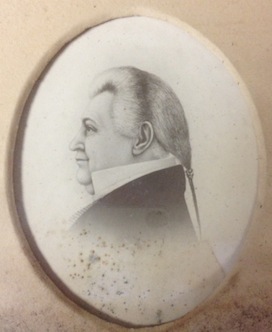
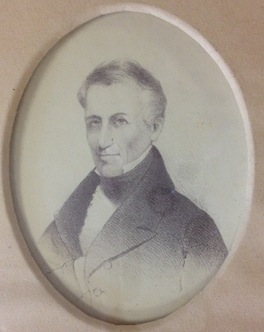
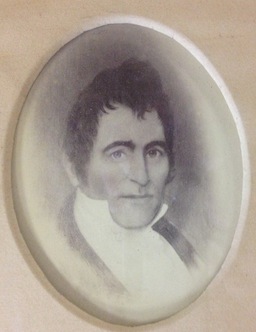
Jonathan Maynard, Calvin Sanger, Josiah Adams
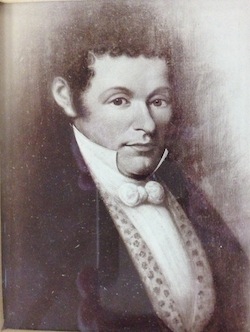
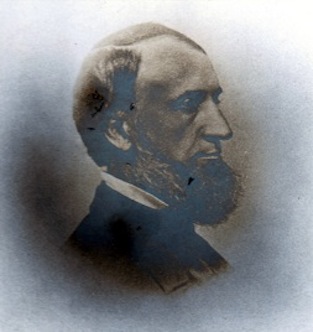
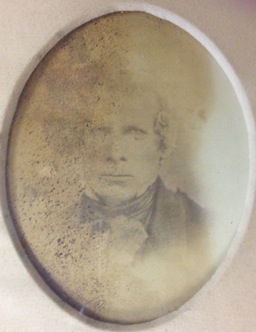
Otis Jennings, Joseph O. Skinner, Daniel Parmenter
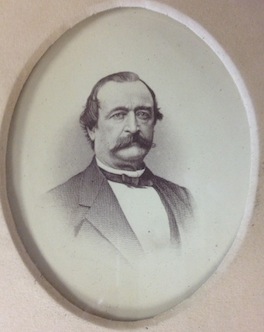
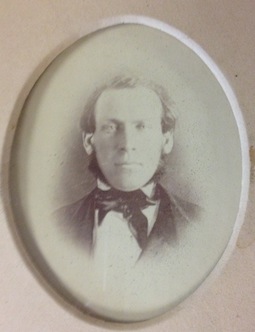
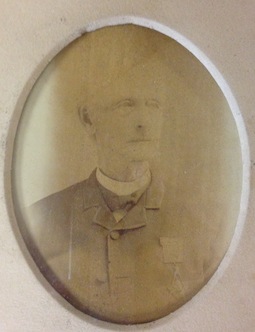
"Charles R. Train, Charles E. Horne, Charles J. Frost
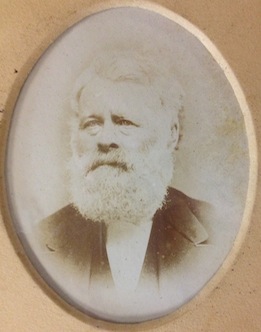
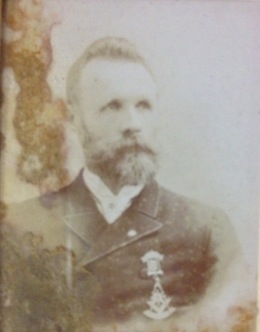
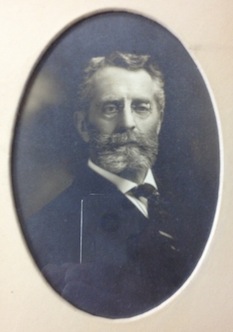
John Blair, William Nicholson, Joseph S. Adams
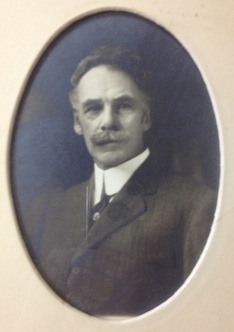
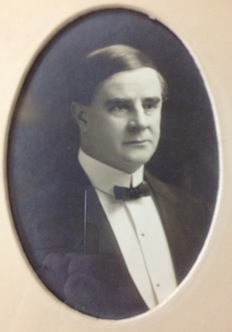
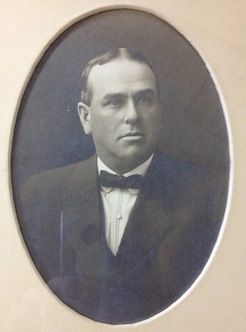
John J. Van Valkenburgh, William E. Chenery, Charles O. Heald
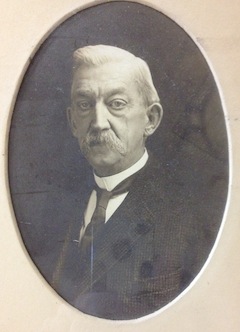
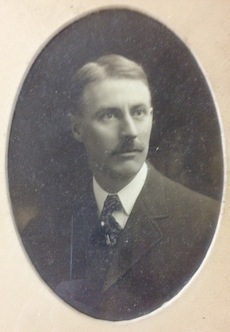
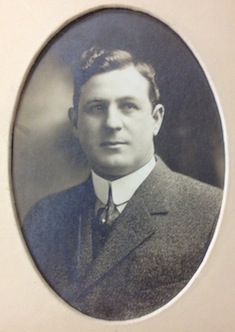
Howard M. Taylor, Harry D. Neary, William R. Nicholson
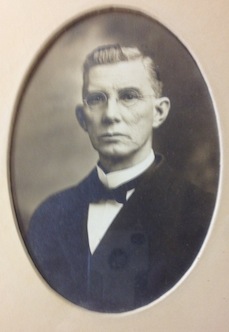
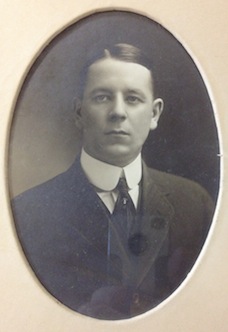
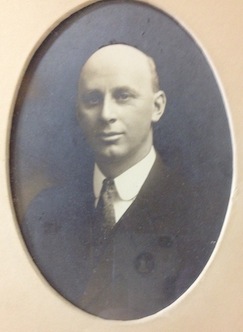
James W. Jones, Frederick M. Kendall, Mark B. Furber
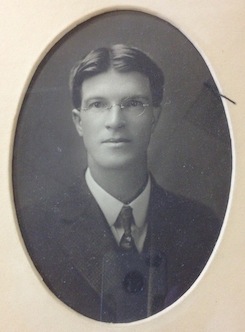
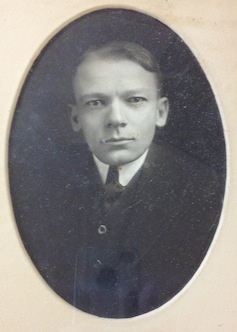
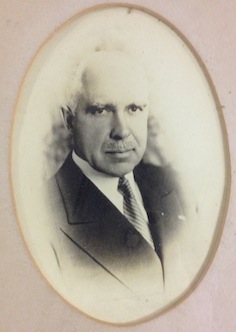
Samuel T. Faulkner, Arthur H. Patch, Elon F. Tandy
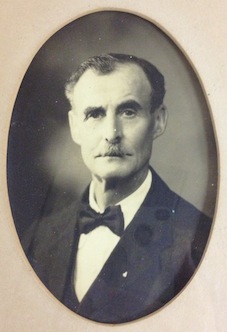
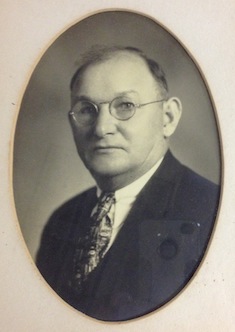
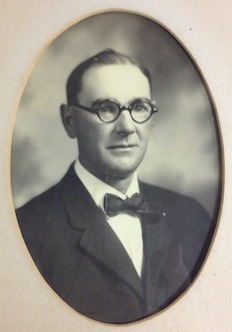
Matthew B. Hanson, Thomas O. O'Neill, Herbert F. Sears
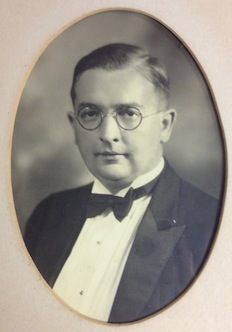
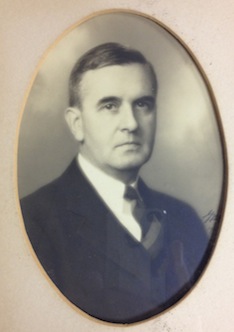
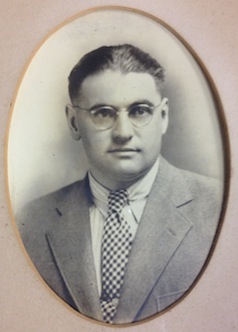
Herbert E. Taylor, Clarence E. Shaw, Robert W. Bell
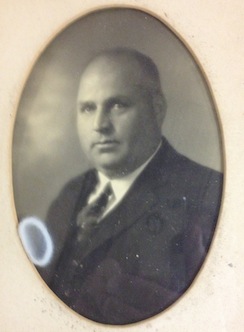
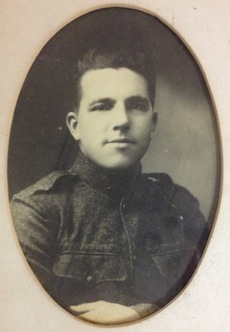
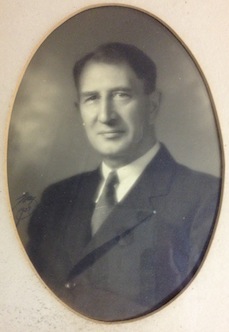
Wheaton S. Caldwell, William O. Coady, Enoch R. Coldwell
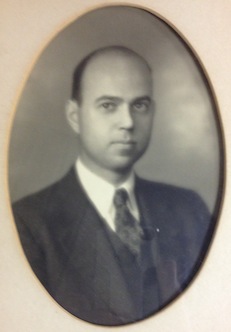
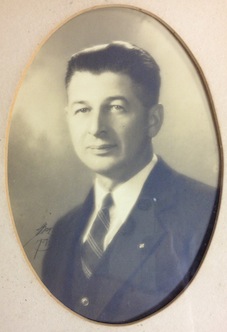
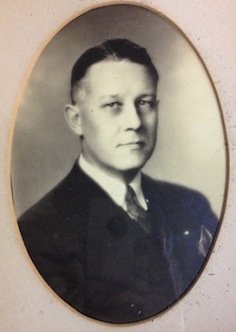
Waldon S. Caldwell, Mervin L. Bowden, Lyman W. Whitcomb
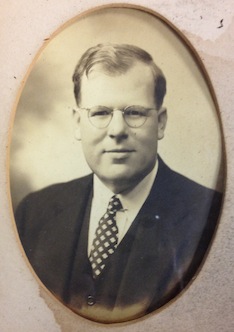
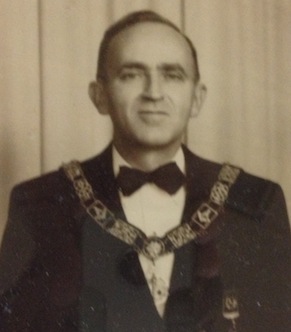
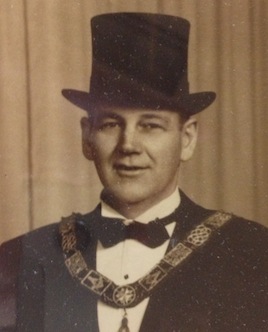
Norman W. Winch, Ralph L. Walkup, Francis E. Drake
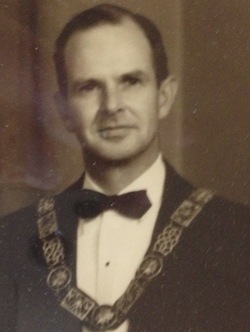
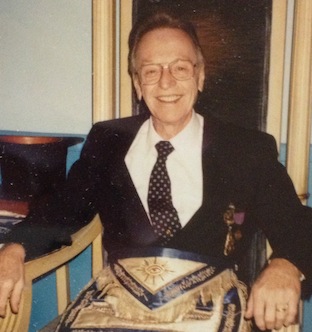
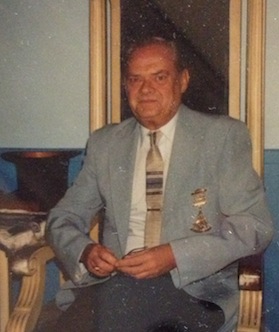
Edmund W. Shaw, William L. Stoddard, Sr., Richard M. Harrington
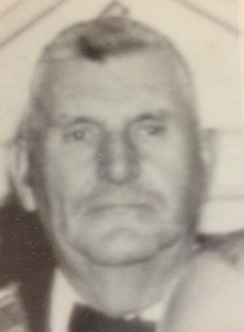
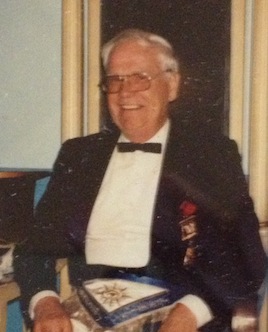
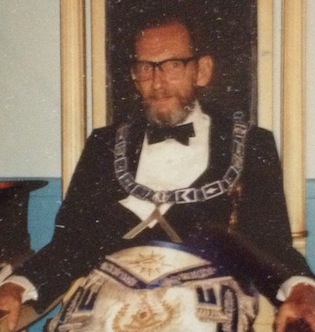
Alexander Turner, Harold E. Purington, David I. Johnson
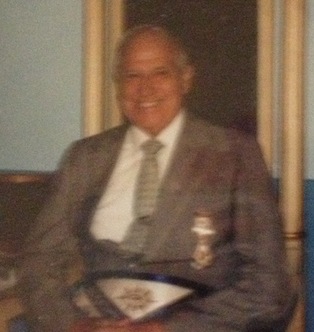
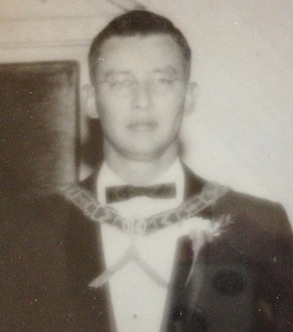
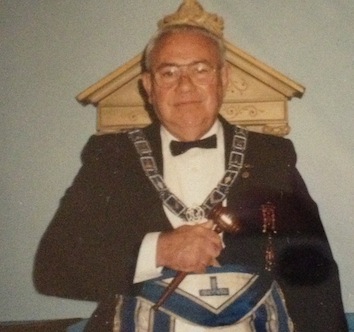
Ian M. Pyniger, Wendell S. Whitcomb, Earle H. Fletcher
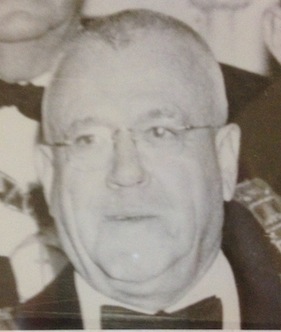
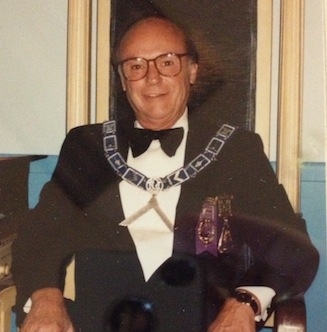
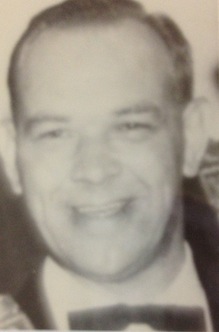
Francis L. O'Bryan, William L. Stoddard, Jr., William Kendrick
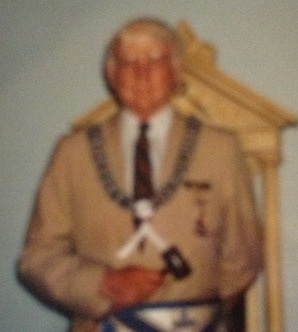
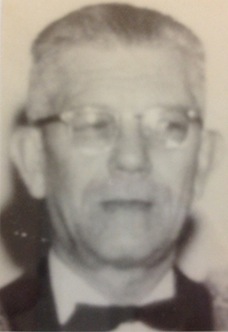
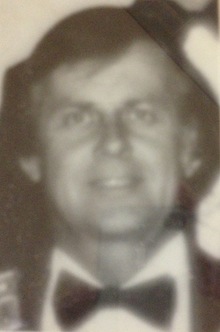
G. Clifford Munzert, George L. McGee, F. Crawford Reed
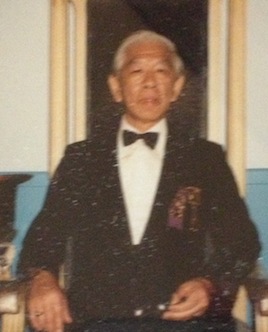
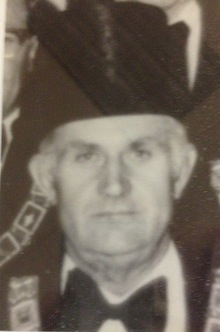
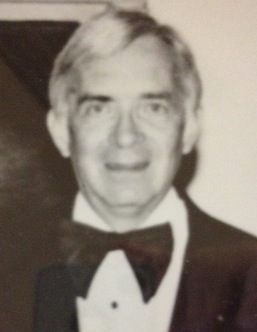
John G. Moy, Holgar S. Svensson, Benson B. Murphy
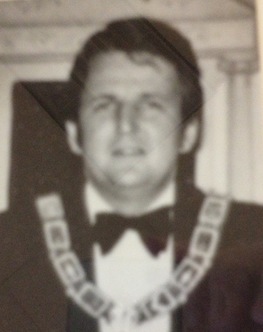
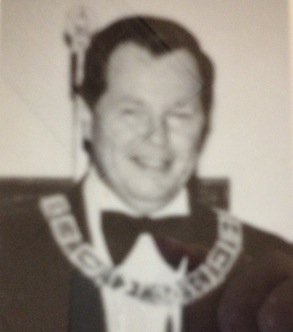
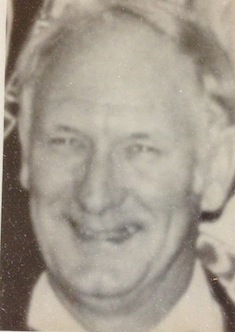
Leonard A. Wilson, Leonard J. Main, Robert M. MacKenzie
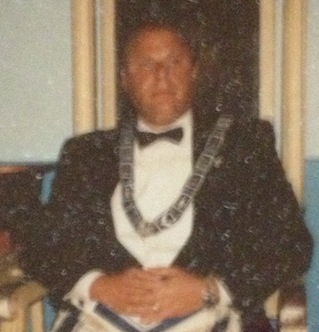
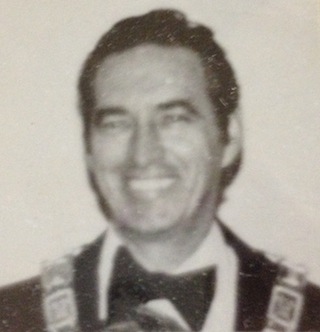
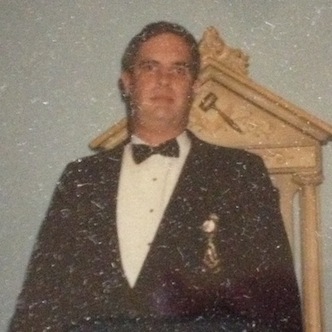
Anthony M. Colonna, Jr., Vaughn L. Sweezey, Philip R. Varney
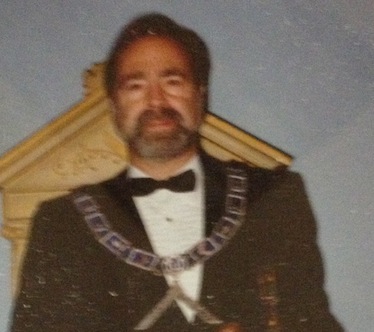
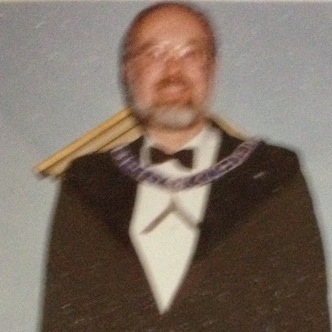
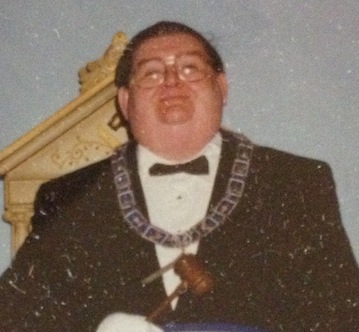
Richard E. Manelis, Edward A. Sawyer, George H. Kelleher
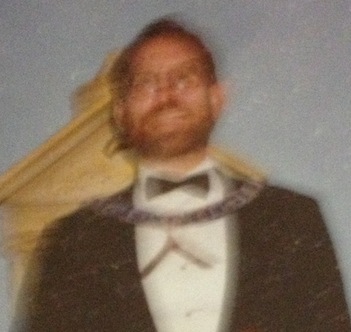
Charles T. Moses
REFERENCES IN GRAND LODGE PROCEEDINGS
- Petition for Charter: 1795
ANNIVERSARIES
- 1845 (50th Anniversary; not in Proceedings; see below)
- 1895 (Centenary)
- 1920 (125th Anniversary)
- 1944 (2000th Communication)
- 1945 (150th Anniversary)
- 1970 (175th Anniversary)
- 1995 (200th Anniversary)
VISITS BY GRAND MASTER
- 1854 (Randall; Feast of St. John)
- 1859 (Heard; Feast of St. John)
- 1866 (Dame; Hall Dedication)
- 1882 (Lawrence)
- 1895 (Holmes; Centenary; Special Communication)
- 1920 (Prince; 125th Anniversary)
- 1928 (Simpson)
- 1934 (Chipman)
- 1939 (Perry)
- 1941 (Schaefer)
- 1944 (A. Coolidge; 2000th Communication)
- 1945 (Wragg; 150th Anniversary; Special Communication)
- 1952 (Roy)
- 1955 (W. Johnson; Cornerstone laying; Special Communication)
- 1956 (W. Johnson; Hall dedication; Special Communication)
- 1970 (Jaynes; 175th Anniversary; Special Communication)
- 1995 (Lovering; 200th Anniversary; Special Communication)
- 2010 (Pageau; Installation)
BY-LAW CHANGES
1905 1910 1913 1916 1922 1925 1927 1933 1943 1948 1949 1971 1974 1976 1977 1979 1982 1959 1963 1965 1968 2004 2007 2012
HISTORY
- 1867 (Historical Reminiscences; not in Proceedings; see below)
- 1895 (Centennial Historical Address by Sereno D. Nickerson, 1895-143; see below)
- 1945 (150th Anniversary History, 1945-186; see below)
- 1970 (175th Anniversary History, 1970-306; see below)
- 1995 (200th Anniversary "Summary History", 1995-84; see below)
HISTORICAL REMINISCENCES, MARCH 1867
This essay appears in Moore's Freemason's Monthly, Vol. XXVI, No. 5, March 1867, Pages 149-152, and is written by Rev. Bro. Joseph Oberlin Skinner, a zealous Mason and frequent contributor to Moore's pages during the period of the magazine's publication.
R.W. Brother Moore,—
I ask for a page or two of your worthy and rightly named "Freemason's Monthly Magazine," for the commemoration of my masonic Alma Mater, and of some of the more prominent of the brethren, who gave it character a quarter of a century ago. I may mistake in thinking my reminiscences are worthy of publication. If I do, I know too well the rights of an editor, to think of taking an appeal, for he has full jurisdiction, and is the final judge over a question of this kind. If the notes I have jotted down, from some data which have been long lying in my table-drawer, are too local and insignificant for your great public of readers, perhaps you will at least mail my communication to the present Master of Middlesex Lodge, as a tribute to the memory of brethren whom I formerly knew in that Lodge, and with whom I have often sat in pleasant communion around the altar of Freemasonry.
The charter of Middlesex Lodge bears date June 13, 1795, and, by express grant of the Grand Lodge, was to take precedence from June 9, 1795. The officers of the Grand Lodge at that time were, — Paul Revere, Grand Master; W. Scollay, Deputy Grand Master; Daniel Oliver, Grand Secretary; Richard Sutton, Junior Grand Warden.
The grantees of Middlesex Lodge under the charter were,—Jonathan Maynard, W. M.; Peter Cloyes, S. W.; Bozzillai Bannister, J. W.; Andrew Brown, Treasurer; Samuel Frost, Secretary; Thomas Nixon, S. D. ; Thomas Buckland, J. D.; John Nixon, Benjamin Champney, Winslow Corbet, and Samuel Haven.
The first meeting of the Lodge under the charter was held June 16, 1795. At the second meeting, June 30, 1795, Daniel Gregory, Joseph Bannister, Zedekiah Sawyer, John Hoton (sic), and William Maynard were made entered apprentices, and were the first to take any degrees in the Lodge. The first to take the Master's degree was Samuel Haven, July 21, 1795. One of the oldest, most devoted, and worthy members of the Lodge at the time of my initiation, in 1810, was Br. John B. Kittridge, M.D. He was proposed for initiation July 21, balloted for Aug. 4, initiated (with Aaron Edgell) Aug. 18, passed and raised Nov. 5, and admitted a member of the Lodge Dec. 17, 1795. At the time of his death he was the oldest member and the oldest Mason (made in the Lodge) then on the stage. Twelve Masons had, however, been made in this Lodge before him.
The first quarterly returns ever made to the Grand Lodge were dated Dec. 12, 1796 ; from which it appears that eleven Masons had been made since its institution. The quarterly returns made May 21, 1797, show that thirty-seven Masons had been made in all up to that date. In 1845 the records of the Lodge showed that there had been two hundred and ninety-eight initiations, two hundred and eighty-nine had received the second degree, two hundred and seventy-six had been made Master Masons, and one hundred and forty-four been admitted to membership, since the foundation of the Lodge. Some initiations had taken place every year after it was chartered until 1830; after that year there were no additions to the Lodge and no work done until 1833, when one initiation took place, and none after that until 1839. Only one man was admitted to the rights and privileges of the fraternity in Middlesex Lodge from 1830 to 1839, and he, strangely and mortifying enough, was Francis K. Gourgas, who afterwards became a violent antimason.
The four oldest living members of the Lodge in 1845 were,—Dr. John B. Kittridge of Framingham, made Aug. 18, 1795; Hon. Elihu Cutler of Holliston, made July 17, 1798; Col. Timothy Eames of Framingham, made June 17, 1800; and Urial Cutler of Holliston, made June 23, 1801.
Col. Eames had a somewhat remarkable masonic history. He was born Sept. 9, 1762, made a Mason June 17, 1800 (at the age of thirty-eight), chosen Steward of the Lodge March 24, 1801, Tyler, Dee. 9, 1802, serving then only a single term. In 1807 he was again appointed Tyler, and con tinued to be Tyler, and to discharge the duties of the office until his death, which occurred, I think, in 1843, i.e., for the extraordinarily long period of thirty-six years. And, what is most wonderful, involving his continuous good health, fixedness of habits, and devotion to Freemasonry, he was never absent in all that period (the length of an ordinary generation) from a single regular meeting of the Lodge.
It is to be mentioned, to the great praise of Middlesex Lodge, that, notwithstanding all work was at a stand-still from 1830 to 1839, with the lamentable exception above named of one who was initiated in 1833, and who lifted up his heel against us, yet the Lodge never omitted to hold its annual meetings, elect its officers, and hold its organization intact and in order for work. With admirable steadiness and praiseworthy fidelity it weathered the storm of political antimasonry, and when more peaceful times came, it quietly resumed its work. It has been a pillar of strength to Freemasonry, and, in various ways, has exerted a most salutary influence over its individual members. On its rolls may be found the names of clergymen, lawyers, physicians, farmers, and mechanics, men of all religious creeds, and of such as stood high in the community, and did honor to their several callings and respective denominations.
It will be twenty-seven years next April since I was made a Mason in Middlesex Lodge. Though I have not met with the Lodge for more than twenty years, yet for some six years after my initiation I was a pretty regular attendant on its meetings, and for- four years was an officer, having served in the S., W., and E. The meetings of the Lodge, during my connection with it, were held in the upper story of the village academy, which was a very inconvenient place, on account of the work involved in removing the school furniture on every meeting of the Lodge, and bringing out from a closet the proper furniture of the Lodge, and of storing it away again after every communication.
But there was one faithful brother (Dea. Jonathan Greenwood), who had identified himself with Freemasonry, and needed not the stimulus of official honor and responsibility to induce him to work for the good of the Lodge; who, though not a young man, nor living within two miles or more from the Lodge, yet, his soul, being in the work, was ever faithful, punctual, and zealous ; who found his meat and drink in laboring in season and out of season for the prosperity of the Lodge; who was always present at its communications, at all seasons and in all weathers, — for cold and hot, wet and dry made no difference with him; and whether officer or private, he was usually the first at the hall and the last to leave it; and all this from the interest he felt in the institution of Freemasonry. Without hope or promise of fee or reward he would voluntarily and gratuitously put the Lodge-room in order, and assist in any part of the work, and was ready and well qualified in every step and branch of blue Masonry. His ready wit and genial humor and unsullied honor made him a pillar in our masonic edifice. To any one whose memory runs back to the period of which I speak, as does yours, Mr. Editor, and mine, it is unnecessary to produce vouchers for what I say of this brother. If he is above the sod, as I hope and trust that he is, I crave his forgiveness for this mention of him, and pray for his long continuance on this side of the dark valley. He presided at my initiation, and at every subsequent step of my advancement in the Lodge; and from that time onward my acquaintance with him was most pleasant.
Another brother not now in the flesh (Rev. Charles Train), belonged to Middlesex Lodge, whose voice I heard in prayer before I ever saw the inside of the Lodge; whose record is clear and honorable as a minister of the gospel, as a Mason, and as a man; whose amiable character, unfeigned piety, genial spirit, and gentlemanly manners have given him a warm place in the hearts of his brethren. He was a graduate of Harvard College, and for a long period the faithful and esteemed pastor of the Baptist Church in Framingham. Previous to entering into that office he was Principal of the Academy in that village. He was made a Mason Jan. 31, 1809. Him, too, you know, Mr. Editor, and knowing him, you know an honest, true man, and a genuine Christian. Though of a different theological creed from myself, yet, during all the period of our acquaintance, — three years and a half being on the School Committee together,—I never knew him to depart from the line of rectitude and brotherly kindness; nor was there ever the slightest discord, misunderstanding, or unpleasantness between us.
He was a zealous Freemason, and was never frightened into deserting the fraternity, betraying his trust, or relinquishing his rights as a citizen and a man at the behest of political crusaders, who sought by violence and denunciation to crush out Freemasonry and its adherents. On being requested by some antimasons in his parish to renounce Freemasonry, he told them he could not do that to get anybody's good-will, because it would involve his own dishonor; but he would leave them, if they desired it, and go into some other field of labor; and accordingly did start off quite soon into a neighboring State. But it was not long before his Church recovered their reason, and sent for him to return and resume his pastoral labors with them. That was the last time that Satan tempted him in that way. He was as modest and unassuming in exercising his masonic rights, enjoying his masonic privileges, as he was firm in his fidelity to his engagements, and unshaken in his purpose of resistance to an irrational and headlong fanaticism. Peace and honor rest with his now beatified spirit. I never knew a man I more sincerely respected and loved. He never had a personal enemy, I believe, in his whole life.
Time will fail me to speak of others, of whom I have pleasant recollections, — Rev. William Barry, Hon. Charles R. Train (son of the above), and yet others, living and dead, and will now close with the fraternal salutation of,
Yours truly, J. O. S.
Malone, N.Y., Feb. 12, 1867.
CENTENNIAL HISTORICAL ADDRESS, JUNE 1895
From Proceedings, Page 1893-145:
By Recording Grand Secretary Sereno D. Nickerson.
Some explanation seems to be needed of the somewhat singular circumstance that the duty of presenting to you a brief sketch of the history of Middlesex Lodge, more i especially its early history, has fallen to the lot of a comparative stranger, and not to one native here and to the manner born. The latter, being familiar with names, dates and localities, would almost involuntarily weave into his narrative many threads which the other would pass by as unconsidered trifles.
We learn from Masonic report, as well as from certain profane writings, that it was in the heart of a son of Adam, a Past Master of Middlesex, to write the history of that venerable Lodge; but he being a man of law, and having his hands full of business, was not permitted to carry his design into execution. This was reserved for the Recording Grand Secretary, a lazy and an idle man, who reluctantly . gave his consent, and soon after commenced that arduous undertaking.
He was assisted by a Free-man, the Master of the Lodge, who sent to him Van Valkenburgh, a man well-skilled in the use of the square and compasses, the rule and line, and all other Masonic tools and implements.
Now, Van Valkenburgh was Junior Warden of this ancient Lodge, and it grieved him sorely that the lapse of time, the ruthless hand of negligence, and the devastations of anti-Masonry had played sad havoc with the archives of his dear old Lodge. And so he went to and fro, and up and down in the land, asking the hurried question Where are the old relics ? Where are the lost Records of Middlesex?" And Echo answered, "Where are they ?" If by chance, cool calculation, or strange coincidence, he came in contact with any man, woman or child who was in possession of a scrap of paper, or a scrap of information, in any way relating to the early days of Middlesex, he cried, in true highwayman style, "Stand and deliver!"
Such zeal and industry has not been unrewarded. Indeed, his success has been truly wonderful. He has gathered in the scattered fragments and poured them into the archives by the barrel, and still, like Oliver Twist, he is asking for "More." Truly, so much after the Grand Secretary's own heart was the Junior Warden, that when he said "Take thee a great roll, and write in it with a man's pen concerning Middlesex", the Grand Secretary answered and said "Amen! So mote it be!" He has wished a thousand times that he had never consented, and he fears that, long before he reaches the end of the chapter, his hearers will wish so also.
Rufus Choate was under engagement in 1858, the year before he died, to address the Alumni of Dartmouth College, but at the last moment was obliged to give it up. Dr. Holmes, with characteristic kindliness, stepped into the breach, at a moment's warning. While on the way to fulfill his engagement, a friend, who sat near him in the car, expressed great regret at the disappointment which the audience would feel, on the morrow, when informed that they would not have the pleasure of listening to Rufus Choate, and inquired who was to fill his place. Dr. Holmes replied: "No one is going to fill it. But I am going up to rattle round in it for a little while, like a rat's tail in a quart pot."
Now, having finished this elaborate, carefully prepared, impromptu introduction, let us proceed to business. The "rattling" is about to commence.
It may be interesting to call to mind some of the conditions existing in 1795, when Middlesex Lodge was instituted. Twelve years had elapsed since the Revolutionary War closed. Washington had served one-half of his second term as President of the United States, and died when the Lodge was only four years and a half old. Benjamin Franklin had been dead five years. Samuel Adams and Paul Revere laid the Corner-stone of our State House on the fourth of July, 1795, only four weeks after the Charter was issued. Daniel Webster, born Jan. 18, 1782, was a boy of thirteen. We can form some idea of the lapse of time when we remember that during the existence of Middlesex Lodge the Defender of the Constitution has lived his grand and noble life, and filled an honored grave for forty-three years.
In 1790 there was one two-horse carriage in the town of Framingham. Most of the traveling was done on horseback: the father sat in the saddle, with one child in front; the mother, with the babe in her lap, sat on the pillion; and another child found room still farther behind. Letters to distant points must be mailed in Boston. As late as 1801 a man walked to Boston to mail a letter which required haste. The Framingham Post Office was established Dec. 29, 1810. Jonathan Maynard, the first Master of Middlesex Lodge, was the first postmaster, and held the office until March 29, 1882, three years before his death.
From 1810 to 1835 the stageman's horn was a signal as common and well-understood as the engineer's whistle is to-day. In 1835 the Boston and Worcester Railroad was opened and put an end to through travel by stage.
The custom of "lining the psalm" continued for a longtime after the organization of a choir, and was very annoying to them. It ceased a few years before Middlesex Lodge was organized, and in this wise: Old Deacon Brown, the father of the first Treasurer of the Lodge, had the right, as senior deacon of the church, to do the "lining." He was rather slow in his movements, and had the habit of adjusting his glasses and clearing his throat before beginning his duty. At the time in question Col. David Brewer was the chorister. On the first Sabbath of his leadership, acting on a previous understanding with the choir, he took advantage of the Deacon's well-known habit and struck up singing so quickly after Parson Kellogg had finished reading, that the Deacon had no chance to begin his accustomed work. He looked up in amazement, and so did most of the congregation. After that there was no further attempt to " deacon the hymn."
In 1798 the town granted thirty dollars to hire a singing-master. For several years the annual proceeds of the alewife-fishery in Cochituate brook were given to the singers, and hence received the name of the singers' fish privilege. The town was accustomed to choose annually a committee "to regulate the singing." In 1805 the town voted "that the singers shall regulate themselves, so long as they shall continue to fill the seats assigned them and behave with decency and order."
It was nearly thirty years after the Lodge was established that what is called the Temperance reform began to be thought of. There was one resident of Framingham, however, who was in advance of his time in that respect, Thomas Temple, a man in whose integrity and ability his townsmen had such confidence that he served them as a Selectman for twelve years and held the office at the time of bis death. Bro. Josiah H. Temple, the historian of Framingham, and a member of Middlesex Lodge, relates the following anecdote in regard to the funeral of his great grandfather, the Selectman, as characteristic of the customs and temper of the day: "It had been the established rule in all families, to provide liquors for the mourners; and in the families of men in public station, for all who should attend the services at the house of the deceased. Being an abstainer from principle, he gave directions before his death, that no intoxicating liquors should be furnished to relations or friends at his funeral. Capt. Joe Winch [the town wit and joker, who was on good terms with everybody made it a rule to be present on all such occasions, and was always ready to do the honors at the side-board. He had not heard of the prohibition, and was taken by surprise. After waiting patiently, and in vain, for the usual invitation, he remarked, in his caustic way, as he slowly mounted his old horse, 1 Queer funeral: no toddy! no tears!"
Middlesex, Lodge, like many other Lodges, was prompt and ready in the practice of those truly Masonic virtues Prudence and Temperance. On the 22d of September, 1801, it was voted, " that the Stewards make use of all perishable articles of refreshment and make due return to the Lodge." And better still, on the 12th of January, 1802, it was voted, " that the Stewards dispose of a keg of rum, now on hand, and give an account to the Lodge." It is evident that the Brethren did ^not agree with the poet, in the opinion that
"There's naught, no doubt, so much the spirit calms
As rum and true religion."
The Charter of Middlesex Lodge was granted at the Quarterly Communication of the Grand Lodge of Massachusetts held on the 8 h day of June, 1795. The following is the brief report of the action as given in the Records of the Grand Lodge:
"A Petition from Jonathan Maynard and others, praying for a Charter to hold a Lodge in Framingham, County of Middlesex, was read, with the papers accompanying the same; and on motion Voted, That the prayer of the petitioners be granted. Brother Maynard had a seat assigned him in Grand Lodge." To this is added a marginal index-note as follows: "Middlesex Lodge Charter granted, and issued June 9, 1795."
In point of fact the Charter is dated June 13th, and declares the precedence of the Lodge to commence from the 9th of June, both of the year 1795. Why the Charter should not have been dated and the precedence granted as of the day when voted, can only be explained by saying that such was not the pleasure of the Grand Secretary of that day.
At the present time a new Lodge is instituted by a Warrant, or Dispensation, from the Grand Master or Grand Lodge, authorizing certain Brethren, therein named, to convene as Masons in a certain town during the ensuing year, and then and there to enter Apprentices, pass Fellow Crafts and raise Master Masons. If at the expiration of the year the experiment shall be deemed to have been successful, a Charter is granted, bearing the date when the vote is passed and giving the Lodge precedence, that is, fixing its rank on the roll of Lodges, from the date of the original Warrant or Dispensation. It then only remains for the Lodge to be constituted by the Grand Master, that is, to be formally invested by him with the Charter and the rights and privileges which it confers.
Although the practice one hundred years ago, in regard to the instituting of new Lodges, was not uniform, yet in some instances the manner described as now in use was followed. At the Quarterly Communication of June 8, 1795, a Dispensation was granted by the Grand Lodge to Columbian Lodge, of Boston. The document was issued by the Grand Secretary under the date of June 16, and gives the Lodge precedence from June 9, 1795. At the Quarterly Communication in March following, the Grand Lodge voted "That a Charter of Incorporation be granted at large" to Columbian Lodge, to take date from the 8th of June, 1796. Notwithstanding' this specific direction, the Grand Secretary issued the Charter under the date of June 9, 1796. Dispensation and Charter were exactly alike in form and conferred the same powers and privileges.
Thus it appears that at the same Communication of the Grand Lodge a Dispensation was granted to Columbian Lodge and a Charter to Middlesex Lodge — the first and original authority in each case. Both Bodies, however, so far as the Records show, went immediately to work, exactly as though they were regularly constituted Lodges.
The Charter of Middlesex Lodge bears the following signatures: Paul Revere, Grand Master, William Scollay, Deputy Grand Master Isaiah Thomas, Senior Grand Warden, Richard Salter, Junior Grand Warden, William Little, Grand Treasurer, and Daniel Oliver, Grand Secretary.
The name of the Grand Master is as familiar as household words to every school boy; and every school boy thinks that he knows his history thoroughly and that Paul Revere was second only to Washington in the value of the services he rendered to his country during the period of the Revolutionary War. Such a halo of glory has been thrown around certain minor services performed by him, that many older and wiser than school-boy heads have been dazed and have formed most extravagant opinions of Paul Revere. The story of the poet is historically incorrect in most of the particulars and details.
Paul Revere was a mechanic, of very little education, but of first rate natural abilities, and he made the best possible use of such opportunities and advantages as came in his way. He was no soldier, but he learned how to make gunpowder and cannon, at a time when they were very much wanted. He was not a very skillful engraver, but he turned out some very queer pictures, which no doubt had considerable influence in helping on the patriot cause. He cast bells which long after he was dead rang out the joys and sorrows of thousands of his countrymen. He made silver ware which, even to this day, is a highly-prized ornament upon the side-board of many an old family.
He had the most profound reverence for Joseph Warren and Samuel Adams. Their lightest word was to him law and gospel. Their lightest wish was executed, so far as was in his power, with the most scrupulous exactness and fidelity, no matter what might be the time and labor and fatigue involved. He knew then, what we all know now, that those two men were the purest, the most thoroughly sincere and absolutely disinterested patriots among the thousands who in those perilous times thought it sweet and glorious even to die for their country.
Paul Revere was a worker. He performed his Masonic duties just as he executed the commands of Joseph Warren or Sam. Adams — with bull-dog promptness, fierceness and tenacity., After the death of Warren, the adherents of the Provincial Grand Lodge which he had established were in great doubt as to their rights and powers. It was claimed on one side that they must wait the action of the Grand Lodge of Scotland; while on the other side it was determined to choose their own Grand Master.
This was done on the 8th of March, 1777, and thus was established the first independent Grand Lodge on this continent.
St. Andrew's Lodge was nearly equally divided upon the question of the Masonic legality of this action. The minority, under the lead of Paul Revere, a Past Master, withdrew from the Lodge, and on March 1, 1782, under the old name, were assigned to the first rank on the roll of the Lodges of the new Grand Lodge.
It was probably found to be inconvenient and confusing to have two St. Andrew's Lodges in the same town. Therefore on Sept. 2, 1784, the Grand Lodge granted to Paul Revere and his associates a renewal of their Charter, under the name of Rising States Lodge. This Lodge seems to have led a troubled life from the beginning. Its discontent culminated in 1809, when the old St. Andrew's Lodge came under the jurisdiction of the Grand Lodge of Massachusetts, and was given rank above Rising States Lodge. In December, 1810, the latter was "dissolved," and the funds,- amounting to $1,527.50, together with the proceeds of the regalia, furniture, etc., were divided among the "nominal members." Of the "nominal members" Paul Revere was one, and Paul Revere, Jr., was one of .'the voters for the dissolution. Each of them received a share of the property thus divided.
A committee was appointed by the Grand Lodge "to trace the causes that led to this unprecedented dissolution," as they termed it. The report of that committee was unanimously accepted, and — what was very unusual at that time — it was ordered to be printed and sent to all the Lodges. It gave a full and clear statement of the transaction. A single paragraph will show how the committee regarded it:
" Impressed with the importance of these sentiments, your Committee view, with the most serious apprehensions, the conduct of the late Rising States Lodge; they consider it an alarming precedent, tending to excite a spirit of disorganization, inducing the Lodges to take offence on the slightest occasion, that they might have a plausible pretext to obtain possession of the funds. These apprehensions are greatly increased from observing those measures countenanced and supported by men of respectable and influential standing in society, whom we have been in the habit of esteeming, and who have held high and responsible stations in the Masonic family."
Paul Revere was a man of great energy, of inflexible will and. determination, or as we sometimes say of each other nowadays: " as set as fate, as obstinate as a mule." In the politics of the day these qualities enabled him to render most valuable services to the cause. They are not exactly the qualities which are to-day regarded as characteristic of a good Mason.
During the three years that he was Grand Master, Paul Revere signed the Charters of 23 Lodges, only 2 of which are now extinct. The following is the list:
Lodge, Present Location, Date of Charter
- Republican, Greenfield, Feb. 7, 1795.
- Evening Star, Lee, June 9, 1795.
- Middlesex, Framingham, June 13, 1795.
- Cincinnatus, Great Barrington, Dec. 9, 1795.
- King Hiram's, Provincetown, Dec. 14, 1795.
- Kennebec, Hallowell, March 15, 1796.
- Fayette, Charlton, March 15, 1796. Extinct
- Washington, Roxbury, March 17, 1796.
- Columbian, Boston, June 9, 1796.
- Harmony, Northfield, June 15, 1796.
- Union, Dorchester, June 16, 1796.
- Thomas, Palmer, Dec. 13, 1796.
- St. Paul, Ayer, Jan. 26, 1797.
- Jerusalem, Northampton, June 13, 1797.
- Adams,Wellfleet, June 13, 1797. Revived
- Tuscan, Columbia, Me., June 13, 1797. Extinct
- Bristol, N. Attleboro, June 14, 1797.
- Fellowship, Bridgewater, June 15, 1797.
- Corinthian, Concord, June 16, 1797.
- Meridian Sun, Brookfield, Sept. 13, 1797. Revived
- Olive Branch, Millbury, Sept. 14, 1797.
- Montgomery, Milford, Sept. 16, 1797.
- Meridian, Natick, Dec. 10, 1797.
Adams, of Wellfleet, and Meridian Sun, of Brookfield, have been revived, but not under the original charters. The Grand Master seems to have infused into his Lodges his own sturdy nature.
No report is given of the constitution of Middlesex Lodge, either in the Records of the Grand Lodge or in those of the Lodge, except that on the cover of the first volume of the latter is a "List of the Brethren from whom pay was received for dining, etc., at the Installation, Nov. 25, 1795," and of the "Grand Officers excused from pay." This List, evidently made at the time of the "Installation," was found and pasted, on the cover Jan. 29, 1887, for preservation. The practice, in those days, as to the time of constituting new Lodges, was very irregular, varying by many months. At present the practice is uniform — to constitute the Lodge as soon as convenient after the expiration of the year of Dispensation. Middlesex was fortunate in having to wait only six months. The following-named were the "Grand Officers excused from pay:"
- M. W. Paul Revere, Grand Master.
- R. W. William Scollay, Deputy Grand Master.
- R. W. Isaiah Thomas, Senior Grand Warden.
- R. W. Joseph Laughton, Junior Grand Warden.
- W. John Boyle, Grand Treasurer.
- W. Daniel Oliver, Grand Secretary.
- W. Paul Revere, Jr., Senior Grand Deacon.
- W. Isaac Nutt, Junior Grand Deacon.
- W. Benj. Russell, Grand Marshal.
- W. Edmund Bowman, Grand Steward.
- W. Robert Gordon, Grand Steward.
"The Clergy excused from paying" were Rev. Mr. Walter, Rev. Mr. Kellogg, Rev. Mr. Sumner.
The Columbian Centinel of Saturday, Nov. 21, 1795, has the following paragraph:
"The M.W. Grand Master of this Commonwealth, we are informed, will instal and consecrate Middlesex Lodge, at Framingham, on Wednesday next, the 25th inst. Provision, we learn, will be made for a considerable number of visitors."
In the issue for Wednesday, December 2, appeared the following item:
"Masonic Intelligence.
"Mr. Russell: You will oblige the Craft by informing that on the 25th inst. the Grand Lodge of Massachusetts was opened in ample form at Framingham, in the county of Middlesex, for the purposes of consecrating the Middlesex Lodge and installing its officers. The ceremonies were performed with the greatest decorum, and the ancient, landmarks most carefully observed. After which a Procession was formed in true Masonic order, which moved from the Lodge Room to the Meeting-house, where, after suitable addresses to the Throne of Grace, and an Ode performed by a choir of the Fraternity, the Rev. Dr. Walter, as Grand Chaplain, in the presence of a very crowded, decorous and brilliant audience, delivered an eloquent and fraternal charge to the R. W. Master and the Members of the New Lodge. The procession, accompanied by the Rev. Clergy of Framingham and Southborough, returned to the Hall, and partook of a sumptuous entertainment, provided for the occasion. Satisfaction appeared to beam from the countenance of every spectator, and the most perfect fraternity presided over every proceeding of the Free and Accepted during the day."
</blockquote>
In a foot-note the editor informs his readers that he will "endeavour to procure a copy of this charge for publication." So far as our researches have extended his endeavors were not successful.
The first meeting of the new Lodge was held on the 16th of June, only three days after the date of the Charter. All the Charter members are named in the Record as present; Jonathan Maynard as Right Worshipful Master, Peter Clayes, Senior Warden, and Barzillai Bannister as Junior Warden. It nowhere appears by what right or title these Brethren assumed these stations. The Charter did not authorize it, and there is no record of an election. It was probably of their own sweet will, and by common consent. According to the record the members then proceeded to the choice of officers (to wit), Secretary, Treasurer, Senior and Junior Deacons." Samuel Frost, Jr., was chosen Secretary, Andrew Brown, Treasurer, Thomas Nixon, Senior Deacon, and Thomas Buck-land, Junior Deacon. Six candidates were proposed.
At the next' meeting five of these candidates were balloted for, elected and initiated, the Lodge being opened on the first degree — changed to the second, and Samuel Haven, one of the Charter members, was passed. At the next meeting, July 21, he was raised. In those days Entered Apprentices were eligible to membership in a Lodge, and, it seems, even to have their names inserted in Charters. The Charter of King Hiram's Lodge, of Provincetown, dated Dec. 14, 1795, presents a still greater-anomaly : three of the persons named in the Charter were initiated in that Lodge.
The first candidate initiated in Middlesex Lodge was Daniel Gregory, a trader. One of his daughters, born in 1797, married Lowell Mason, the well-known teacher of vocal music in Boston and the. father of the young men who started the business now carried on by the Mason and Hamlin Organ Company; a man who had very little music in himself, but was the cause of a great deal of music in other people.
Jonathan Maynard, the first Master, was born in Framingham, May 22, 1752; graduated at Harvard College in 1775, and while a student there enlisted for the eight months' service. At the battle of Bunker Hill he was Sergeant of a company of which his older brother William was Lieutenant. The next year he went with the army to New York, and was in the campaigns of 1776 and 1777 on the North River, and in -the battles of Stillwater and Saratoga. In 1778 he was a Lieutenant in one of the companies of the Seventh Mass. Regiment, of the brigade of General John Nixon, another of the Charter members of Middlesex Lodge. The historian of Framingham, Rev. Bro. Josiah H. Temple, thus relates an interesting incident in Bro. Maynard's experience:
"While his regiment was stationed at or near West Point, on the 30th of May, 1778, Lieut. Maynard, with a small party, went on a foraging excursion, to a considerable distance from the camp, when they were set upon by a scouting band of Indians, and after a sharp skirmish taken prisoners. They were conducted for a distance of several miles away from the American lines, when a halt was made, and all but the Lieutenant were tomahawked and scalped. As he wore a sword, he was considered a greater prize, and was carried to the camp of Brant, their chieftain.
"After a brief consultation, it was decided to burn the captive. The fagots were collected, he was tied to a tree, and the fire was about to be kindled. Although a stranger to all in the group, and ignorant of the fact that the Indian chief was a Freemason, as his last hope, Lieut. Maynard gave a Masonic sign. It was recognized by Brant, who was standing by; and he ordered the execution to be postponed. Maynard was put under guard; and in due time, with other prisoners, was sent to Quebec, where he was held in captivity Until Dec. 26, 1780, when he was exchanged."
He rejoined his company at West Point on the 4th of January, 1781, and found that his Colonel had been killed by the Indians two years before, and that the regiment was under the command of Col. John Brooks, a zealous Mason, and thirty-five years afterwards Governor of Massachusetts. A few weeks after his return, he was promoted to the rank of Captain, and continued in the service until Nov. 19, 1782, when he resigned and received an honorable discharge.
It will be remembered that the surrender of Cornwallis, at Yorktown, Virginia, on the 19th of October, 1781, practically ended the war, although the treaty of peace was not actually signed until November, 1783.
Upon his return from the army Bro. Maynard taught one of the village schools for, a while. In 1792 the building of brick school-houses was commenced, and for twenty-five years they were constructed on the same plan. Bro. Temple gives an amusing description of these ancient seats of learning, exhibiting a striking contrast with the elegant and luxurious shooting galleries provided in our day. He says: "There was an entryway on the short side for storing wood, and a capacious fire-place and chimney. The inside furnishing was substantially alike. A pulpit desk, six by four feet, and five feet high, was placed between the first and second windows on the right of the fire-place. The open box under the desk was handy to stow away the smaller idlers, one at a time, where they were in easy reach of the master's foot, as he sat perched on his high stool. If the culprit, wearied of his isolation,, ventured to peep at the outsiders, and provoke a snicker from a sympathizing mate, a whack of the master's 'ruler' would cause a sudden disappearance of the head, and furnish its owner business for the next fifteen minutes, in rubbing the sore spot. The main body of seats occupied three-fifths of the room opposite the fire-place. They were set on a rising slope, in four or five rows, with double desks. The girls' side was the half nearest the master's desk. The most popular seats were the two inside rows, where only a two-foot alley separated the girls' and boys' sides."
The generally received opinion, of that day, as to the best method of training youth, and qualifying them to encounter the stern realities of life, is appropriately and expressively set forth by the poet in the couplet:
"'Tis education forms the common mind,
And with a twig they drive it in behind."
Probably some of my older hearers are still occasionally troubled with the sensation of the accession of knowledge in that direction, accompanied with a doubt whether the rough and thorny way, which proved so good for the fathers, might not be better for the rising generation than the "go-as-you-please" style now so much in vogue.
Joseph Brant, the rescuer of Jonathan Maynard, was chief of the Mohawk tribe of Indians.: He was born in 1742, and took part in the battle .of Lake George in 1755, at the age of thirteen, so that we may well call ;him a born warrior. At the time of Bro. Maynard's adventure with him he was a fine looking man, tall and. stately, majestic and commanding in appearance, with. an eye like the eagle's. His sister Molly was the second wife of Sir William Johnson, who hud become a widower in the prime of life. Whether they were ever formally married, according to our practice, is doubtful, but it is certain that they lived together in. great harmony and affection until his death.
Probably largely through the influence of Molly, Sir William made great efforts to elevate and improve the tribe from which she came. He. established churches and located missionaries among them. He selected promising young Mohawks and sent them to the "Moor Charity School," at, Lebanon, Conn., of which Rev. Dr. Eleazer Wheelock was the head. That school afterwards formed the foundation of Dartmouth. College, and Dr. Wheelock became the President.
Among the young men selected for such education was the future famous warrior Brant,, and an amusing anecdote is related of the manner in which' he profited by the pious instruction he received, and applied it to the duties of real life. Great efforts were made by the patriots, in the early, days of the war of the Revolution, to prevent the Indians from aiding the Royal cause. Brant was the object of special solicitation on this account, and among the influences brought to bear upon him was that of his former instructor, the pious and Rev. President Wheelock. "The Doctor wrote him a long epistle upon the aspect of the times, urging those considerations which appeared most likely to secure his neutrality, if not his friendship for the Colonists. Brant replied very ingeniously. He referred to his former residence, with the. Doctor — the happy hours he had passed under his roof — and especially to the prayers and family devotions in which he had ' joined. He said he could never forget those prayers; and one passage, in particular, was so often repeated that it could never be effaced from his mind. It was, "that they might be able to live as good subjects—to fear God and Honor the King." If doubts had before existed as to the direction in which his inclination ran, this letter must have removed them.
Several stories, somewhat similar to the one related of the rescue of Bro. Maynard, are told of Brant. Toward the close of the memorable Canadian campaign, a fortified post on the St. Lawrence, called "the Cedars," about forty miles above Montreal, was ingloriously surrendered to a combined force of regulars and Indians. On the following day, May 20, 1776, a small relieving force, not knowing of the surrender, approached the post, was attacked by the. Indians and, after a sharp conflict, compelled to surrender. Brant is said to have been very efficient in controlling : the Indians and preventing a massacre of the prisoners. Among the latter, and severely wounded, was Captain John, afterwards Colonel, McKinstry, of Livingston's Manor, New York. He was selected as a special victim, and preparations were made for putting him to death by fire. He was rescued by the personal exertions of Brant; treated with kindness while a prisoner, "and formed a friendship with Brant which continued until the death of the chieftain. The latter never visited the neighborhood without spending a few days with Colonel McKinstry. At the time of his last visit, about the year 1805, they together attended the Lodge in the city of Hudson, where he attracted great attention.
The Continental Congress denounced the treatment of the prisoners after the surrender as "human butchery," several of their number having been killed, and one, who had only been wounded, having been roasted alive. It would seem, therefore, that there were special influences which led to the rescue of Captain McKinstry.
Sir William Johnson, Brant's brother-in-law, was born in Ireland, in 1714. He came to America, when about twenty years of age, by request of his uncle, Sir Peter Warren, the naval commander at the siege of Louisburg in 1745, who owned large tracts of wilderness country upon the Mohawk River. He learned the language of the Indians of that region, joined in all their sports and adventures, and was adopted by them. They gave him an Indian name, which I will not attempt to write or pronounce, consisting mostly of alternate rs and gs. He made himself very popular among them by introducing many tricks and games which were new to them: such as the meal-bag foot-race, the greased pig's tail, a prize of a half-pound of tea to the . fellow who could make the ugliest face,. or a bladder of snuff to the old woman who could scold the hardest. Among the chiefs in council he was silent, thoughtful, and as grave as a judge. In their religious ceremonies no Indian devotee was move expert or devout. The, English government appointed him Superintendent of Indian Affairs, a post which he held until his death.
One of the correspondents of the New England Society, in a letter to the Rev. Dr. Cooper, of Boston, thus refers to Johnson's position and influence: Why may not Sir William be the means of introducing learning and religion amongst the Indians and civilize them, as well as Peter the Great did the Muscovites? And though Sir William, like Solomon, has been eminent for his pleasures with the brown ladies, yet he may lay the foundation for a building in the Mohawk country that may be of more real use than the very splendid temple that Solomon built; and I dare say that the queens of the Senecas, Oneidas and Mohawks may join in their observations with the queen of Sheba, and say with the same truth that not one-half was told them."
Sir William was twice married. His first wife was a young German girl who had been sold on her arrival in America for her passage money as a redemptioner to a Mr. Phillips in the Mohawk Valley. She was so beautiful as to attract the attention of Sir William, and on a friend's advising him to get the pretty German girl for a housekeeper, he determined to do so. His friend soon after missed the girl from the house of Phillips and asked what had become of her. Phillips replied, "Johnson, that confounded Irishman, came t'other day and offered me five pounds for her, threatening to horse-whip me and steal her if I would not sell her. I thought five pounds better than a flogging, so I took it, and he's got the gal."
There is also a spice of romance connected with his second wife, the sister of Brant. She was a Mohawk girl of rare beauty, and sprightliness, and being present one day at a military review, she playfully asked an officer who was riding on parade to allow her to ride upon his horse with him. He gave his assent, without thinking she would have the courage to attempt it; but she sprang with the swiftness of a gazelle upon the horse behind him, and, with her dark hair streaming in the wind, and her arm around his waist, rode about the parades-ground to the amusement and admiration of all present, except the young officer who became so unexpectedly the gallant of the forest fairy. Sir William, who witnessed the spectacle, became enamoured with the wild beauty before him, and soon after took her to his house as his wife in a manner consistent with Indian customs. He treated her with kindness and affection, and she is said to have made him a devoted and faithful wife.
By virtue of a warrant dated May 23, 1766, issued by George Harrison, Provincial Grand Master of New York, Sir William Johnson organized St. Patrick's' Lodge, the first established in the wilderness west of the Hudson River. In that Lodge he had for Wardens his sons-in-law, the husbands of the daughters of the "German gal." In 1769 he became Master of the "Ineffable Lodge" at Albany, and held that office until his death on the 11th of July, 1774, at the age of sixty years. "His authority on the Mohawk had been almost kingly, and no white man ever attained a greater influence with the American Indians than Sir William Johnson."
William Maynard was the elder brother of Jonathan. He was born March 29, 1745. The grandfather was a weaver, the father a tavern keeper. The latter did good service in the French and Indian wars. William was a, Lieutenant at Bunker, Hill. He was proposed at the first meeting of Middlesex Lodge by his brother Jonathan, the Master. He served as Worshipful Master from 1801 to 1804 inclusive, being present for the last time on the 19th of June, 1804. According to the custom, no meetings were held in July or August of that year. In September his account for tickets at the Feast of St. John was "put over to next Lodge," and it was voted to " grant him a sum of money for his relief in his distrest situation." At the October meeting one hundred and fifty dollars were voted and a subscription started, to be kept open for two succeeding Lodges. Attached to the Record of November 13 is the following note: "The Funeral Procession of our late Master, "William Maynard, whose burial was on the 18th day of November, 1804, from the Hall of Bro. Jonathan Maynard, which followed the remains of our deceased Bro. 150 of the Brethren." (Sic.) Strange to say Bro. Temple's History reports that about 1788 he went to Carolina and died there.
Charles Train was born in Weston, Mass., on the 7th of January, 1783. He attended the district school in that town as he had opportunity, and in the spring of 1800 came to Framingham Academy for one term. He completed his preparation for College under the instruction of the Congregational minister at Weston, and entered Harvard in the autumn of 1801.
His father was a farmer in moderate circumstances and often required and received the assistance of the son on the farm. By teaching school in the winter, occasionally writing in the Probate Office, with a little assistance from the father, the hard-worked student succeeded in graduating in 1805, and was assigned a Hebrew oration. Probably the College at that time was but little above the grade of our High Schools of the present day.
His parents were members of the Baptist Church, and in 1803 he "experienced religion," as it was called in those days, and joined that church in 1805. When he entered College, his purpose was to qualify himself for the Bar, and he was supposed to have special talents for close reasoning and extemporaneous speaking. It was, therefore, a matter of some self-denial to give up his cherished plans and hopes, and enter upon the preparation for the ministry in a denomination then very small in numbers and poor, in purse. But here again he manifested those sterling qualities which he exhibited through his whole life: patience, perseverance, energy, decision of character, fidelity to convictions of duty. He was licensed to preach in May, 1806. In the autumn of 1807, he took charge of the Framingham Academy, which, under his administration of two years, was highly prosperous. His pupils paid one shilling each per week for tuition, and six cents per week for fuel during cold weather; and, for fear the Preceptor might starve on this liberal stipend, the Trustees generously contributed fifty cents per week towards his board.
The patient pedagogue so far weathered these short commons, after one year, that he offered himself to Middlesex Lodge as a candidate for the mysteries of Masonry. He was proposed, by Bro. Jonathan Maynard, Nov. 27, 1808, accepted December 28, initiated Jan. 31, 1809, passed, February 28, and raised March 28. Here he gained a fresh supply of that truly Masonic support Hope, and was so far encouraged that he ventured upon that often tempestuous sea — matrimony. In August, 1810, he married Miss Elizabeth Harrington, of Weston, who died on the 14th of September, 1814. In October, 1815, he married her younger sister, who lived to the ripe old age of eighty-four.
Bro. Train was proposed for membership in Middlesex Lodge by Bro. Jonathan Maynard, Oct. 21, 1811, nearly three years after he was raised. Such delays appear to have been very common in this Lodge. He was admitted on the same evening, and paid the usual membership fee of five dollars. From this payment I infer that he-paid the customary fee for the degrees — fifteen dollars — although it was very common in those days, and even long after, to admit clergymen without fee. It is a singular fact that he is first entitled Rev. in the Record of May 26, 1812, having previously been styled simply Mr. or Bro. He was elected Chaplain of the Lodge Dec. 7, 1813. The Record of that meeting contains the first mention of either Chaplain or Marshal. He served as Chaplain in 1814, as W. Master in 1817 and 1818, again as Chaplain in 1826, 1832, 1833, 1834. He was Grand Chaplain in 1830 and 1831.
During all the time that he. was discharging his Masonic duties so faithfully, he was very active in public affairs. He served continuously as a member of the School Committee for more than thirty years; as the Representative of the town to the General Court in 1822, arid for the .seven following years, with the exception of 1827. He was left at home during that year as a punishment for having preached two sermons, upon that truly Masonic virtue Temperance, on which his opinions proved to be somewhat in advance of the times. In 1829 he was chosen by the Legislature to fill a vacancy in the Senate, and in the following year was chosen Senator by the people. His influence in these various capacities was important and highly beneficial, and during all this period he was performing his ministerial duties with the utmost punctuality and regularity.
He died on the 17th of September, 1849, after sixteen years of intense suffering from that most painful disease strangury, and was buried in the beautiful Edgell Grove Cemetery, in the very heart of the town he had served so long and well.
He was a prominent and influential leader in a denomination which, even in these more enlightened times, we are accustomed to regard as not very liberal. He lived through. the whole of the anti-Masonic craze, and while it was at its height he was active and conspicuous in social, religious and political affairs. If he had been a timid, weak man, with no confidence in his own judgment, no firmness of will, or decision of character, blown about by every wind and wave of doctrine, his church would have gone to pieces, and Middlesex Lodge would have lived through a generation only. He had a great deal of trouble in his church on account of anti-Masonry. One of his Deacons proved weak-kneed, the Junior Deacon of Middlesex Lodge in 1823, '24 and '25, and Senior Deacon in 1826 and '27, whose light went out at the first breath of opposition.
A son of our Rev. Brother rendered distinguished service to Middlesex Lodge. Charles Russell Train was born in Framingham October 18, 1817. He fitted for college at Framingham Academy, and graduated from Brown University in 1837. He passed three years in teaching and in the study of law in the office of Josiah Adams, Esq., a distinguished practitioner of his native town. He completed his. legal studies at the Dane Law School, where he had the good fortune to enjoy the instructions of those eminent jurists Justice Joseph Story, of the United States Supreme Court, and Prof. Simon Greenleaf, Past Grand Master of Maine. In August, 1841, he was admitted to the Suffolk bar.
He was initiated in Middlesex Lodge November 18, 1841, passed and raised on the following day, and admitted to membership on the 23d of the same month. He entered immediately upon active duty, serving the Lodge as Senior Deacon in 1842, as Junior "Warden in 1843 and 1844, as Senior "Warden in 1845, as "Worshipful Master in 1846, and again in 1854 and 1855. In after years he was often appointed on important committees, always maintained a warm interest in the Lodge and manifested the utmost readiness to promote its welfare.
Bro. Train served the Grand Lodge of Massachusetts as Grand Pursuivant in 1844, while Junior Warden of Middlesex Lodge. In 1852 and 1853 he was Grand Steward, in 1855 Grand Marshal, in 1856 Junior Grand Warden, and on the 8th of June, 1859, he was appointed . Deputy Grand Master, to fill the vacancy caused by the death of Kev. Dr. William Flint, of Greenfield. He bore an active part in Lodge, Chapter, Commandery and Grand Lodge, from the time of his initiation in 1841 until 1868, when the increasing labors of his profession required his whole time and energies.
Bro. Train was as active and distinguished in civil as in Masonic life. He practised law in Framingham until 1863, when he removed to Boston. He was Representative to the General Court from Framingham in 1847 and 1848, and from Boston in 1868, 1870 and 1871, serving in the last-named three, years as chairman of the Committee on the Judiciary. He was District Attorney for the Northern District of this Commonwealth from 1848 to 1851, and again from 1853 to 1855 ; a member of the Constitutional Convention in 1853, and of the Executive Council in. 1857 and 1858. In 1859 and 1860 he served as Representative of the Eighth Congressional District of Massachusetts in the Thirty-sixth. Congress and was re-elected to the Thirty-seventh. In September, 1862, immediately after the second battle of Bull Run, he volunteered upon the staff of his friend Brig. Gen. George H. Gordon, then commanding a division in Gen. Banks' Corps, and served as Assistant Adjutant-General, taking part in the battle of Antietam, and resigning in season to resume his seat in the second session of the Thirty-seventh Congress. In 1871. he was elected Attorney-General of the Commonwealth and was annually - re-elected for seven consecutive years. At the conclusion of his term in 1879 he resumed his private practice, to which he devoted himself most laboriously until the summer of 1885, when he sought rest, and restoration from impaired health, among the hills of New Hampshire. Here for a time his hopes seemed likely to be fulfilled, but suddenly, on the morning of the 29th of July, his spirit passed on to the peaceful rest of the Celestial Lodge, and three days later his mortal remains were deposited in their appropriate resting-place, the Edgell Grove Cemetery.
A life-long friend has said of him: "Those who knew him best loved him most, and loved him to • the last. In his riper years and to the end he retained the vivacity and vorsatility of his youth, tempered by experience. Towards the close of life the. tenderness of friendly sympathy,, and the depth of religious convictions, were developed in great beauty and fulness; and the sweet savor of true manliness and true godliness gives fragrance to his memory."
Another Master, who served the Lodge faithfully and always cherished for it a very warm interest, was Rev. Joseph Oberlin Skinner. He was born in Piermont, N.H., Feb. 18, 1816. From the age of 11 years to 17, he was employed on a farm in the summer and attended school in the winter. At the latter age he taught a district school in Fairlee, Vt., afterwards in Oxford, N. H., and Barnstable, Mass. In June, 1836, having received no other than a common-school education, he commenced the study of theology with Rev. Sylvanus Cobb, of Maiden, Mass.
In July, 1837, he took the pastoral charge of the Universalist Church in Holliston, Mass. In February, 1840, he removed to Framingham, where he remained until March, 1844. While a resident of Holliston he made application to Middlesex Lodge, was initiated and passed Jan. 14, 1840, raised April 14, and admitted to membership Dec 8, 1840. He served the Lodge as Junior and Senior Warden, and in 1844 and 1845 as Master, during the latter year being settled in Dudley, Mass.
In November, 1845, the Lodge celebrated its Semi-Centennial by a public installation of its officers in the Town Hall. Bro. Skinner conducted the ceremonies of installation and an Address was delivered by Rev.. Bro. E. M. P. Wells, the Deputy Grand Master. After these exercises, the company, numbering about one hundred and fifty, repaired to the hotel, where they were regaled with a bountiful supper, music and entertaining speeches.
At that time Bro. Skinner said: "My heart is full, for this occasion is to me of deeper interest than to most of those present. Six years ago I became a member of the Masonic family, and for two years' I have been honored with the office of Master. At the time of my initiation, the Institution was just reviving from the inactivity caused by the malignant hostility of its enemies. Thanks to a few faithful Brethren, Middlesex Lodge did not, like many sister Lodges, suspend its meetings, but kept them up through all opposition and reproach. Its records bear testimony to the steady zeal and honorable perseverance of its members, in holding fast to their integrity, through the transient excitements of the public mind, and in despising the gain or favor to he procured by a sacrifice of principle or a betrayal of friends.
"One thing I must not forget to say, and that is, that in all my Masonic experience and intercourse with Freemasons, for six years, there has been an uninterrupted prevalence of harmony and good feeling. When in the political world fierce contention was raging around me, and religion was disfigured by sectarian jealousy and strife, all has been peace in the Lodge." ' Bro. Skinner served as Grand Chaplain from 1844 to 1848 inclusive, and in that capacity officiated, on the 24th of June, 1845, at the grand Masonic celebration when the model of the original monument erected by King Solomon's Lodge, in 1794, was placed within the present Bunker Hill Monument.
In 1846 Bro. Skinner became pastor of the Universalist Society in Concord, Mass.; on the 19th of November in that year, was admitted to membership in Corinthian Lodge, and was its Master in 1847 and 1848. The historian of that Lodge informs us that "While Bro. Skinner presided over the Lodge it was just beginning to emerge from a long slumber, and very little was done in the way of making new Masons; his attention being devoted chiefly to reviving old and sleepy ones and exemplifying the work."
He afterwards filled pastorates in various towns in New England and the State of New York, taking an active part in Masonic work in each locality. In 1873 we find him a member of Waterville Lodge, No. 33, of Waterville, Maine, serving as its Chaplain, and preparing a history of its first half century, which ended in 1870. In 1872 the Honorary Degree of Master of Arts was conferred on him by Colby University, of Waterville. He died on the 13th of January, 1879, and was buried in Ludlow, Vt.
Jonathan Greenwood was born in Framingham, June 18, 1801. He was proposed in Middlesex Lodge, Sept. 24, 1822, initiated Nov. 26, passed Dec. 24, raised Jan. 21, 1823, and admitted to membership May 20, 1823. He was W. Master in 1839, '40, '41 and '42. The Lodge had suffered severely by reason of the anti-Masonic craze. In 1828 only two candidates were received; in 1829 two; in 1830 one applied, and in 1833 one. From 1833 no work was done until December, 1839, when Rev. Isaac Brown was admitted. He was followed by Rev. Joseph O. Skinner, of the same denomination, Charles R. Train and Rev. John S. Barry, In the year 1840, also, Rev. William Barry was admitted to membership. He was the. colleague of Rev. Dr. Kellogg, the author of a History of Framingham, and Grand Chaplain in 1841, '42 and '43. Thus the spell seemed to be broken, and the Lodge entered upon a new period of prosperity.
W., Bro. Greenwood served as District Deputy Grand Master from 1842 to 1856. inclusive. He died, on the 12th of January 1885, retaining his interest in Masonry and the Lodge until the last.
The office of Master of Middlesex Lodge has been filled by forty-three Brethren. The indefatigable Junior Warden has obtained the portraits of thirty-four and the autographs of thirty-seven. The portraits he has grouped in one collection, inserting the sprig of acacia in the vacant places. The interesting series now exhibited will hereafter find a conspicuous place in the Lodge-room, and constantly remind the Brethren of work well done.
- The number of initiates from June 30, 1795, to Jan. 1, 1833, was 277
- The number of initiates from Oct. 22, 1839, to June 13, 1895, was 327
- Total for the century: 601 or an average of six per year.
The record of one of these Brethren seems to be somewhat peculiar. Ebenezer Freeman was proposed Nov. 15, 1796, accepted Dec. 20, "but did not attend," initiated March 16, 1802, passed May 31, 1825, raised June 7, 1825. The interval between his acceptance and initiation was five years and three months; between the first and second degrees, twenty-three years and two months; between the second and third, one week. He was born in Medfield in 1770, settled in Barre, came to Framingham in 1819, married (1) Dec. 27, 1803; (2) Sept. 29, 1823; died July 5, 1856. He was probably proposed during one of his occasional visits to Framingham, and initiated during another; after his initiation the first wife perhaps objected and he did not venture to advance until he had permission from No. 2; then he "hustled," for fear the lady might change her mind. Similar cases in other Lodges are well authenticated.
In point of faithful, indefatigable service no officer of Middlesex Lodge can compare with the venerable Tyler, Timothy Eames, commonly called "Col.," probably on account of service in the militia in some subordinate capacity. He was born Sept. 9, 1762. Following the example of his grandfather and great-grandfather, he became an operative mason, and commenced business for himself in 1794, the year before the Lodge was instituted. He was initiated June 17, 1800, passed September 16, raised Janu'a'ry 16, and admitted to membership Feb. 24, 1801. He served as Tyler during the year 1803, and resumed the office on the 10th of November, 1807. We presume he held the position lip to the time of his death, on the 19th of March, 1846, in the 84th year of his age. The volume containing the records from 1841 to 1857 inclusive is missing. Those we have examined show that from Nov. 10, 1807, to Dec. 28, 1819, the Tyler was absent from only six meetings, and from Jan. 25, 1820, to Nov. 3, 1840, he was never absent. This must be regarded as a remarkable record, especially in view of the vote passed by the Lodge on the 17th of December, 1799, as a gentle reminder to his predecessor: "That the Tyler be allowed one dollar for each night he shall attend, provided he attend in season; but if he does not attend the opening of the Lodge, he shall not receive but fifty cents."
It was formerly the custom for Lodges in the country to observe the festival of Saint John the Baptist by a celebration, to which they specially invited the Officers of the Grand Lodge, the neighboring Lodges and the clergy of their own and adjoining towns. Middlesex Lodge appears to have frequently played the part of host on such occasions. The votes authorizing the making of the necessary preparations appear in the records, but no reports are given of the exercises at the Festivals. Eev. Mr. Kellogg, who was not a Mason, was invited to deliver a discourse at the celebration held on the 24th of June, 1796. The Lodge voted "that the reverend clergy in the towns adjoining have an invitation to attend on said day, if they see fit; that two dollars be paid by each member and visitor for the expenses — the clergy to be exempted from paying." We obtain no further information from the records in regard to the Festival, but we infer that the arrangements were carried out. The sermon was printed, and a copy is in the Library of the Grand Lodge. It is entitled: "The Nature, Obligation and Importance of Christian Compassion."
Our old friend Capt. Joe Winch practised his caustic wit even upon the grave and reverend Doctor of Divinity. Early one Monday morning, he called on Rev. Mr. Kellogg, and rather abruptly asked the question: "Parson, is it right to sell a cow twice? I've sold a cow and got pay for her; and now I have a chance to sell her again, — is it right?" "No! certainly not," answered Mr. K., most emphatically. "Well," says the captain, "five years ago you preached a sermon, and we paid you for it. Yesterday you preached the same sermon again. Are you going to exact pay for it a second time?" The Parson's answer is not recorded.
The places of meeting of the Lodge have been as follows:
- From 1795 to 1805 in Jonathan "Maynard's Hallj" in the upper story of his dwelling-house, which is still standing— the "Hall showing evidence of the use made of it.
- From 1805 to 1808 at Abner Wheeler's—the old Framingham Centre Hotel, now the Central House.
- From 1808 to 1811, back to Jonathan Maynard's Hall.
- From 1811 to 1834 in Henderson's Hall, afterwards called Gleason's Hall, for which they paid thirty dollars per annum, "with wood, and cleaning of furniture." It is now a part of White's stable.
- For a short time in 1834 in Maynard's Hall again. October 14, 1834, it was voted "to pay twenty dollars for one year from 10th inst." Jonathan Maynard died July 17, 1835.
- For a few months in 1834 and 1835 in the old Academy.
- From 1835 to 1851 in the new Academy.
- From 1851 to 1867 in Esty's Block.
- From 1867 to the present time in Bean's Block. The study of the history of Middlesex Lodge strongly impresses ' one with a sense of its sturdy, persistent character. This it probably owed largely to its Charter members, and especially to Jonathan Maynard, the first Master. Of the eleven Charter members, at least seven had done good service in the Revolutionary Army. Their long and tedious experience . in that service, with its fortunate and successful results, had inspired them with unwavering confidence in each other, and taught them to labor and to wait in any and every enterprise. To more than a full share in the benefits of this experience, Jonathan Maynard added the advantage of as good an education as the times afforded. He must have felt that he owed a debt of gratitude to the Fraternity, and he repaid it by forty years of devotion to its interest. He ' was the father of the Lodge. It was born under his own roof, and sheltered there during the ' ten years of its infancy. It found a refuge there again in the darkest days of its experience, when all the world turned against it, during the last months of the life of its founder.
In those dark days, however, another Jonathan was found to assume the burden. Our sturdy Brother Greenwood is said to have been constant in his attendance upon the meetings of the Lodge, during the trying times of the anti-Masonic persecution. For several years ' it was his custom, with his own hands and unassisted, to remove the seats in the school-room of the Academy, and properly prepare the Hall for the service of the Lodge, and after the closing of the Lodge, to re-arrange the school-room as he found it.
When the skies began to brighten, he succeeded to higher duties. As we have already seen, work was resumed under his administration as Worshipful Master, and important and valuable additions were made to the membership of the Lodge. From that time it has pursued the even tenor of its way, with little to disturb or specially to distinguish the current of affairs. At present it is enjoying" a season of unusual prosperity so far as the accession of members is "concerned, probably in anticipation of its Centennial Anniversary.
The story of the anti-Masonic excitement has been so often told during the last thirty years, that most Brethren are thoroughly familiar with it. It is now generally believed and acknowledged that the worthless fellow Morgan was not murdered. Many trials were had of Brethren supposed to have been concerned in bis abduction, but the killing never was proved. He was probably carried over to Canada, given a small amount of money, and warned never to show his face in the States again. Even this proceeding was entirely unnecessary, and foolish to the last degree.
The story was immediately seized upon by unscrupulous politicians, grossly misrepresented and enormously exaggerated, until the whole community was driven to frenzy against the Fraternity, and "the Institution was almost wrecked. To Middlesex Lodge belongs the credit of being one of the very few Lodges that stood their ground and held their meetings through the whole of this reign of terror.
The trouble in that case came almost entirely ^ from without. "We have lived down the slanders under which we were almost buried, and never shall be called upon to meet a similar attack again. The danger now is altogether from within. It is greatly to be feared that a reaction has set in, which is causing a too rapid growth of the Fraternity; that there is too much disposition among our Lodges to receive any and every candidate who may apply; that the temptation to accumulate fees makes us careless of the investigation of character, and that our Institution will soon become like the modern and transient benefit orders, and, tumble to ruin from its own mass and worthlessness.
Of Middlesex Lodge we are persuaded better things. Let us hope that in the coming century it may pursue the same conservative course that has marked the past, and that only good men and true may gain admission, through her doors, to our ancient and honorable Fraternity.
150TH ANNIVERSARY HISTORY, JUNE 1945
From Proceedings, Page 1945-186:
By Brother John M. Merriam.
"The Middlesex Lodge of Free Masons was instituted in this town in 1775. The original members were Jonathan Maynard, Master, Peter Clayes, Senior Warden, Barzilla Bannister, junior warden, and John Nixon, Samuel Frost, Thomas Nixon, Andrew Brown, Benjamin Champney, Thomas Buckland, Samuel Haven, Winslow Corbett.
"Lodge meetings were held in the Academy Hall, in the Hall over Henderson's store, in Esty's Block, and in its hall over Eastman's Store."
Such are the few and simple words which the historian of Framingham gives to the organization and history of one of our most venerable institutions — an institution of which our Town has reason to be proud, for an examination of the records of the men by whom Middlesex Lodge was organized discloses much of historic and patriotic interest.
Jonathan Maynard, first Worshipful Master of Middlesex Lodge, was born May 22, 1752, in a house which stood near the location of the residence of the late Joseph C. Cloyes. He entered Harvard College with the class of 1775, but on April 24, 1775, he dropped his studies, enlisted in the Continental Army, and was commissioned Sergeant in the Framingham Company of Minute Men commanded by Capt. Thomas Drury. With that Company he took part in the Battle of Bunker Hill. Later he was commissioned Lieutenant in Col. John Nixon's regiment, and with that regiment, accompanied General Washington when he removed his headquarters from Cambridge to New York in April 1776. He was in the campaigns of 1776 and 1777 on the Hudson, and in the battles of Stillwater and Saratoga.
In 1778 near West Point Lt. Maynard with a small party went out on a foraging excursion, a considerable distance from the camp, when they were set upon by a scouting band of Indians, and after a sharp skirmish taken prisoners. They were conducted for a distance of several miles away from the American lines, when a halt was made, and all but Lt. Maynard were tomahawked and scalped. As he wore a sword, he was considered a greater prize, and was conducted by the Indians to the camp of Brant, their chieftain.
After a brief consultation it was decided to burn the captive, and the fire was ready to be kindled. Though a stranger to all in the group, and ignorant of the fact that the Indian chief was a Free Mason, as his last hope, Lt. Maynard gave the Master's sign of distress. The sign was recognized by Brant, who was standing by, and he ordered the execution to be postponed. Maynard was put under guard, and in due time, with other prisoners, was sent to Quebec. He was held in captivity there till Dec. 26, 1780, when he was exchanged.
Upon his return from Quebec, Lt. Maynard was promoted to the rank of Captain, and continued in the military service until Nov. 19, 1782, when he was honorably discharged.
In the meantime, Captain Maynard had not been forgotten by his college, which conferred upon him, in 1776, the degree of A.B. as of his class of 1775, and in 1781, the degree of A. M.
Upon his discharge from the army, Captain Maynard returned to Framingham and passed the remainder of his life here, dying in 1836, aged 84 years.
To the end of his days he was a prominent and leading citizen, in fact the leading citizen of the town. He was our first postmaster, holding that office from 1812 to 1822 inclusive; one of the founders of the Framingham Academy, and for many years a trustee of the same; a member of our first board of School Committee; Justice of the Peace; Selectman and Town Clerk.
For fourteen years he was the town's representative in the General Court, and for seven years he was Senator from this District. He lived and died in the house on Pleasant Street now occupied by Mr. F. B. Home, and in the third story of that house, the first meetings of Middlesex Lodge were held.
We do not know where or when Jonathan Maynard was made a Mason. The tradition is that he received the Masonic degrees in a Military Lodge, while serving in the Revolutionary Army. That he owed the preservation of his life to Freemasonry is certain, and in view of his experience, do we not stand amazed at the power and influence of the principles and teachings of Freemasonry — so powerful as to control and overcome the savage instincts of the Indian chief, Brant, whose cruelty and brutality in warfare have never been surpassed.
Peter Clayes (now spelled Cloyes), our first Senior Warden, also a Revolutionary officer, and a descendant of a family which fled from Salem to Framingham to escape the witchcraft persecutions, was born March 28, 1754, on the farm now known as the "S. B. Bird Farm." He enlisted as a Private in 1775, rose to the rank of Captain, served through the Revolution and returned to Framingham, where he held various town offices, married into the Nixon family and removed to Vermont in 1804.
Barzilla Bannister, our first Junior Warden, born February 4, 1750, came from Goshen to Framingham in 1791. He lived in the house, still standing, on the northerly side of Main Street, next westerly, of the residence of the late Edwin H. Warren. He removed from Framingham to Southborough in 1804. He was known as "Major Bannister," but whether he acquired that title by service in the Revolutionary Army, or in the militia, we do not know.
John Nixon was born March 1, 1727, and lived to the advanced age of eighty-eight years. When a mere boy, he enlisted in the Provincial Service and was at the siege of Louisburg and the battle of Crown Point, also in the expedition to Fort William Henry. He rose to the rank of Captain in the Provincial Army.
On the outbreak of the Revolution, he entered the Continental service, was commissioned Colonel, and eventually became Brigadier General. He commanded a company at Concord and Lexington fights, also at the battle of Bunker Hill, and took part in the battles of Stillwater and Saratoga. He was an able officer and stood high in the esteem and confidence of General Washington.
After his discharge from the military service, he built and lived in a house on the northerly slope of Nobscot Mountain, and of that house, the cellar and doorstone may still be seen. Towards the close of his life he removed to Sudbury, where he died. He was sixty-eight years of age when Middlesex Lodge was organized, but it is to be remembered that the charter members of the Lodge were already Freemasons when the charter was granted, June 9, 1795, and in all probability some of them had been Freemasons for many years prior to that date.
Samuel Frost was born in Framingham July 2, 1757, and died in 1817. He, also, was a soldier of the Revolution and rose to the rank of Captain. He held sundry town offices and was one of the incorporators and trustees of the Framingham Academy. He owned the land on which the Jonathan Maynard School House stands.
Thomas Nixon was born March 19, 1762, and was a nephew of General John Nixon. He enlisted when thirteen years of age as a fifer in the Revolutionary Army and served throughout the war. He, too, held various town offices and he also was commissioned Captain in the Militia. He lived and died in the old gambrel roofed house on the Warren Nixon farm at Nobscot. His death took place in 1842.
Andrew Brown was born January 26, 1755, in Saxonville. He was a Private in the Company of Minute Men commanded by Captain Micajah Gleason of Framingham and was with his company at "Concord Fight." He was commonly known as "Major Brown." He was a fuller by trade and owned a large part of "Pratt's Plain," now the State Muster Field. He died, unmarried, December 28, 1803.
Samuel Haven was born in Framingham January 4, 1762. He married into the Cloyes family and eventually removed to the State of New York.
Concerning the remaining Charter Members of Middlesex Lodge, namely: Benj. Champney, Winslow Corbett and Thomas Buckland, I have not been able to obtain any information. Apparently they were not residents of Framingham, but we are safe in assuming that they were "free born, of good report, worthy and well qualified."
In view of the foregoing, does it not seem probable that Middlesex Lodge owes its organization to a group of Revolutionary soldiers — six of the eleven Charter Members being known to have served in the Revolutionary Army, four as officers and two as privates, who, having themselves experienced the benefits of Freemasonry, desired to introduce the order in this locality and extend its benefits and privileges to this and neighboring communities, and for that purpose, associate themselves with other members of the fraternity, sufficient in number to warrant an application for a charter.
Another circumstance tending to connect Middlesex Lodge with the men and times of the Revolution is the fact that its charter bears the signature of Paul Revere as Grand Master of the Grand Lodge of Massachusetts.
Doubtless Jonathan Maynard, General John Nixon and Paul Revere were well known to each other.
For many years Middlesex Lodge was the only Masonic Lodge in this vicinity and drew its membership from this and all the surrounding towns. Included in its membership were many men of whom any organization might well be proud. Time admits here for mention of but a few of them.
The Reverend Charles Train, long Pastor of the First Baptist Church in Framingham, honored, respected, beloved in the community as few men have been, was an enthusiastic and influential Freemason and was Worshipful Master of the Lodge in 1816-1817.
Josiah Adams, for many years the leading lawyer of Southern Middlesex and one of Framingham's foremost citizens, was Worshipful Master of the Lodge in 1810-1811.
Reverend Joseph O. Skinner, D. D., an able and prominent preacher of the Universalist denomination, was Worshipful Master of the Lodge in 1843-1844.
Later in the list of Worshipful Masters comes a name distinguished throughout the Commonwealth, Charles R. Train, son of Reverend Charles Train. He was a lawyer, soldier, attorney general of Massachusetts, and was our Worshipful Master in 1853-1854.
The spirit of patriotism which animated the founders of Middlesex Lodge has ever pervaded the Lodge and its members have never been deaf to their country's call. They served their country in the War of 1812, in the Mexican War, the War with Spain, and to the Civil War, the Lodge gave:
- Major Genl. George H. Gordon and Charles R. Train of his Staff
- Brigade Surgeon Allston W. Whitney
- Surgeon Edgar Parker
- Surgeon Dixi Crosby Hoyt
- Captain Luke R. Landy
- Lieut. Theodore C. Hurd, and others.
Twelve members of Middlesex Lodge were in the service in the First World War, namely:
- Lieut. Col. Herbert W. Damon
- Lieut. Col. Elan F. Tandy
- Capt. George W. Sullivan
- Capt. L. W. Jessaman, M. D.
- Major George F. R. Taylor
- Sgt. Bion S. Jordan, Jr.
- Sgt. Samuel W. Crown
- Sgt. Myron W. Grant
- Sgt. Stephen H. Taylor
- Seaman Robert J. Patton
- Pvt. Lester H. Armstrong
- Pvt. Herbert E. Taylor
About 1829-1830 there arose what is known as the "Anti-Masonic Crusade." A strong, bitter and wide-spread feeling against Freemasonry sprang up and spread through the country to such an extent as to become a political issue, so that on September 25, 1831, a convention of delegates from all parts of the United States met in Baltimore and nominated a candidate for the Presidency on an Anti-Masonic platform. The excitement arose in consequence of the Masonic disclosures of Morgan and his alleged murder by Freemasons in revenge therefor. In some parts of the country it was dangerous for a man to acknowledge himself a Freemason. In all parts it took moral courage to admit one's self to be a member of the order. Some lodges temporarily suspended work, but Middlesex Lodge, true to the spirit of its founders, faced the storm, continued its work and never omitted a meeting. It was, however, thought best to secrete the charter, and that precious document, enclosed in a tin case for its preservation, was for some time concealed in a hollow tree on the farm of Jonathan Greenwood on Nobscot Mountain. The present altar of Middlesex Lodge is said to have been made from the wood of that tree. I am not certain that such is the case, but it is certain that it was made from the wood of a tree which grew on the Jonathan Greenwood farm.
While the Anti-Masonic excitement was at its height, the Freemasons of Boston and vicinity, on December 31, 1831, issued a broadside "Declaration of Masonic Principles," deprecating the prejudice which had arisen against the order and asserting, in substance, the freedom of the tenets and principles of the order from anything which "would improperly affect a man's duty to his God, his country, his neighbor or himself." This declaration was signed by many leading Freemasons, including thirty-seven members of Middlesex Lodge, including the Rev. Charles Train, Josiah Adams and Amasa Kendall, grandfather of Worshipful Past Master Frederic M. Kendall.
The first meeting place of Middlesex Lodge was the third story of the Jonathan Maynard House, as before stated; the second was the hall of the Old Academy building which stood on the site of the second Academy building, now occupied by the Framingham Historical Society; the third was "Henderson's Hall" on the second story of a building situated easterly of Masterman's market, and, in part, on land on which Charles' Garage stands; the fourth for a short time only, was Wrights' Hall, over Collins market; the fifth was the third story of the original Esty Block, which was burned about 1868. From 1868, the Lodge occupied quarters over the Postoffice.
For many years Middlesex Lodge was the rallying point of Freemasonry in Southern Middlesex, and its monthly communications were events in the life of Framingham. The Freemasons of those days were earnest men. Freemasonry meant much and was a serious matter to them. Neither heat, nor cold nor distance kept them from their Lodges. Old Central Square with its old tavern, the "Central House," could tell many a tale of Masonic parades, Masonic funerals, Masonic Celebrations of St. John's Day, and Masonic Dinners and Suppers which they have witnessed, and of the men of note from this and surrounding towns who gathered on those occasions.
But all that is a matter of the past, for now almost every town in Southern Middlesex has its own Lodge. Of all such Lodges, Middlesex is the Mother-Lodge, and of them she says: "These are my jewels!" "But," you may ask, "of what benefit after all has Middlesex Lodge been to the community?" Of great benefit — organized by men who under the leadership of the greatest of American Freemasons, George Washington, served through the Revolution, it has ever cherished and kept alive among its members their spirit of patriotism and devotion to country. It has been a social center in the days when distances were long, travel slow, and entertainment difficult and infrequent, bringing together many men worth knowing, and making them known to each other.
Lawyers, doctors, ministers, merchants, farmers, tradesmen, mechanics, workmen, have knocked at its door, and having passed the one great Masonic test — character — have been admitted to all the rights and benefits of the order, and to the one place in secular life where true democracy is found — the one place in secular life where the rich and poor, the learned and the unlearned, without distinction of occupation, race or creed, "meet upon the level" and associate as Brethren.
It has extended brotherly welcome and hospitality to many a stranger. It has been the Masonic home of many a Brother who otherwise had been homeless. It has given reverent burial to unfortunate Brethren who would otherwise have lain in pauper's graves. It has, by its charity, relieved the anxiety of many a sick Brother, and thereby hastened his restoration to health and activity. It has secretly assisted the widow and orphans of many a deceased Brother.
Finally, it has made no man worse. It has made some men better. The ways of Masonry are secret, but they are not "the ways of darkness."
When we, members of Middlesex Lodge of the present organization, shall have reached the end of "the rough and rugged road" of this life, and shall have been admitted to "that Celestial Lodge above, where the supreme Grand-Master of the Universe presides," may the future generations of the sons of old Middlesex Lodge, looking back over her grand record, and considering the character and services of the men to whom she owes her existence, exclaim, "O God, we have heard with our ears, and our fathers have declared unto us, — the noble works that thou didst in their days, and in the old time before them."
And let us, her members of the present generation, looking forward to the generations of her sons yet to come, say:
"May the blessing of Heaven rest upon them,
may brotherly love prevail,
and every moral and social virtue cement them."
175TH ANNIVERSARY HISTORY, JUNE 1970
From Proceedings, Page 1970-306:
By Right Worshipful Richard T. Darby.
It is quite an honor for me to have been given the opportunity to write about the history of Middlesex Lodge and to present that history at this great occasion. I say it is a particular honor because it puts me in the company of some very distinguished Masons. As you can readily sec, a Lodge as old as this, having gone through its 100th, 150th, and now its 175th Anniversary must surely have been the subject of other studies. This is, in fact, the case, and the studies done before have been very thorough and scholarly. It would be redundant for me to repeat those facets of our history which have been so well treated by my predecessors. I shall be able to make only a small addition to what has been already written.
Parenthetically, I should like to say at the outset, that it might be almost as interesting for me or any student of Middlesex Lodge to undertake writing a history of the Histories of Middlesex Lodge as it would be to attempt to write another History of the Lodge, The Lodge has had the good fortune to have had several scholars willing to devote their time and energies to recording its illustrious history. An exhaustive study was done in connection with our Centennial in 1895 by R. W. John J. Van Valkenburgh, about whom I shall have more to say. And another excellent history was written for our Sesquicentennial in 1945 by Brother John M. Merriam, a prominent lawyer in the area. The history which will be covered here will deal mainly with the last 25 years and will only briefly refer to the earlier years. The histories of Brothers Van Valkenburgh and Merriam have been recorded in the Proceedings of the Grand Lodge.
It was 175 years after the landing of the Pilgrims at Plymouth, a date highly regarded at least in Massachusetts and New England, that Grand Master Paul Revere signed the third of twenty-three Charters that he issued during the three-years he served as Grand Master. Twenty-one of these Lodges arc now in existence.
Now 175 years later, 350 years after Plymouth, Middlesex Lodge is celebrating another milestone in its glorious history — 175 years of splendid fraternal association. These 175 years have seen Framingham grow from a small post-revolution country town to its present status of a thriving city supporting three active Masonic Lodges.
The exact precedence of Middlesex Lodge in Massachusetts Masonry is not entirely clear. A full discussion of the records of the Grand Lodge pertaining to the apparent discrepancies was given by the Recording Grand Secretary, R.W. Sereno D. Nickerson, at our Centennial Celebration in 1895. It is a matter of record that Middlesex Lodge was voted into existence at the June 9th 1795 Communication of the Grand Lodge, along with Evening Star Lodge of Lee, Massachusetts. The latter's Charter was signed June 9th; the Charter for Middlesex Lodge was not signed until June 13th. Perhaps the Grand Master acted on them in alphabetical order. Or perhaps it took several days to have the Charter properly engrossed before signing, lie that as it may, there are today eleven Lodges predating Paul Revere's tenure as Grand Master. The twelfth oldest Lodge is Republican Lodge situated at Greenfield, Massachusetts, whose Charter was granted at the February 7th 1795 Communication of the Grand Lodge. Thus, depending on how chauvinistic one wants to be, Middlesex Lodge could be considered the 13th, tied for 13th, or 14th in precedence.
THE FIRST 100 YEARS
The first century of Middlesex Lodge was a period of stability, slow growth, and relative harmony. Although the detailed records of the early Lodge are now lost, the history was fairly well reconstructed by Van Valkenburgh, one of the two most distinguished Masons that Middlesex Lodge and Framingham has ever produced. Since neither of these men has been given recognition in earlier histories, it is appropriate to do so here.
Van Valkenburgh was the "compleat" Mason. He was all things to Middlesex Lodge, active in the collateral bodies, both York and Scottish Rites, and a District Deputy Grand Master. He was one of the two Middlesex men who were coronetted an Honorary 33° in the Scottish Rite. Although he had advanced only to the station of Junior Warden at the time of our Centennial, he had already gathered the material and written the extensive history published at that occasion. He was a modest man, and even hesitant about his ability to serve as District Deputy Grand Master when that office was offered to him. Only through persuasion did he finally accept. His service was, of course, exemplary.
Van Valkenburgh was a balloonist by avocation and made numerous ascents from Framingham, coming down in nearby Towns. He was, professionally, a Civil Engineer, and served Framingham in that capacity for many years.
He was initiated in Middlesex Lodge on September 20, 1890, served as its Master in 1899 and 1900. He was District Deputy Grand Master in 1902 and 1903. His activities in the York Rite included the Concord Royal Arch Chapter, of which he was High Priest in 1902 and 1903, Grand High Priest of the Grand Chapter from 1919 to 1921, and Eminent Commander of Natick, Commandery in 1895 and 1896.
In the Scottish Rite his activities were principally in the Lodge of Perfection, serving as Thrice Potent Master in Boston from 1911 to 1913. He was also a 1st Lieutenant Commander of the Massachusetts Council of Deliberation.
In other areas he was a member of Aleppo Temple, A. A. O. N. M. S., and Patron of Orient Chapter, O. E. S., in 1906. He was truly an outstanding Mason.
The other pre-eminent Middlesex Lodge Mason, Moses Holbrook, gained most of his fame elsewhere. He was born in Sherborn in 1783, probably descendent from the original settlers. He was entered in Middlesex Lodge in 1804, two months after his 21st birthday, and raised February 12, 1805. He graduated with the Class of 1808 from Harvard University. He became a Physician, but we do not know where he received his medical education. Sometime between 1811 and 1819, he moved to Charleston, South Carolina, where he raised a large family. It was there that he became most active in Masonic affairs, serving as Master of Washington Lodge No. 7, Charleston, and as Corresponding Secretary and Treasurer of the Grand Lodge of South Carolina. He received the 33° on November 18, 1822, at the age of 39, and he was Lt. Commander of the Supreme Council, 33° in May 1825. He became Grand Commander in 1826. In 1830 he was elected an Honorary Member, Supreme Council, 33° of the Northern Jurisdiction. In 1843, after some 25 to 30 years in South Carolina, he became a homesteader in Florida near what is now Ft. Pierce. He died there in 1844.
Van Valkenburgh's history describes the formation of the Lodge in 1795 by eleven Freemasons, the election of Jonathan Maynard as its first Master, the conditions of the early meetings (always on the Tuesday on or before the full moon — a practice which made travel to and from Lodge easier and which was continued well into the twentieth century), the story of Joseph Brant, and biographies of some of the more prominent members. The History carries the Lodge through the Temperance Reform period of the 1820's, the anti-Masonic period of the 1830's (Middlesex Lodge did not go into recess nor did it surrender its Charter), the service of some of its more notable Masters, and details about other interesting events. Among those discussed were Rev. Charles Train and his son, Charles Russell Train, Rev. Joseph Oberlin Skinner, and Jonathan Greenwood whose grave is still attended by the Lodge at its location on the south slope of Nobscot Hill not far from Edgell Road in Framingham Centre.
In connection with the early history of the Lodge it is tempting to devote some time to Joseph Brant. But the story of Thayendanagea, the Mohawk Indian Chief, and how he spared the life of Jonathan Maynard upon recognizing a Masonic sign has been told and retold so many times that it would be only repetitious to repeat it in this History. Biographies of Joseph Brant appear in both the Encyclopedia Brittanica and the Encyclopedia Americana as well as in books on American Indians and the Revolution.
THE CENTENNIAL
The Centennial Celebration in 1895 was the highlight of the Framingham social year. Half-page accounts of the elaborate affair were carried by both the Framingham Tribune and the Framingham Gazette, both before and after the Celebration. More than 400 Masons attended the affair, including a delegation from the Grand Lodge which arrived at Framingham Centre by train. (1895 Mass. 137-182) The Celebration included a Masonic Procession from the Lodge Hall in Bean's Block at the Centre to the First Parish Unitarian Church. Following the Church Service there was a sumptuous banquet with many speeches and toasts at the Town Hall, concluding in time for the visitors to make the 9:28 train for Boston from South Framingham.
THE SESQUICENTENNIAL
Merriam's History, published in 1945, covers some of what is in Van Valkenburgh's account, with perhaps more detail about the Revolutionary background of the Lodge and more intimate biographies of the Charter members. (1945 Mass. 185-194)
The account of the 150th Celebration in the minutes of the Lodge occupies scarcely 1 - 1 1/2 typewritten pages and is distinguished by its lack of detail and ornamentation. Bro. Harry Fletcher, the Secretary, was indeed frugal with his words if not in his service. Yet despite the terseness of his minutes, he frequently added a short postscript in which the thoughts and character of the man were revealed. Witness the following which follows the minutes of November 7, 1945:
"Yet as we meet, we sense some vacant chair, once filled by those who have laboured with us awhile and have no.v taken their departure to that other world where faith at last finds justification in reality.
But fond memory still may span the gap between their world and ours. Their voices still we hear and our lives are richer that they have lived."
THE MEETING PLACES
The meeting places of the Lodge have been described by Merriam up to the period when the Lodge met in the Post Office Building, the Bean Block on Old Central Square, Framingham Centre. Pictures of some of these old meeting places are reproduced here. The Lodge removed to South Framingham, a move which caused some consternation and discord among some of the more conservative members. It continued ro prosper nonetheless, and many memorable evenings were spent at its several locations "downtown". The principal place was in the Smith Block on Irving Square.
In 1955, along with Alpha Lodge, Concord Royal Arch Chapter, Orient Chapter, O. E. S., Framingham Chapter, Order of DeMolay for Boys and Rainbow Assembly for Girls, Middlesex Lodge moved to its present quarters at 404 Concord Street, Framingham on property bordering on Gleason's Pond.
The new Temple was the result of the ambitious endeavors of the Framingham Temple Association, an organization dating from 1930. The cornerstone was laid June 25, 1955, with a large delegation from the Grand Lodge and many other dignitaries present. (1955 Mass. 169-172) Our first meeting in this new Temple was held in what is now the Banquet Hall (Rylander Hall) on September 20, 1955.
THE MEMBERSHIP
Middlesex Lodge, on the occasion of its Centennial celebration, listed 92 members. Its young sister, Alpha Lodge, only 19 years old, had already outgrown the Old Lady by 35 members with 127. At its 150th year Middlesex listed 232 members, and today it has 330 members, about 3}^ times as many as in 1895.
In recent years there have been a number of Brethren who have honored the Lodge and have been honored by the Grand Lodge. Outstanding in this group are Van Valkenburgh, already mentioned, and Merriam, an astute historian and author of the 150th Anniversary History, also mentioned. Bro. Harry M. Fletcher was for many years the Lodge Secretary and a familiar figure in the halls of the Grand Lodge. R.W. Thomas O. O'Neill was a popular entertainer, famous for his Scottish songs and dances and a frequent visitor at the Masonic Home at Charlton where he put on many shows. Bro. Charles J. McPherson was founder of the Framingham News. The Lodge has two current Past District Deputy Grand Masters, R.W. Francis E. Drake, and R.W. Richard T. Darby. Three of the above members have received the Distinguished Service Medal: Brothers Van Valkenburgh, O'Neill and Fletcher. Our oldest living Past Master is Wor. Clarence E. Shaw who has seen a long and vigorous career in the Lodge. Brother Shaw is the only living member of the original Framingham Temple Association, formed March 11, 1930.
It would seem appropriate to highlight some of the more outstanding events which have occurred in the Lodge during the last quarter century. Although every Communication of the Lodge is an event in itself, some, because of the special features, are particularly.
On December 16, 1947, the Lodge had a "Scottish" night, its 2052nd Communication. The famous Kilwinning Club of Boston was present with their pipes, drums and kilts. There was also a degree team from the Hood Rubber Company. The minutes state that 500 Masons were present. If so, this must certainly have been one of the largest Masonic affairs of all time in Framingham, and there must have been "standing room only". The Kilwinning Club returned on March 18, 1953, but to a much smaller Communication.
December 19, 1950, was a District Deputy's night with seven presiding and four Past District Deputy Grand Masters assisting in the work.
The highlight of any Masonic year is a visit by a Grand Master. One of these rare occasions was on June 10, 1952, when M. W. Thomas S. Roy, Grand Master, was present for a Fraternal Visit. It is interesting to note that on that night the Grand Marshal was R. W. Herbert H. Jaynes, our present Most Worshipful Grand Master.
The Lodge honored one of its most devoted members on March 15, 1955, by declaring a "Harry M. Fletcher Night". Brother Fletcher served many years as Lodge Secretary and as Proxy to the Grand Lodge. Other Communications dedicated to distinguished Masons were the R. W. Thomas O. O'Neill Night, December 19, 1963 and the R.W. Francis E. Drake Night, December 15, 1964.
On March 18, 1958, we were visited by the Ebb and Flow Club from the U.S. Naval Air Station at South Weymouth, Massachusetts. Twenty-two men, all active in the Navy, came in naval dress and exemplified the Master Mason degree in a very colorful manner.
Just this year we had another Scottish degree team, the Kilted Craft, which assisted in conferring the Entered Apprentice Degree.
THE RECORDS AND ARCHIVES
Over the years Middlesex Lodge has suffered the loss of many of its valuable records and memorabilia. These regret-able losses illustrate man's inability to forecast the historical interest of seemingly mundane things. Our minutes go back only to 1928, and many relics have disappeared without explanation. What information we have of the old days is the result largely of studies and research done by R. W. Van Valkenburgh who compiled all references to the Lodge recorded in the Proceedings of the Grand Lodge up to about 1900. This was a monumental task which has been continued only partially. There arc, therefore, serious gaps in our history. Much of what we believe about the early history of the Lodge must be regarded as legend.
In spite of this, we are fortunate to have a number of treasured memorabilia and items of archival interest. Paramount among these is our Charter signed by Paul Revere, G. M., William Scollay, D. G. M., Isaiah Thomas, S. G. W., Richard Salter, J. G. W., William Little, G. Treasurer, and Daniel Oliver, G. Secretary.
We also have a lock of Jonathan Maynard's hair. Maynard was one of the last of the Framingham men who persisted in wearing his hair in the colonial style to the time of his death in 1835. It came to us from his grandniece, Mrs. Isabella G. Morse, of Ashland. She also presented Jonathan Maynard's cane, but this is now among the missing.
A piece of George Washington's original coffin, retrieved when his body was reburied at Mt. Vernon, is among our treasures, and is kept in the vault of the Framingham Trust Company along with a piece of the stuffing of Washington's Master's chair at Alexandria, Virginia, and other memorabilia.
There are numerous old aprons and diplomas, some in rather poor condition and unidentifiable. One white leather apron however, is labeled "Apron of Ashvel Kidder" with the dates 1795 and 1796. Others are of silk and beautifully hand painted with Masonic symbols in keeping with the old custom.
Tradition informs us (how accurately I cannot vouch for) that the Deacons' staves were made from wood salvaged from the U. S. S. Constitution, "Old Ironsides".
Most recently, a feature of this Communication, is the acquisition of a gavel made by Wor. C. Edwin Doney from a hip rafter recovered by Bro. Holger Svensson from Jonathan Maynard's house (still standing) during a recent roof repair job.
THE FUTURE
What of the future? The fortunes of the Fraternity have experienced periods of great prosperity and of great regression. At present we arc supposed to be losing ground. I can scarcely believe that this regression is anything more than a temporary cyclical change. Freemasonry still survives. Like the Phoenix, it will rise again. The fundamental teachings of Freemasonry are so basic to the happiness of man that it is inconceivable that the Fraternity will not continue. Evolution is inevitable, and it will be for the good so long as Freemasons value the three jewels of: Friendship, Morality and Brotherly Love. In closing I should like to take the liberty of injecting a thought, a moral lesson, if you will, which I think Freemasons should heartily endorse. Recognizing that all religions contain some good let me quote from the writings of the Gauthama Buddha:
"Be ye lamps unto yourselves
Be your own confidence
Hold to the truth within yourselves
As to the only lamp"
It seems to me that this expresses one of the essences of Freemasonry; the primacy of the individual. And, in a sense, it also expresses a basic character of a Lodge — a certain number of Masons — unique in its own way, with its own history, its own present, and its own potential for the future, and composed of individuals acting upon their own freewill and accord.
200TH ANNIVERSARY HISTORY, JUNE 1995
From Proceedings, Page 1995-82:
The history of Middlesex Lodge has been more than adequately presented on several occasions - first, by R. W. John J. Van Valkenburgh for our Centennial in 1895; secondly, by Bro. John M. Merriam for our sesquicentennial in 1945; and, thirdly, by R. W. Richard T. Darby for our 175th anniversary in 1970. For additional historic detail, reference is hereby made to the Proceedings of The Grand Lodge of Massachusetts June 13, 1895 and June 5, 1945.
Our objective here is to summarize the history of Middlesex Lodge over the past two hundred years, with concentration on recent years, and then attempt briefly to gaze into the future. The history presented below has been liberally plagiarized from the eminent historians noted above.
To set 1795 in historic perspective: The Revolution was just over; Washington was President; the country consisted of just 15 states; and the currency was pounds, shillings and pence, as well as dollars and cents, as bills allowed at these early meetings show.
Framingham Centre, the birth place of the Lodge, was the stage coach station of a small farming community. Social life centered about the farms and the church and then the Lodge for a select few. The horse was the fastest mode of travel. In 1790, there was one two-horse carriage in the Town of Framingham. Most of the traveling was done on horseback; the father sat in the saddle with one child in front; the mother, with the babe in her lap, sat on the pillion; and another child found room still farther behind, letters to distant points must be mailed in Boston. As late as 1801, a man walked to Boston to mail a letter which required haste. The Framingham Post Office was established December 29, 1810. Jonathan Maynard, the first Master of Middlesex Lodge, was the first postmaster, and held the office until March 29, 1832, three years before his death.
From 1810 to 1835, the stageman's horn was a signal as common and well-understood as the engineer's whistle was later to become.
It must have been an interesting sight on Lodge nights to see the farmers congregate at Jonathan Maynard's house, still standing on Pleasant Street at the corner of Maynard Road, and now occupied by the Walsh family. Lodge opened as early as three o'clock on occasion and sometimes did not close until eleven. There was a by-law in these early times which provided that all candidates attend at five o'clock and that the Lodge close at nine, unless two-thirds of the brethren voted to stay open until ten. Early to bed and early to rise was apparently a determining factor in those early times.
After the meeting, it was the custom to enjoy a collation. Crackers and cheese was the staple refreshment for some years. Then the Lodge voted to add cold meat. At the next meeting, this vote was reconsidered and it was voted to dispense with all solid refreshment. This leaves somewhat of a question until the records show a vote that the stewards dispose of a keg of rum.
The Charter of Middlesex Lodge was granted at the Quarterly Communication of the Grand Lodge of Massachusetts held on the 8th day of June 1795. The following is the brief report of the action as given in the Records of the Grand Lodge: "A Petition from Jonathan Maynard and others, praying for a Charter to hold a Lodge in Framingham, County of Middlesex, was read, with the papers accompanying the same; and on motion Voted, That the prayer of the petitioners be granted. Brother Maynard had a seat assigned him in Grand Lodge." To this is added a marginal index-note as follows: "Middlesex Lodge Charter granted, and issued, June 9, 1795."
The Charter of Middlesex Lodge bears the following signatures: Paul Revere, Grand Master; William Scollay, Deputy Grand Master; Isaiah Thomas, Senior Grand Warden; Richard Salter, Junior Grand Warden; William Little, Grand Treasurer; and Daniel Oliver, Grand Secretary. Although granted on June 9, 1795, the actual charter bears the date of June 13, 1795.
The first meeting of the new Lodge was held on the 16th of June, only three days after the date on the Charter. All the Charter members are named in the Record as present; Jonathan Maynard as Right Worshipful Master, Peter Clayes, Senior Warden, and Barzillai Bannister as Junior Warden. It nowhere appears by what right or title these Brethren assumed these stations. The Charter did not authorize it, and there is no record of an election. It was probably of their own sweet will, and by common consent. According to the record "the members then proceeded to the choice of officers (to wit), Secretary, Treasurer, Senior and Junior Deacons." Samuel Frost, Jr. was chosen Secretary; Andrew Brown, Treasurer; Thomas Nixon, Senior Deacon; and Thomas Buckland, Junior Deacon. Six candidates were proposed.
The first candidate initiated in Middlesex Lodge was Daniel Gregory, a trader.
About 1829-1830, there arose what is known as the "Anti-Masonic Crusade". A strong, bitter, and wide-spread feeling against Freemasonry sprang up and spread through the country to such an extent as to become a political issue, so that on September 25, 1831, a convention of delegates from all parts of the United States met in Baltimore and nominated a candidate for the Presidency on an Anti-Masonic Platform. The excitement arose in consequence of the Masonic disclosures by Morgan and his alleged murder by Freemasons in revenge therefor. In some parts of the country, it was dangerous for a man to acknowledge himself a Freemason. In all parts, it took moral courage to admit one's self to be a member of the order. Masons were persecuted, proscribed, and ruined in their business and robbed of their reputation because they would not violate their faith and denounce as corrupt and evil, a society which, in all civilized countries, has numbered among its members the greatest, the wisest, the best, and the most exalted of men. And some lodges temporarily suspended work. But Middlesex Lodge, true to the spirit of its founders, faced the storm, continued its work, and never omitted a meeting. It was, however, thought best to secrete the charter, and that precious document, enclosed in a tin case for its preservation was, for some time, concealed in a hollow tree on the farm of Jonathan Greenwood on Nobscot Mountain. The present altar of Middlesex Lodge is said to have been made from the wood of that tree. It is not certain that such is the case, but it is certain that it was made from the wood of a tree which grew on the Jonathan Greenwood farm.
While the Anti-Masonic excitement was at its height, the Freemasons of Boston and vicinity on December 31, 1831, issued a broadside "Declaration of Masonic Principles", deprecating the prejudice which had arisen against the order, and asserting, in substance, the freedom of the tenets and principles of the order from anything which "would improperly affect a man's duty to his God, his country, his neighbor or himself. This declaration was signed by many leading Freemasons, including thirty-seven members of Middlesex Lodge, including the Rev. Charles Train, Josiah Adams and Amasa Kendall, grandfather of Worshipful Past Master Frederic M. Kendall.
On June 24,1842, the birthday of St. John the Baptist, distinguished Patron of Freemasonry, was celebrated by Middlesex Lodge. It was the first public Masonic display since 1834. This celebration was regarded as one of the most interesting and important Masonic festivals ever held to that date in Massachusetts.
The procession was formed at about 12 o'clock and was escorted by the Boston Encampment of Knights Templars through the principal streets of Framingham to the Rev. Mr. Barry's Church for ceremonies. After the exercises at the Church, the procession was again formed, and marched to a spacious marquee, which had been erected for the purpose, where the Brethren and their ladies sat down to an excellent Temperance Dinner. It has been reported that although the "master of the feast" could not "taste the wine and distribute it to his guests", he furnished them with an abundance of that which the fashion of the time had pronounced to be a preferable beverage.
There were numerous toasts and several addresses. It is reported that there were approximately 100 ladies and 200 to 300 Masons, including many from distant parts of Massachusetts, New Hampshire and Rhode Island. The procession had been nearly a half-mile in length and included the Banners of St. John's, St. Andrew's, and Mount Lebanon Lodges, and St. Andrew's Chapter from Boston; those of King Solomon's Lodge, Charlestown; Star in the East, New Bedford; and Middlesex, Framingham. The Boston Encampment was in full dress. Great credit was given to Middlesex Lodge for its spirited executions and to its committee of arrangements for the efficient and excellent manner in which they discharged the important and responsible duties entrusted to them.
THE CENTENNIAL
The country had expanded to 44 states by 1895; Grover Cleveland was in his second term; Edison's kinescope (motion pictures) had been invented eight years earlier, but the first transcontinental airplane flight (with numerous stops) was still sixteen years away; the first telephone talk was twenty years away. Middlesex Lodge had 92 members.
The Centennial Celebration in 1895 was the highlight of the Framingham social year. Half-page accounts of the elaborate affair were carried by both the Framingham Tribune and the Framingham Gazette, both before and after the Celebration. More than 400 Masons attended the affair, including a delegation from the Grand Lodge which arrived at Framingham Centre by train. The Celebration included a Masonic Procession from the Lodge Hall in Bean's Block at the Centre to the 1st Parish Unitarian Church. Following the Church Service, there was a sumptuous banquet with many speeches and toasts at the Town Hall, concluding in time for the visitors to make the 9:28 train for Boston from South Framingham.
MEETINGS
For many years, Middlesex Lodge was the rallying point of Freemasonry in Southern Middlesex county, and its monthly communications were events in the life of Framingham. The Freemasons of those days were earnest men. Freemasonry meant much and was a serious matter to them. Neither heat, nor cold, nor distance, kept them from their lodges. Old Central Square and its old tavern, the "Central House", could tell many a tale of Masonic parades, Masonic funerals, Masonic Celebrations of St. John's Day, and Masonic Dinners and suppers which they have witnessed and of the men of note from this and surrounding towns who gathered on those occasions.
The first meeting place of Middlesex Lodge was the third story of the Jonathan Maynard House.
Rent of Brother Maynard's Hall was ten dollars a year and, in 1807, when the Lodge moved to Abner Wheeler's Hall, the rent climbed to twenty dollars. The Tyler was paid one dollar for each night, provided he attended in season, but if he did not attend at the opening, he received only fifty cents. The steward's were paid for their labor by exempting them from quarterages. There was a further expense which we no longer have to bear. The records show a bill of twenty dollars for the Grand Lecturer for instruction.
During these early years, the officers worked hard. It was common practice to pass and raise a brother at the same meeting, and it was not uncommon to work the three degrees at one meeting. It was also a common practice to pass and raise visitors.
- From 1805 to 1808, the Lodge met at Abner Wheeler's, the old Framing-ham Centre Hotel, subsequently the Central House.
- From 1808 to 1811, back to Jonathan Maynard's Hall.
- From 1811 to 1834, in Henderson's Hall, afterwards called Gleason's Hall, for which they paid thirty dollars per annum, "with wood, and cleaning of furniture". It became a part of White's stable.
- For a short time in 1834 in Maynard's Hall again. October 14, 1834, it was voted "to pay twenty dollars for one year from 10th inst." Jonathan Maynard died July 17, 1835.
- For a few months in 1834 and 1835 in the old Academy.
- From 1835 to 1851 in the new Academy.
- From 1851 to 1867 in the third story of the original Esty's Block, which was burned in about 1868.
- From 1867 to 1927, the Lodge met in the Post Office Building, the Bean Block on Old Central Square, Framingham Centre.
The Lodge removed to South Framingham, a move which caused some consternation and discord among some of the more conservative members. It continued to prosper, nonetheless, and many memorable evenings were spent at its several locations downtown. The principal place was in the Smith Block on Irving Square.
- In 1955, along with Alpha Lodge, Concord Royal Arch Chapter, Orient Chapter, O. E. S., Framingham Chapter, Order of DeMolay for Boys, and Rainbow Assembly for Girls, Middlesex Lodge moved to its present quarters at 404 Concord Street, Framingham, on property bordering on Gleason's Pond.
MEMBERSHIP
The number of initiates from June 30, 1795 to January 1, 1833 was 277.
The number of initiates from October 22, 1839 to June 13, 1895 was 327.
Total for our first century 604 or an average of six per year.
The number of initiates during our second century was 773 or an average of close to eight per year.
On the occasion of its Centennial celebration, the Lodge listed 92 members, at its 150th-year celebration, Middlesex listed 232 members; 21 were initiated in 1950 and in 1953; in 1970 (175th year), membership was up to 330; and, in 1962, we hit our peak membership at 349. Today, as we celebrate our 200th anniversary, our membership stands at 162.
THE RECENT PAST
During the 1950's through the 1960's, there was a Square and Compass Club at the Raytheon Company, one of the largest employers in the area. Its members would often serve as a degree team, visit various Lodges, and assist in the raising of fellow employees to the third degree. At least two of our past Masters, David J. Johnson in 1952 and John Moy in 1968, were thus raised. There were degree teams from the Weymouth Naval Air Station (performed in full uniform) and the Hood Rubber Company. Raisings in the 1960's, 1970's, and 1980's included such uniformed degree teams as the Scottish Hirams, Colonial Craftsmen, the Massachusetts State Police, Framingham Fire Department, and the Royal Canadian Mounted Police, the latter group performing without their horses. In March 1959, the officers of Middlesex Lodge conferred the 2nd degree on candidates at Alpha Lodge. In May, 1959, the officers of Alpha Lodge played a visiting role with us. This reciprocity was also done with Perfection Lodge.
Ladies' nights were held with some regularity from the 1950's into the 1970's.
One of our Past Masters, Bob MacKenzie, was the organizer of the very first Grand Master's Day at the Masonic Home in Charlton.
In the 1970's, there was always one or more pitch games after each meeting and often after rehearsals. The games regularly lasted until after midnight and, on one memorable evening, the card playing lasted until 6:45 a.m. If Wor. Ben Murphy did not have to drive to Westborough to care for his girlfriend's cat, we might still be playing!
The member of Middlesex with the highest Masonic profile during the past 50 years was, clearly, Rt. Wor. Bill Stoddard, Jr. Bill was raised in 1961; his Dad had been Master in 1953. Bill served Middlesex as Master in 1968 and again in 1985. He was President of the Framingham Temple Association, District Deputy Grand Master, Chairman of the Grand Master's Fair, Master of the Lodge of Instruction, recipient of two Certificates for Meritorious Service and recipient of the Joseph Warren Medal. Bill was also a regular participant in the pitch games - and was often heard to remark, "The cards have left me." A testimonial was held for him in 1977.
Rt. Wor. John G. Moy, 33°, is a distinguished Mason. He was twice Master of Middlesex Lodge, first in 1973 and again when his Lodge needed him in 1991, and was its Secretary in the mid-seventies. He was elected Master of the 38th Lodge of Instruction in 1976. John was District Deputy Grand Master of the Marlboro 24th Masonic District in 1974 and was awarded the Joseph Warren Medal in 1994 by Most Worshipful David W. Lovering. In addition to his service to Middlesex Lodge, John was dedicated to the Scottish Rite in Boston, where he served, for three years, as Thrice Potent Master of Boston Lafayette Lodge of Perfection and was created a Sovereign Grand Inspector General, 33° in 1987.
The author of this historical report, Wor. Dick Manelis, was Master in 1991/1992. During that year, we tried several things to promote our visibility with the-general public and to stimulate member involvement. Books on Masonry were donated to the local library, planters were placed on the Route 30 entrance to Framingham, a Special Recognition Award was granted to Wor. William L. Stoddard, Sr., and we received an award for raising more candidates than in the prior year. During that year, each meeting had a meal with an ethnic or cultural theme. We had a German Octoberfest, an Irish St. Patrick's Day dinner, a Jewish Seder, and even celebrated the Chinese New Year. The Masonic year ended with a "bring your own food" cookout between sections of the third degree. Our meeting notices contained Masonic trivia (answers available at the meeting).
Wor. Charles T. Moses (1994-1995) has also placed public awareness as a priority and demonstrated a concern for family, community and charity. Members were encouraged to bring wives and children to the pre-meeting dinner. Throughout the year, the Lodge held monthly pancake breakfasts open to the public at low cost ($3.00), press releases about the Lodge and its members have been plentiful, and the proceeds from the Bicentennial Souvenir Book have been allocated to a bicycle helmet program for Framingham youth.
THE BICENTENNIAL
Our second hundred years comes to a close in grand Masonic style. In May, we held a Masonic workshop. Invitations were sent to all area past masters and current officers. The event was highly promoted. The attendees separated into groups and held sessions concerning various Masonic problems.
We located the gravesite of Jonathan Maynard in Framingham's Old Burial Ground on Main Street. On May 30th just prior to our rehearsal for Past Masters' Night, we held a Masonic funeral service in the cemetery. Flowers, a sprig of evergreen, an American flag, and a Masonic marker were left at the gravesite.
As this portion of our history is being written, our plans for June 1995 start with a Past Masters' Night on the 6th, with Past Masters from several Lodges assisting in the ritual. The highlight of the evening will be raising of the candidate, John David Nordfeldt, by the oldest living Past Master of Middlesex Lodge, Waldon Caldwell, who was Master 60 years earlier in 1935. Our candidate's father and grandfather, both members of Middlesex Lodge, will have seats in the East.
On Friday night, June 9th, the actual anniversary of the Lodge, we will gather to read the Lodge's history; the Grand Master will attend and be acknowledged in a ceremony open to the public. We will then adjourn to Framingham's Village Hall for a celebration banquet. The menu for 1895 was used as our guide; the Grand Master will be escorted into the room preceded by Colonial Craftsmen, in Colonial attire, with fife and drum. A most enjoyable evening is planned with many Masonic and non-Masonic friends.
For Saturday, the 10th of June, we will hold a Masonic Open House. Invitations have been sent to potential new members and those who might be interested in attending. It is open to the public. The Lodge will present awards to non-Masons in the categories of: Community Human Relations, Community Charity, Community Service, and Excellence in Mathematics (to a High School Junior). Following the presentations, we will adjourn to the front yard of the Lodge where our time capsule will be ceremoniously planted adjacent to the flag pole. On Sunday, our week concludes with the Lodge participating in the annual Framingham Flag Day Parade.
MEMORABILIA
We are fortunate to have a number of treasured memorabilia and items of archival interest. Paramount among these is our Charter signed by Paul Revere, Grand Master; William Scollay, Deputy Grand Master; Isaiah Thomas, Senior Grand Warden; Richard Salter, Junior Grand Warden; William Little, Grand Treasurer; and Daniel Oliver, Grand Secretary.
We also have a lock of Jonathan Maynard's hair. Maynard was one of the last of the Framingham men who persisted in wearing his hair in the colonial style to the time of his death in 1835. It came to us from his grandniece, Mrs. Isabella G. Morse of Ashland. She also presented Jonathan Maynard's cane, but this is now among the missing.
A piece of George Washington's original coffin, retrieved when his body was reburied at Mt. Vernon, is among our treasures, as is a piece of the stuffing of Washington's Master's chair at Alexandria, Virginia, and other memorabilia.
There are numerous old aprons and diplomas, some in rather poor condition and unidentifiable One white leather apron, however, is labeled "Apron of Ashvel Kidder" with the dates 1795 and 1796. Others are of silk and beautifully hand painted with Masonic symbols in keeping with the old custom.
Tradition informs us that the Deacons' staves were made from wood salvaged from the U.S.S. Constitution, "Old Ironsides". The Lodge also acquired a gavel made by Wor. C. Edwin Doney from a hip rafter recovered by Wor. Holger Svensson from Jonathan Maynard's house (still standing) during a roof repair job.
No, Middlesex Lodge history would not be complete without biographical information about its illustrious sons. The following are but a few of the men who have provided leadership and direction for Middlesex Lodge during its first 200 years. Jonathan Maynard, first Worshipful Master of Middlesex Lodge, was born May 22, 1752, in a house which stood near the location of the residence of the late Joseph C. Cloyes. He entered Harvard College with the class of 1775, but on April 24, 1775, he dropped his studies, enlisted in the Continental Army, and was commissioned Sergeant in the Framingham Company of Minute Men commanded by Capt. Thomas Drury. With that Company, he took part in the Battle of Bunker Hill. Later, he was commissioned Lieutenant in Col. John Nixon's regiment, and with that regiment accompanied General Washington when he removed his headquarters from Cambridge to New York in April 1776. He was in the campaigns of 1776 and 1777 on the Hudson and in the battles of Stillwater and Saratoga.
"In 1778 near West Point", Lt. Maynard with a small party went out on a foraging excursion, a considerable distance from the camp, when they were set upon by a scouting band of Indians, and after a sharp skirmish, taken prisoners. They were conducted for a distance of several miles away from the American lines, when a halt was made, and all but Lt. Maynard were tomahawked and scalped. As he wore a sword, he was considered a greater prize, and was conducted by the Indians to the camp of Brant, their chieftain. After a brief consultation, it was decided to burn the captive, and the fire was ready to be kindled. Though a stranger to all in the group, and ignorant of the fact that the Indian chief was a Freemason, as his last hope Lt. Maynard gave the Masonic sign of distress. The sign was recognized by Brant, who was standing by, and he ordered the execution to be postponed. Maynard was put under guard, and in due time, with other prisoners, was sent to Quebec. He was held in captivity there till December 26, 1780, when he was exchanged.
Upon his return from Quebec, Lt. Maynard was promoted to the rank of Captain, and continued in the military service until November 19, 1782, when he was honorably discharged.
In the meantime, Capt. Maynard had not been forgotten by his college, which conferred upon him in 1776 the degree of A.B. as of his class of 1775, and in 1781 the degree of A.M.
Upon his discharge from the army Capt. Maynard returned to Framingham and passed the remainder of his life here - dying in 1836, aged 84 years.
To the end of his days, he was a prominent and leading citizen, in fact, the leading citizen of the town. He was our first postmaster - holding that office from 1812 to 1822 inclusive. Also one of the founders of the Framingham Academy, and for many years a trustee of the same, a member of our first board of School Committee, Justice of the Peace, Selectman and Town Clerk.
For fourteen years he was the town's representative in the General Court, and for seven years he was Senator from this District.
In point of faithful, indefatigable service, no officer of Middlesex Lodge can compare with the venerable Tyler, Timothy Eames, commonly called "Col.," probably on account of service in the militia in some subordinate capacity.
He was born Sept. 9, 1762. Following the example of his grandfather and great-grandfather, he became an operative mason, and commenced business for himself in 1794, the year before the Lodge was instituted. He was initiated June 17, 1800, passed September 16, raised January 16, and admitted to membership February 24, 1801. He served as Tyler during the year 1803, and resumed the office on the 10th of November, 1807. We presume he held the position up to the time of his death, on the 19th of March, 1846, in the 84th year of his age. The volume containing the records from 1841 to 1857 inclusive is missing. Those examined show that from November 10, 1807, to December 28, 1819, the Tyler was absent from only six meetings, and from January 25, 1820, to November 3, 1840, he was never absent. This must be regarded as a remarkable record, especially in view of the vote passed by the Lodge on the 17th of December, 1799, as a gentle reminder to his predecessor: "That the Tyler be allowed one dollar for each night he shall attend, provided he attend in season; but if he does not attend the opening of the Lodge, he shall not receive but fifty cents."
R. W. John J. Van Valkenburgh was the "complete" Mason. He was all things to Middlesex Lodge, active in the collateral bodies, both York and Scottish Rites, and a District Deputy Grand Master. He was one of the two Middlesex men who were coronetted an Honorary 33rd degree in the Scottish Rite. Although he had advanced only to the station of Junior Warden at the time of our Centennial, he had already gathered the material and written the extensive history published at that occasion. He was a modest man, and even hesitant about his ability to serve as District Deputy Grand Master when that office was offered to him. Only through persuasion did he finally accept. His service was, of course, exemplary.
Van Valkenburgh was a balloonist by avocation and made numerous ascents from Framingham, coming down in nearby towns. He was, professionally, a Civil Engineer, and served Framingham in that capacity for many years.
He was initiated in Middlesex Lodge on September 20, 1890, served as its Master in 1899 and 1900. He was District Deputy Grand Master in 1902 and 1903. His activities in the York Rite included the Concord Royal Arch Chapter, of which he was High Priest in 1902 and 1903, Grand High Priest of the Grand Chapter from 1919 to 1921, and Eminent Commander of Natick Commandery in 1895 and 1896.
In the Scottish Rite, his activities were principally in the Lodge of Perfection, serving as Thrice Potent Master in Boston from 1911 to 1913. He was also a 1st Lieutenant Commander of the Massachusetts Council of Deliberation.
In other areas, he was a member of Aleppo Temple, A.A.O.M.M.S., and a Past Patron of Orient Chapter, O. E. S., in 1906. He was truly an outstanding Mason.
The preeminent Middlesex Mason, Moses Holbrook, gained most of his fame elsewhere. He was born in Sherborn in 1783, probably descended from the original settlers. He was entered in Middlesex Lodge in 1804, two months after his 21st birthday, and raised February 12, 1805. He graduated with the Class of 1808 from Harvard University. He became a physician, but we do not know where he received his medical education. Sometime between 1811 and 1819, he moved to Charleston, South Carolina, where he raised a large family. It was there that he became most active in Masonic affairs, serving as Master of Washington Lodge No. 7, Charleston and as Corresponding Secretary and Treasurer of the Grand Lodge of South Carolina. He received the 33rd degree on November 18, 1822, at the age of 39, and he was Lt. Commander of the Supreme Council, 33rd degree in May 1825. He became Sovereign Grand Commander of the Sourthern Jurisdiction in 1826. In 1830, he was elected an Honorary Member, Supreme Council, 33rd degree of the Northern Jurisdiction. In 1843, after some 25 to 30 years in South Carolina, he became a homesteader in Florida near what is now Ft. Pierce. He died there in 1844.
CONCLUSION
This milestone in the history of Middlesex Lodge affords us the opportunity to look in both directions of time.
As we look back, we are ever mindful of the vacant chairs. We think of those who, over the centuries, labored with us awhile. They have now taken their departure to that other world where faith at last finds justification in reality. But fond memories still span the gap between their world and ours. Their voices still we hear; we benefit from their labors here; and our lives are richer that they have lived.
And now, as Middlesex members and guests look forward to our third century and to generations of Masons yet to come, we say simply:
"May the blessing of Heaven rest upon them,
may brotherly love prevail,
and every moral and social virtue cement them."
So mote it be.
OTHER
- 1819 (Report on reconciliation, III-242)
- 1850 (Invitation to Grand Lodge to attend Feast of St. John, accepted; V-280; see below )
- 1854 (Invitation to Grand Lodge to attend Feast of St. John, accepted; V-521)
- 1859 (Invitation to Grand Lodge to attend Feast of St. John, accepted; VI-253)
- 1936 (Reduction of fees approved, 1936-248)
EVENTS
OFFICER LIST, DECEMBER 1830
From Boston Masonic Mirror, New Series, Vol. 2, No. 25, December 18, 1830, Page 194:
"Mr. Editor: . . . if you please you may publish the following list of the Officers:"
- Luther Horne, Framingham, M.
- Otis Jennings, Needham, S. W.
- Isaac Stevens, Framingham, J. W.
- Ichabod Gains, Framingham, S.
- Urial Cutler, Sherburne, T.
- Francis Bowers, Framingham, S. D.
- Ebenr. Warren, Framingham, J. D.
- Rev. James W. Thompson, Natick, Chaplain.
- Malachi Babcock, Sherburne, J. S.
- Jonathan Flagg, Framingham, S. S.
- Zibeon Hooker, Sherburne, Marshal.
- Timothy Eames, Framingham, Tyler.
FEAST OF ST. JOHN, JUNE 1842
From Moore's Freemason's Monthly Magazine, Vol. I, No. 10, August, 1842, Page 289:
MASONIC FESTIVALS — CELEBRATION AT FRAMINGHAM, MASS.
The natal day of the distinguished Patron of Freemasonry, Saint John the Baptist, was celebrated by Middlesex Lodge, at Framingham, on the 24th of June last. It was, we believe, the first public Masonic display that has been witnessed in this Commonwealth, since the year 1834. And we avail ourselves of the opportunity which the occasion affords, to congratulate our Brethren on the return of the public sentiment to that rational and healthy condition, when they may again assemble, in the quiet enjoyment of their individual and social rights, and without fear of exposing themselves to insult and contumely, to celebrate the high holiday of their time-honored Fraternity ;—when they may again come up, as the ancient Jews went up to the holy city, to renew their acquaintance with each other, to]brighten the golden links of friendship's chain, and to repledge their vows of attachment to an Institution whose principles are as immutable and everlasting as the great Fountain of Goodness from which they emanate.
We presume there is no difference of opinion among our Brethren, in respect to the propriety or the expediency of these annual celebrations. " Social intercourse amongst the Brethren should be encouraged on all occasions, and none can be more appropriate than these, as is testified by the consent of the whole Masonic world." (Proceedings of the Grand Lodge of New York, June, 1842.) They have come down to us from a "time whereof the memory of man runneth not to the contrary," and beyond which the records of our Fraternity do not reach. And so intimately have they been identified with the history and public transactions of the Institution, that they are now generally regarded by our Brethren in the old countries, as constituting an element essential to its exist¬ ence. We might not perhaps be willing to subscribe, unqualifiedly, to this opinion; yet we are ready to meet our transatlantic Brethren so far as to concede that they are essential to its prosperity. They enable us to hold up to the uninitiated world the moral and intellectual capabilities of our Order, and to show that its high claims to public confidence and respect, do not rest so much upon the circumstance that it is invested with the " purple and pall of antiquity," as that its sublime principles are calculated to "promote a vast moral revolution in the great family of man, by cleansing the heart of all those impurities which national contentions and private animosities are too apt to engender."
The publicity also which attends these celebrations is, in our judgment, if the services are properly conducted, calculated to operate to the honor and advantage of the Institution. The popular world, viewing the ceremonies with Argus eyes, become awakened to the very soul and spirit of its great moral tenets, its power and disposition to go hand-in-hand with the sacred obligations of religion. And no sooner is this made manifest, than the result is an accession of friends and members. The Lodges receive an impetus alike gratifying and advantageous. The Porch of the Temple, "if not crowded, is regarded with increased admiration and respect, by those who have not yet entered the sanctuary, but who have been enabled sufficiently to penetrate the veil that enshrouds its mystic beauties," as to view, beneath it, all that is bright and estimable in human institutions—all that is calculated to lead to the successful triumph of knowledge over ignorance, and to prepare the minds of men for the reception of the noblest principles which they are capable of receiving. They likewise afford the Brethren an opportunity, annually, to manifest, in an open and public manner, their attachment to their Institution,— to develope its objects,—to illustrate and enforce its principles, and to show to the sceptic that they are at all times ready and willing to pledge their characters as men for the integrity of their characters as Masons. Besides, the natural tendency of them is, in a measure, to divest the Institution of that which has always been regarded by the community as one of its most objectionable features. We allude to its secrecy. It would be a contradiction in terms, to call that a secret society, whose objects, and members, and places of meetings, are annually made known to the public.
Again. They are in conformity with the Constitutional requirements of the Order. One of the first regulations adopted at'the reorganization of Masonry in the South of England, in 1717, was that the "annual feasts should be revived." The spirit pf that regulation is still retained in the Constitutions of the present Grand Lodge of England, which declare that there shall be a Masonic festival annually, "dedicated to Brotherly love and refreshment.'" It is also to be found in the Book of Constitutions published by the Grand Lodge of this Commonwealth. The terms are imperative:—"The Brethren of all the regular Lodges, in the same general jurisdiction, shall meet in some convenient place on St. John's day, to celebrate their festival; either in their own or any other regular Lodge, as they shall judge most convenient." (Harris' Constitutions, p. 29). Circumstances may arise which, for the time, would render these celebrations inexpedient, if not impracticable. But as a general rule, we submit that the neglect to observe them is not only a manifest departure from the ancient usages of the Craft, but a dereliction of Constitutional duties and obligations. Our Institution has just passed through the severest trial to which it has ever been subjected. Our Brethren have been persecuted, proscribed, ruined in their business and robbed of their reputation, because they would not violate their faith and denounce as corrupt and of evil tendency, a society which, in all civilized countries, has numbered among its members the greatest, the wisest, the best, and the most exalted of men. But thanks be to Him who "rides upon the whirlwind and directs the storm," that day has gone by, and its transactions are not sufficiently inviting to make a more particular notice of them desirable.
Our business is with the future. A brighter sun has risen upon us. Truth has triumphed over error. And our Brethren may again assemble beneath their own vine and fig tree, having none to molest or make them afraid. They may again quietly walk together along that vast "field of benevolence, which is alike common property to all—scattering as it were, with liberal hand, as they go, those seeds which may spring up and bring forth fruit abundantly, to the happiness and well-being of man." We would, then, in the language of an eloquent Brother, urge them by those oral mysteries which bind us into one common band of friends and Brothers—by that munificence which has so often contributed to the relief of the hungry, the naked, and the houseless—by that universality which has given birth to new Lodges in every region of the habitable globe—by that charity which forms the brightest jewel in our Order's diadem, and which, from its immortal character, will beam resplendent rays through all eternity—by that neutrality which wisely shuts out from our meetings every political and theological disputation that can exasperate and divide man from man—by that regularity and discipline which are so essential to Masonic proficiency— by all the recollections which attach to the memories of the Masonic worthies who have long since ascended that mystic ladder which leadeth to the Lodge above—by that fidelity which bids us remain true to our profession :—By all these considerations, and in view of the encouraging prospects before us, we would urge our Brethren again to rally beneath the bright Banners of the Order, and, panoplied in the armor of Brotherly Love, Relief and Truth, to press onward until their Institution in moral and enlightened Massachusetts, shall again attain to the high rank and prosperity which, by its pure principles and expansive benevolence, it is pre-eminently fitted to occupy. Let their personal characters, and the propriety which distinguishes their public festivals, demonstrate to the uninitiated, that Freemasonry is not only in perfect accordance with every good man's heart, but that its principles are derived from a sacred source —from the ancient of days—the author and end of all things ; and that its tendency is to unite its members by an indissoluble tie, such as Pope describes, when he says—
"Heaven forming each on other to depend,—
A master, or a servant, or a friend—
Bids each on other for assistance call,
Till one man's weakness grows the strength of all.
Wants, frailties, fashions, closer still ally
The common interest, or endear the tie.
To these we owe true friendship, love sincere,
Each home-felt joy that life inherits here."
THE CELEBRATION.
The celebration at Framingham, whether considered in respect to itself, or with reference to its influence upon the Fraternity, we regard as one of the most interesting and important Masonic festivals that has ever been held in this Commonwealth. As has been already remarked, it was the first that has taken place in the State since the year 1834. It was therefore an experiment, the result of which could not be foretold, It was however, eminently successful, and we doubt not that the beneficial effects of it will manifest themselves in imparting that confidence and encourage¬ ment to the Brethren, which are essential to a general revival of the Lodges throughout the jurisdiction.
The procession was formed at about twelve o'clock, and was escorted by the Boston Encampment of Knights Templars, under the command of Col. Ruel Baker, through the principal streets of the town, to the Rev. Mr Barry's church, where the ceremonies took place in the following order:—
- Introductory Prayer, by Rev. E. M. P. Wells, of Boston.
- Anthem.
- Selections from the Bible, by Rev. E. M. P. Wells.
- Prayer, by Rev. E. T. Taylor, of Boston.
- Hymn, by Br. Geo. P. Morris, of New York.
- Sermon, by Rev. Paul Dean, of Westminister.
- Anthem. 8. Address, by Rev. Luther Hamilton, of Concord, N. H.
- Hymn, by a Brother.
- Concluding Prayer, by Rev. Charles Train, of Framingham.
- Benediction, by Rev. Joseph O. Skinner, of Framingham.
The performances were all of a high order. The Prayer by Rev. Mr. Taylor, was original, eloquent, and forcible. It was in the peculiar style of that gentleman, and we shall be justified by all who had the happiness to hear it, in the remark, that it was such an one as no other man living, than Edward T. Taylor, can make. The Sermon by Rev. Mr. Dean, as a matter of course, gave very general satisfaction. It occupied about forty five minutes in the delivery, and was listened to with great attention. The address by Rev. Mr Hamilton, was also an able and elegant performance, and fully realized the high expectations of his personal friends. He has obligingly furnished us with a copy; and we take great pleasure in presenting it to the readers of the Magazine.
After the exercises at the church were over, the procession was again formed, and marched to a spacious marque, which had been erected for the purpose, where the Brethren and their ladies sat down to an excellent Temperance dinner. And though the "master of the feast" could not, as was customary in the palmy days of the ancient Jews, "taste the wine and distribute it to his guests," he furnished them with an abundance of that which the fashion of the present time has pronounced to be a preferable beverage. We give the regular toasts, and such of the volunteers as we were able to obtain:-
REGULAR TOASTS.
- The day we celebrate. Commemorative of the voice in the wilderness, which proclaimed the approval of him, who taught us to forgive our enemies and to love one another.
- The Masonic Institution. Its principles are the principles of morality. Let them be exemplified, in the practice which makes perfect, and the charity which never fails.
- Charity and Secrecy. Two principles of our Order, "Bees will not work except in darkness. Thought will not work except in silence; neither will virtue except in Secrecy." May the charity of Masons, be always felt but not seen— According to the Divine precept, "Let not thy left hand know what thy right
hand doeth."
- The Reverend Clergy. The fires of our time honored Institution, will never be extinguished while the ministers of our holy religion officiate at her altars.
- Masonry and Antimasonry.
"Truth crushed to earth shall rise again,
The eternal years of God are hers,
While error wounded, writhes in pain,
And dies, amid her worshippers."
- The Ladies.— Whose presence adorns and cheers the festivities of the day. Jewels of the first water.
- The Grand Lodge of Massachusetts. A city set on a hill, which cannot be hid.
- The Grand Lodge of New Hampshire. It stands firm as its own everlasting hills. Its light is reflected East, West, and South, and even the North is not a place of darkness. In the representatives from the Granite State, we see proofs of the flourishing condition of Masonry within its limits.
- The immortal fame of Washington. To cast a shade upon his patriotic, moral or Masonic character is impossible.
- De Witt Clinton. The patron .of Freemasonry and internal improvement. While water flows, and Cassia blooms, his memory will live.
- The Most Worshipful Past Grand Master Paul Dean, the preacher of the day. We hail with joy his devoted attachment to the pure and benevolent principles of our Ancient Institution, and thank him for the illustration, he has given of them this day.
- The Rev. Luther Hamilton. The Orator of the occasion. By his eloquence this day, he has proved himself a direct descendant in the intellectual line of his illustrious namesake.
- The Mason, the Christian, the friend of the Sailor. Let honor be given to Edward T. Taylor.
- "The late Deputy Grand Master for District No. 4. Rev. Br. A. L. Baury". While we regret his absence, we trust that bis efforts this day in our sister State, will shed new lustre on our Fraternity.
- "Brother Timothy Eames", for thirty seven years the Tyler of Middlesex Lodge, without being absent at a single regular meeting. We honor him for thus acting on the square with Masonic fidelity, and hope his punctuality will descend with his Sword and Jewel to his successor in office.
- "Our regular Sentiments." They should be read in italics, that they may be the better understood.
VOLUNTEERS.
- By Br. F. L. Raymond. The Masonic Institution. The brightest Star in the moral firmament. A diamond of the purest water—the spurious material that attempts to cut it, destroys itself in the process.
- By Br. Geo. W. Towle, Portsmouth, N. H. The Institution of Freemasonry. Notwithstanding the persecutions she has received from the hands of her enemies, for the last twelve years, she still keeps her Jewels bright.
- By Br. H. Earl, Worcester. Masonry—Next to religion, the best and most moral Institution in existence. May its members be as pure as the principles it inculcates.
- By Br. B. F. Bugard. Our suffering Brethren at Hayti. Their misfortunes excite the strongest sympathy in our hearts: let our generosity show to the world, that the name of Brother, is not an empty name, and that distance, creed or color, are no obstacle to the practice of the charitable principles which constitute the Corner Stone of our Institution.
- By Br. John Christie, Portsmouth, N. H. The opponents of our Order. May every Brother remember that our surest defence against all opposition, is a well ordered life, and a goodly conversation; and that no permanent evil can befall our Institution, if its members exemplify in their daily practice, the high and holy principles of their profession.
- By a Lady. The spirit of Masonry. A guide for the blind, an enlightened and safe conductor to the realms of bliss.
- By a Brother. Virtue. The bright protecting shield of Masonry, upon which the shafts of malice and oppression, fell harmless, as are now the hands that sent them.
- By a Brother. The Ladies. If they keep us to the strings, they must now and then let us wear the aprons.
- By a Brother. Honest men of all parties. May they come together, compare notes, and never again fall out by the way.
Several addresses were delivered at the table, and many sentiments given, of which we have not been furnished with copies. Nor are we able to state the precise number of persons present. There were how¬ ever, rising a hundred ladies, and probably two or three hundred Masons. Brethren were also present from New Hampshire and Rhode Island, and from many of the distant towns in this State. It was a very general and gratifying assemblage of the Fraternity. The procession was nearly, or quite, half a mile in length, and presented an imposing appearance. We noticed the Banners of St. John's, St. Andrew's, and Mount Lebanon Lodges, and St. Andrew's Chapter, from the city; and those of King Solomon's Lodge, Charlestown, Star in the East, New Bedford, and Middlesex, Framingham. Full delegations were likewise present from several other Lodges. The Boston Encampment was in full dress, and added much to the brilliancy of the occasion. Indeed, the entire arrangements were judiciously made, and admirably executed; and we do not recollect to have attended any public celebration, which, as a whole, afforded more general satisfaction. Great credit is due to Middlesex Lodge for its spirited exertions, and to its committee of arrangements for the efficient and excellent manner in which they discharged the important and responsible duties entrusted to them.
REMARKS ON THE FORMS AND PRINCIPLES OF FREEMASONRY
An Address, delirered at Framingham, Mass., June 24, 1842, by Rev. Luther Hamilton.
Brethren,—I recognize on every side of me the instructive insignia of the different Orders of our wide spread and peaceful Fraternity. I greet with a warm heart many of the friends of other days, whom I see in your ranks, and whom for nearly a quarter of a century, I have hailed in prosperity and adversity as Brethren and Companions. The reward of their fidelity is with them in the calm sunshine of the soul. I welcome those to the field of our labours, and to its fruits of friendship and joy, who have more recently been united to us by the mystic rites of our brotherhood, and who have yet to learn much, that time and their own experience only can teach them, of the value of the relationship they claim. To all I offer heartfelt fraternal congratulations. It affords me pleasure to be able in this public manner, to bear witness to the unabated respect with which 1 regard the principles of Freemasonry, and to my belief that its forms, if not accordant in every particular with modern taste, do yet exert a salutary influence. 1 am not unwilling to avow, that I still have some reverence for the modes of thought, the methods of teaching and the lessons of instruction of former generations. I cannot help thinking that what was wisdom in the days of Solomon and Pythagoras must be wisdom now. That there is nothing new in discovery, invention or thought, I do not affirm; nor can I, that every change is for the better. Long tried principles and usages have a just claim to respect; and as they that watch for the morning look to the East, so they that delight in wisdom, turn with reverence to the past, Amid changes and innovations of all sorts it is well for us to recollect that there are principles, which are immutable and eternal, and even modes of moral teaching which time has hallowed, that are suited to the fixed and permanent part of our nature, and therefore to the respect of all generations. Such, I suppose, are the essential forms and principles of Freemasonry—a few remarks upon them therefore may well occupy the limited time in which I can address you.
Of its forms I can speak but briefly, and it is enough to say that they are ancient, universal, useful; in short, that their utility like that of all other forms depends upon their meaning.
The antiquity of the peculiar forms of Freemasonry may, I think, be best appreciated by those who are most familiar with its principles. Yet I would not say that these have had, in all times, modes of expression or inculcation perfectly uniform. In essential features, however, they have been the same. We know from authentic history, that in remote ages there were social organizations similar in character and design to our own. No man, who has given the least attention to the subject, can deny this. There were forms of contracting and perpetuating friendships, of strengthening and enlarging the sentiments of benevolence, practised by the Greeks and Romans of old, which bear the most striking resemblance to the rites and forms of Freemasonry. The principles inculcated by them were those of truth, Justice and charity, under the sanction of faith in one God, the Father and Judge of all. Such was the high moral aim of the Eleusinian mysteries, regarded by the wisest of her sons, as the pride and glory of Greece. Of the splendor and effect with which they were celebrated in gorgeous temples, so vast as to embrace a multitude at one time of more than twenty thousand people, we can hardly have a conception. But we can well understand the enthusiasm inspired by those mysteries—which, however, revealed no higher truths, no holier sentiments than Freemasonry; many of them we know to have been the same. Greece derived her mysteries from Egypt, and she hers from those eastern lands, in which all history and tradition, fix the birth place of mankind. Yet it is not to history, chiefly, that I would look for light upon this subject. Sources of information more certain and obvious are open to all who hear me. To the most rich in learned lore, there are numerous facts pertaining to the past as well as present condition of mankind, involved in obscurity, which a mod¬ erate exercise of reason and common sense, would be sufficient to dissipate. The ancient existence of Freemasonry is one of these facts.
I have said that its forms are universal. There is scarcely a nation where they do not exist, as they exist with us—in every thing essential, they are the same throughout the globe. Hence the difficulty of changing those forms in conformity to the tastes and prejudices of particular ages, and countries. The chief thing with Freemasonry, is to speak so as to be understood and obeyed by those whose right it is to hear her voice. It is a small thing to her, if she do not use, what may happen to be in any particular time and place, the most fashionable mode of pronunciation. Her voice reaches from the East unto the West and the South, wherever the sun shines, and in the ears of her sons it is a pleasant voice— it always carries a message of mercy to the feeble and the unfortunate, the widow and the orphan.
Hence her forms are ennobled by a virtuous utility. Of this who can judge so' well as observers of them. To the well taught Freemason, the ritual of the Craft is full of meaning. High moral instruction pervades it Lessons of wisdom, precepts of morality, sentiments of justice, mercy, benevolence, are illustrated and enforced by ancient ceremonies, which, whatever else may be said of them, always speak a meaning, and that meaning a good one. There are men whose microscopic minds are always looking for faults and blemishes in every institution with which they are connected. Because imperfection belongs to every thing human, therefore, in the estimation of these minute philosophers, there is nothing right. Some three thousand years ago, a swarm of flies lit upon a column of one of the most beautiful temples in Athens. One, more learned than the rest, discovering a little roughness which his foot might have covered, and which the polishing stone of the workman had not reached, immediately began to harangue his flighty companions on the want of proportion, the unsymmetrical appearance and bad taste of the whole vast edifice. Many such small observers have criticised the forms of Freemasonry. They, I have already said, are best appreciated by those who have been most acquainted with their meaning. It is this, which alone can give dignity and worth to any mere outward observance. Look at the forms of knighthood, of coronation, of consecration, as practised in all ages. What are they, apart from their meaning, but the merest puerilities and follies. Far otherwise when that meaning is acknow¬ ledged. Then the star that beams from the breast of the brave, shoots its rays through a wide empire—then the crown that sets upon the brow of the conqueror is glorious. In the sight of millions, it is the symbol of power and greatness. In themselves but glittering baubles, the star, the crown and sceptre, become by the significancy attached to them, the objects of the loftiest aspirings. May not Freemasonry, then, be allowed the use of her jewels, her forms of honoring worth —that moral excellence which the poor man may possess as largely as the richest monarch ? Is not virtue, social, worth, fidelity to duty, as truly worthy of a crown as the fortunate warrior ? Our ancient Grand Master Solomon said, "He that ruleth his spirit, is better than he that taketh a city." Freemasonry has never lost sight of this principle. There are conquerors in her ranks more truly worthy of honor than the Alexanders and the Napoleons. Such she honors with her titles and her mystic rites, which, however unmeaning to the world, they know how to appreciate who understand their design. Wisdom is justified of her children.
From these general remarks upon the forms of Freemasonry, I turn to the consideration of some of those principles in which it had its origin, and by which it is now sustained.
I begin with the desire of society—a desire, which, from infancy to age, is an ever active principle—constituting the force of all the bonds which, on the one hand, unite the different members of our race in the gladdening offices of sympathy and kindness, and on the other, becoming in the breast of him who is not allqwed to express it, a more effective cause of suffering, than the forced seclusion of granite walls, or the heaviest weight of chains and fetters ever attached to the human frame. The desire of society, I regard as one of those in which Masonry had its origin, and by which it is nurtured. Like causes produce like effects. Without adverting to history, let us look at the world as it is. In view of its present state, I hesitate not to say that Freemasonry is needed. Its existence is the result of a law of our nature which is essential to our virtue and our happiness—a desire, which other social institutions do not equally satisfy. I am aware of what many will consider the boldness of this declaration; but it is nevertheless true. Look around you and behold the divided pursuits, the separate interests, the conflicting claims which make society a scene of turmoil and strife, and bitter rivalry. I address myself not to those, who are enabled by fortune to choose their own path in the world—but, to those whom Providence has placed under the necessity of toilsome industry, and I ask, have you, as you pursue your labors from week to week, from year to year, in the jarring, anxious paths of business, all the opportunities you need for communion with your fellow-men— all the opportunities demanded by your social nsture, your social affections ? Make the most favorable allowances you can for the many beneficent arrangements of modern civilization, and still do you not feel in the midst of them all, that you are yet covered with the dust of the world, yet harnessed for the strife— yet chilled and benumbed by the selfishness and heartlessness of cold formalities? O! have you not longed for the old Lodge of the way-fairer in life's wilderness where you might meet man as man and feel as you take his hand, that it is that of a Brother?
Here permit me to say, that Freemasonry does not pretend to make men of those who have no manly feeling, no virtuous principles, or, social beings of those to whose minds generous fraternal sentiments are unknown.
" A prince can make a belted knight
A marquis, duke and a' that;
But an honest man 's a boon, his might
His highest power mane fa' that."
Masonry does not claim such power, but she believes
" 'Tis coming yet for a' that '
That man to man the world o'er
Shall Brother be for a' that."
She believes that those who are men, can be made Brethren; and she takes her own way to bring about a consummation so devoutly to be wished. I say, then, that Masonry constituting a Brotherhood, which, from its essential principles, is more free from the influence of the strifes and jealousies, and rivalries of the world than any other society on earth, offers to the social principle a field of action its very nature demands, and, therefore, that the desire of society may justly be considered one of the principles from which Masonry sprang and which now sustain it.
The sentiment of benevolence is another of those principles. We see it in every expression of kindly sympathy, in every proffer of relief from suffering, in every tone of kindness, in every accent of pity, in every wish of good to others that beams from the eye, in every smile that the heart spreads as its own light over the countenance. Such is its language. It is universal, every where spoken, and every where understood. Wherever hospitality offers its rites to the un¬ known or the unfortunate, wherever friendship speads its arms to relieve the distressed, or compassion speaks its word of strength and encouragement to weakness and despondency, there the desire of doing good to others, than themselves, as an original principle of our nature, proclaims our relationship to the Deity. We then feel,His impulses stirring within us as a primary law of our being. Such is the nature of this principle, and if Freemasonry is born of it she has a good parentage, and the prospect of a long life.
Now the question is, what demands does Freemasonry make upon benevolence, or what opportunities given for its exercise that are unknown or unfelt in an equal degree by society in general ? Fewer it may be than in former ages, but still some which cannot be denied.
Societies of new names and forms have been devised in great numbers in the last half century, for diffusing generous sentiments and multiplying beneficent deeds. To all these, Freemasons have lent their full proportion of encouragement and support But as a charitable society Freemasonry had been from generation to generation pursuing its great course of usefulness and beneficence before the most ancient of these institutions, the pride of modern philanthropists, were dreamed of. I mention this with no boastful aim, but to show that whatever aid benevolence derives from the principle of association, that aid is, and ever has been rendered by Freemasonry. And I will add, that in so far as a society's usefulness, or ability to be useful, depends on the completeness of its organization, ours will yield the palm to none that ever existed. Upon this, however, I will not dwell. I choose to refer you, rather, to the peculiar encouragements to benevolence which are found in the enlarged and generous sentiments upon which Freemasonry is built Almost all other societies, rest their claims to excellence on some sectarian or partizan peculiarity, either in the origin, or objects of their institution. Considerations of this kind, Freemasonry overlooks. Let a man acknowledge the authority of the common Father of mankind, and the distinctions of creeds, and parties, and countries, cease to be a matter of inquiry or of interest Benevolence to all, and Fraternity with all, to whom benevolence is a law, is an essential principle—the very soul of Freemasonry. It is this which has made her such a terror to bigots. She dissolves by her mystic'spells the thral¬ dom to sect and party, and as I have before had occasion to say, teaches man to recognize a Brother in his fellow-man, whatever be the creed by which he worships, the name by which be is called, or the country from which he comes. Is there nothing in this to expand and invigorate the principle of benevolence ?
See the same tendency, also, in the declared contempt of Freemasonry, for other distinctions so much thought of in the world and at the same time so vain; distinctions merely of fortune and accident, which more frequently give arrogance to imbecility, and insolence to vice, than dignity to wisdom, or strength to virtue. Freemasonry measures her beneficence by no other rule than the wants of the sufferer and her ability to relieve them. The high and the low standing upon the common level of misfortune share alike in her benison. She is in a peculiar manner the friend of the stranger, providing a home for him in every place, and a band of Brothers to welcome him to its hospitalities. The bigotry of sectarianism may limit and narrow down the benevolence of others, but Christian Freemasons know not the boundaries of sect, or party, or country. Their field like that of the primitive disciples is the world, and their Brethren, the human raco. It ap¬ pears then, as I have before urged, that Freemasonry acknowledges the claims of man as man, and thus teaches a noble and fraternal benevolence which no other society to an equal degree, practically exhibits.
Another principle to which Freemasonry has often given a needed confidence and freedom, is, the desire of others' sympathy and approbation. How many a man in the midst of society, surrounded by the busy and the idle, the gay and the sad, the prosperous and the unfortunate, lives and moves among them all, without feejing that he has with them a common lot and portion! How gladly would he by a fraternal sympathy, share their joys and sorrows, while still to his fellow-creatures, and still more to himself, he may seem to be one among them, but not of them. "There is a kind of Freemasonry", to use a common expression, "there is a kind of Freemasonry" that is sometimes needed to introduce a man to himself, as well as make him known to his fellow-men. The kind of Freemasonry that will do this, is real Freemasonry. By introducing one where social confidence is the'first law of union and intercourse, the barriers to the natural, and easy flow of the sympathies and affections, which exist in common society, are thrown aside; and here for the first time, where there is no emulation, but in the exercise of fraternal kindness, the man who in the domestic circle, or the fashionable assembly, or in the crowded walks of life, had shrunk from the coldness of indifference—the carpings of envy—the contempt pf pride, here, in the asylum of friendship and virtue, which Freemasonry has prepared for him, has many such a man first learned to respect and rely upon himself, by first being made sensible of the sympathy, esteem, and approbation of others. The history of genius and worth, proves that to give those who possess them, a just estimate of themselves, nothing is often more necessary than the assurance of the friendly approbation of others. This assurance Freemasonry never foils to give to the deserving.
Finally, the love of truth is one of the principles, I might almost say the principle, in which Freemasonry originated ana by which it will be sustained. I speak of truth in general—truth as addressed to the understanding, and as addressed to the heart It is the light of the soul, the medium of all real intellectual vision. Lord Bacon declares mat the seeking of truth, the knowledge of it, and the faith¬ full application of it, constitute "the sovereign good of human nature." If this may be said of truth as an object of intellectual inquiry, what shall be said of it as the object of the moral emotions—the heart's homage ? If delight attend the discovery of truth in speculation, which indeed is a matter of universal experience, how much more delightful is the contemplation of truth reduced to practice, embodied in the life, manifested in the conduct! If the philosopher finds pleasure in the demonstration of the laws of nature and of the wisdom of their glo¬ rious Author, how much more pleasure may be derived from the contemplation of a human character modelled in conformity to those laws, and always offering up to the Being who ordained them the homage of a virtuous life! It is truth thus living, thus having a personal existence, that appeals to our hearts and has our love. Now, to be good men and true, is the first lesson we are taught in Free¬ masonry. It is truth pervading the character, that she demands—truth in the inner man. Its price is above fine gold. It is more than wealth, or fame, or any earthly distinction. It is as necessary to individual happiness as to social confi¬ dence. It is the true honor and glory of a soul born for immortality. It is the parent principle, the vital energy, the end and aim of Freemasonry. O, let our lives, my brethren, testify that it is a lesson we have not only heard inculcated, but which we have learnt—to be good men and true. In all our conduct let there be a noble sincerity, a truthful earnestness. Without this we can neither be good men, nor Masons.
Brethren of Middlesex Lodge:—You, as a band of brothers, have proved that you respect the forms and love the principles of Freemasonry. In the most disastrous times the Fraternity has witnessed, you have never let the fire die upon your altars, but whenever the regular time of fraternal service has arrived, there has been the living flame sending up the incense of gratitude to God for the blessings of Masonic union, peace and love. Would that your fidelity had been practised by all other branches of the Fraternity! But the insane crusade against our rights as men and Freemasons, is at an end. The stormy wind which has past over us has borne away most of the rubbish which through the carelessness of the work¬ men, hid accumulated about the temple, and its proportions now stand forth unsullied in their original symmetry and beauty. Ever may they remain so; and, may brethren, like you, from generation to generation, enjoy beneath its spread¬ ing dome, the sweets of fraternal communion. May its happiness, the reward of fidelity, long be yours, my Brethren,—and may all of us who are today assembled in commemoration of the virtues of an eminent servant of God, and patron of our Order, so live in the practice of brotherly love, relief and truth, that we may be prepared for that world where disappointment, loss and sorrow will never be known, and where all that shall survive of Freemasonry will be truth, and love, and joy unfading and eternal! So mote it be.
INSTALLATION, DECEMBER 1843
From Moore's Freemason's Monthly Magazine, Vol. III, No. 3, January 1844, p. 77:
C. W. Moore, Esq.
Dear Brother:—
The officers of Middlesex Lodge, Framingham, were installed in due and ancient form on Wednesday evening the 12th of the present month. The meeting was a public one, the Brethren being at liberty to invite in such of their neighbors and friends as they saw fit.
The Installation services were conducted in the following order:
- Voluntary by the Choir.
- Prayer by Rev. Br. Barry.
- Hymn, from Vol. II. p. 24, of this Magazine.
- Installation of officers by R. W. Jona. Greenwood, D. D. G. M.
- Voluntary.
- Address by Rev. Br. Charles Train.
- Hymn, from Vol. II. p. 359 of this Magazine.
- Prayer by Rev. Br. Barry.
The singing on this occasion was performed by the Choir connected with the first parish.
The warmest thanks of the Lodge are due to the singers for their excellent services on this evening. They contributed no small share of the interest and pleasure of the meeting.
But the Address from our venerable Brother Train was listened to with deep interest by the Brethren, and gave high satisfaction I believe, to all present It was such as we are accustomed to expect from one so warmly attached to the Masonic Institution, and so highly esteemed by all the Brethren. It was given, too, under peculiar circumstances. He has suffered from ill health for a number of years, and for a considerable time has been brought down by a most painful disease, which rendered it almost impossible for him to be present at our Lodge meetings. It required quite an effort on his part to meet with us on this occasion. His presence, under such circumstances, and his appropriate and touching Address, gladdened the hearts of all the friends of our Order. He was made a Mason thirty-five years ago, and has ever been a firm and unswerving friend and patron of the Institution of Freemasonry, through storm and peril, through good and evil report, and has ever been willing to be known as such. Through the long period during which he has been a member of the Institution he has not ceased to promote its interests. He has cherished it as the cause of the widow and orphan, the cause of Truth and Charity, of Friendship and Peace.
In the belief that he should not probably be permitted to meet with us much longer, he made a present to the Lodge of an ancient book on Freemasonry, together with some other documents, which he desired might be laid up in our archives as a memorial of him when he shall have passed from the present scene of existence. Among other gifts, he presented the Lodge with the following original and truly Masonic Song, which he composed but a day or two previous, and which is adapted to the old air entitled, if I mistake not, “Friendship.”
This song I send you, not doubting that the readers of your Magazine will be pleased to see it and to sing it too, particularly when it is stated that it was composed during intervals of a most painful and excruciating disorder, when a familiar hymn, or tune, an old air or song, and sometimes a passage of scripture, would come back to the mind, with all the pleasing and chastening associations, to soothe and alleviate bis suffering, and which he averred, did more for his health, than all the medicine he had taken.
MASONIC SONG.
Written by Rev. Br. Charles Train, and Dedicated to Middlesex Lodge.
Friendship and virtue truth and love,
Jewels of each true Mason,
By the good must be approved,
Of ev’ry tribe and nation.
Chorus.— Come, let as seek these precious gems,
Which decorate our diadems
Then shall the Light of Masonry,
Bless our land of liberty.
Dissipation, fame or pelf,
Oft is the ruling passion
Their wicked sway is all for self
Unheeding the voice of reason.
Chorus.— Come, 1et us seek, &c.
We will love our Brethren true,
Apprise them of threat’ning dangers;
Punctually pay them all their due,
And pity the poor, though strangers.
Chorus.— Come, let us seek, &c.
Their widows, and their orphans too,
Shall share in our compassion;
We ’ll wipe their tears whene’er they flow,
And cheer them on their passage.
Chorus.— Come, let us seek, &c.
And when our Great Grand Master calls,< br> From labor to refreshment;
We'll climb the ladder Jacob saw
To a glorious entertainment.
Chorus.— Come let us seek, &c.
Altogether the meeting passed off to the great satisfaction of the Brethren.
One other circumstance is worth mentioning, and that is that Col. Timothy Eames was, for the fortieth time, installed as Tyler of this Lodge, which office he has discharged with unfailing regularity, never having been prevented by ill health or any other cause, from being at his post, at every regular Lodge Meeting for the entire thirty-nine years past He is now eighty-one years of age. The weight of years necessarily bows him somewhat. But he is still at his post.
Faithful sentinel! May we all be thus punctual in the performance of every duty resting upon us.
Yours, Fraternally,
j. o. s.
Framingham, Dec. 18, 1843.
INSTALLATION, NOVEMBER 1844
From Moore's Freemason's Monthly Magazine, Vol. IV, No. 5, March, 1845, p. 147:
INSTALLATION OF THE OFFICERS OF MIDDLESEX LODGE, FRAMINGHAM, NOV. 21, 1844.
R. W. Br. Moore:
Dear Sir,— I have been prevented, by reason of my living at a distance front Framingham, from giving you an earlier notice of the meeting of Middlesex Lodge, on the interesting occasion above mentioned, and I beg the privilege of a corner of your "Magazine" for that purpose-now, though a little out of season. The services of Installation were held at our Lodge room, and were public. After the usual religious exercises, the Master-elect was installed in due form by Rev. Br. Charles Train, P. M.; and then the Master, by Br. T.'s request, resumed the chair, and Installed the remaining officers. An Address was then given by R. W. Br. Thomas Power, of Boston, which was able and appropriate, and delivered with a fervid eloquence, and depth of feeling, that had a most happy effect.
The Address was well received, and gave great satisfaction to all who listened to it
The Lodge subsequently passed a unanimous vote of thanks to Br. Power, for the favor he conferred upon it, though the precise phraseology of the vote I do not recollect.
The exercises at the Lodge room being concluded, the Brethren, with their ladies and invited guests, repaired to the Hotel of Joseph Fuller, Esq., who had served up a sumptuous and elegant supper, and there the company spent about a couple of hours in a very sociable and agreeable manner. The number that sat down to supper was about sevtniyfivt, more than a third being ladies; and though we have never before had their company at our annual entertainment, we shall never hereafter willingly dispense with it A song was sung by Br. Power with his usual good taste, and remarks and sentiments were offered by several Brethren, and by some, who are not yet, in a technical sense, Brethren, but they are none of them recorded. Altogether the occasion passed off agreeably and profitably. And while it afforded ample proof that public sentiment is becoming more just and liberal toward our peaceful and charitable Fraternity, it gives us tokens of a bright and prosperous future for Freemasonry.
Respectfully and fraternally yours, [J. O. S.
INSTALLATION, NOVEMBER 1845
From Moore's Freemason's Monthly Magazine, Vol. V, No. 2, December, 1845, p. 50:
INSTALLATION OF THE OFFICERS OF MIDDLESEX LODGE, AT FRAMINGHAM, MASS. ON ITS FIFTIETH ANNIVERSARY.
R. W. Br. Moore:
Dear Sir:—Middlesex Lodge having entered on the fiftieth year since its formation, it seemed good to us to mark the event by some appropriate services. Preparation was accordingly made, by inviting a Brother to give a public Masonic Address on the occasion, and securing the large and commodious Town Hall, of Framingbam, as the place of meeting. The officers elect of the Lodge were duly Installed in ample form, on the same evening. The exercises were in the following order:
- Music by the Band.
- Prayer by Rev. Br. William Barry.
- Reading the Scriptures by Rev. Br. Baury, of Newton.
- Singing by the choir, led by Dr. S. Whitney.
- Ceremonies of Installation by Br. J. O. Skinner, P. M.
- Singing.
- Benediction by Rev. Br. Charles Train.
These services were listened to with that strict attention which denoted that the assembly was gratified and profited by what was spoken.
The Address of Br. Wells was an able and successful vindication of the Masonic Institution against the more common objections which are urged in opposition to it It was rich in matter, and earnestly and eloquently delivered. Not only did it meet the approbation of the Fraternity, but men of high character for intelligence and moral worth, not Masons, expressed their high gratification at hearing so candid and fair an exhibition of the principles and aims of the Order. And I do not doubt that it will do much, to dispel the erroneous views and prejudices which exist in the community. I have heard Br. Wells speak several times on similar occasions, but never with such perfect satisfaction as at the meeting in Framingham.
He first referred to the pleasing fact, that Middlesex Lodge still lives, still retains its pristine vigor, notwithstanding the changes that have taken place in the world since it was established. Within fifty years, Washington, the Father of his country, and La Fayette, the friend of man, both being aneient friends of the Masonic Institution, have ceased their labors on earth, to enter the celestial Lodge above. During this period many sects and parties have sprung up into being, and after a brief and troubled existence, have vanished away. The antimasonic crusade was originated within this period, and that even has been relinquished, and neither the efforts of the selfish politician, nor the fears of the timid, nor the falseness of professed friends, have subverted this Lodge. It stands, it lives, it carries on its labors, it still performs its gentle ministry of peace, charity and brotherly affection, throughout the circle of its influence. It is believed that there was not a single person present who was an original member of the Lodge. There was a change of persons; the administration of the Lodge had changed hands, but the Institution itself had not changed This Lodge too, has ever kept up its stated meetings without ever yielding to discouragement, or being disheartened by the dark clouds of adversity.
After the introduction, Br. Wells proceeded to consider several objections which are made to the Masonic Institution; such as, it is a secret society; it excludes tho gentler sex; it admits men of every sect in religion, and party in politics, into its communion; it undertakes a work that properly belongs to the Church; and lastly, it is a strict and unaccommodating society, and does not conform to the changing fashions and tastes of the times. All these were thoroughly treated, and shown not to exist, or to be in reality no valid objection. But I cannot, and must not, attempt to give an outline of the Address for want of space.
After these exercises were concluded, the Brethren, together with their ladies and invited guests, repaired to the hotel of Joseph Fuller, Esq., where an ample and elegant supper had been provided, and there spent a couple of hours in social and festive enjoyment. The company at the table numbered one hundred and fifty, of whom one-third were ladies.
After the supper had been dispatched, we were regaled with music from the band, and the flow of wit and sentiment from various Brethren. Some of the sentiments which were offered are as follows :
- In memory of the original founders and members of Middlesex Lodge.
- The Grand Lodge of Massachusetts, present by its representative, the Orator of the occasion ; we never need thirst while we can draw from such excellent wells.
- Response of Br. Wells: The female members of Middlesex Lodge. Their smiles are ever beaming upon us encouragement and joy, like the sun at high meridian.
- By Br. J. O. Skinner: Morning Star Lodge, oj Worcester; though its brightness was for a time obscured, yet we greet its renewed appearance above the horizon as a sign of hope and promise to the whole Fraternity.
- By Br. C. R. Train: The Society of Odd Fellows.
- Response by Rev. H. P. Stevens. As Freemasonry dates its origin as far back as Solomon, and his Temple, which edifice was erected without the sound of axe, hammer, or any instrument of iron, thus quietly and unobtrusively may Freemasons fulfil their mission of peace and love.
- By Br. C. R Train. The members of Meridian Lodge, at Newton.
- Response by Gen. Rice, Master of Meridian Lodge. The past officers of Middlesex Lodge. Though they go out, they still shine.
- Br. J. O. Skinner, one of those kindly referred to in the foregoing sentiment, replied, at some length, as follows:
W. Master and Brethren,—I am happy to be with you to-night. My heart is full, for this occasion is to me of deeper interest than to the most of you present. Six years ago I became a member of the Masonic family, and for two years I have been honored with the office of Master. I am sincerely thankful for the testimonials of respect and confidence that I have received from this Lodge, and on ceasing my official connection with it, I shall not by any means cense to wish, or to work, for its prosperity. At the time of my initiation, the Institution waa just reviving from the inactivity caused by the malignant hostility of its enemies.
Freemasonry, indeed, never, during the darkest days, lost its vitality, nor suspended its charities, nor ceased to number its strong and steady supporters;—but its labors were carried on with more than usual reserve, it made itself felt without being seen or heard, and its pulsations beat so gently as to attract no attention from an indifferent or gainsaying world.
Thanks to a few faithful Brethren, Middlesex Lodge did not, like many sister Lodges, suspend its meetings, but kept them up through all opposition and reproach. Its records bear testimony to the steady zeal and honorable perseverance of its members, in holding fast to their integrity, through the transient excitements of the public mind, and in despising the gain or favor to be procured by a sacrifice of principle or a betrayal of friends.
Yet if this Lodge were not prostrated by persecuting intolerance, it shared with other Lodges in the common calamity ; its meetings were thinly attended, its finances embarrassed and its usefulness diminished.
And the same adverse influences which for a time appeared to threaten the extinction of the Order, have no doubt partially operated up to the present time, and prevented its rapid increase in numbers. But then a sudden enlargement is not what all desire. I hope we all appreciate the peculiar character of the Masonic Institution too well to seek for a hasty growth or an indiscriminate accession of numbers or strength.
It is of too long standing, it has been too well considered in its organiza¬ tion, to suffer from the narrow prejudices of the ignorant, or be benefitted by the headlong zeal of the enthusiast. The spiritual Temple we aim to rear has a purpose and object too high and sacred to admit of any materials being employed, except the tried and true. Its strength must ever lie in the integrity of its members; ami not in numbers; in the prevalence of its spirit, rather than in the multiplication of its badges or its honors.
Truly, my Brethren, when we consider the growing interest, manifested by this meeting, in favor of our Order, and the revival of Lodges in the adjacent towns, we may take courage and rejoice in the prospect before us.
One thing, before I close, I must not forget to say, and that is, that in all my Masonic experience and intercourse with Freemasons, for six years, there has been an uninterrupted prevalence of harmony and good feeling. When in the political world fierce contention was raging around me, and religion was disfigured by sectarian jealousy and strife, all has been peace in the Lodge.
While the interested and selfish, who cared nothing for principle, were willing to violate their solemn obligations, and were even bold and bad enough to advise others to seek the same level of infamy with themselves, yet the base and double-tongued have been rebuked, and God smiles upon and blesses the true and upright man, the true and faithful Mason.
Brethren, I could say much more if time would permit But it is needless. I cease my immediate connection with this Lodge reluctantly, because it has been a source of pleasure and a means of improvement to me ; and I shall always hear of your prosperity with great satisfaction.
Thus, Br. Moore, the evening passed off, and tbe Brethren separated at a late hour, at the instance of tbe Band striking up Sweet Home. Reserving some particulars concerning Midd. Lodge, which I think may interest your readers, for another occasion, I remain yours, very truly,
Dudley, Nov. 18. 1845.
FEAST OF ST. JOHN, JUNE 1850
From Moore's Freemason's Monthly Magazine, Vol. IX, No. 10, August, 1850, p. 291:
The nativity of St. John the Baptist, was celebrated by Middlesex Lodge, at Framingham, in this State, in a highly interesting and creditable manner. About five hundred Brethren and two hundred ladies marched in the procession; which was formed at about 11 o'clock, under the direc¬ tion of Br. Charles R. Train, Esq., as Chief Marshal, and marched through the principal streets of one of the pleasantest villages in the Commonwealth. The day was lovely, and the occasion one of the most agreeable and interesting we have ever attended. Great praise is due to the Brethren at Framingham, and to the Committee for the completeness of the arrangements. There were no unnecessary delays, no falterings, and no mistakes. The escort duty was performed by the Boston Encampment of Knights Templars, under the command of CapL Samuel Pierce, with the accustomed promptness and precision of that body.
The exercises at the church were as follows :—
1. Voluntary on the Organ.
2. Introductory Prayer. By Rev. Benjamin Huntoon, of Marblehead.
3. Hymn. From Br. Power's Masonic Melodies.
Music—"Oft in the Stilly Night."
Come where, in kindness met,
Affection's ties have bound us;
Ne'er shall our hearts forget
The friends we see around us;
The eye that turns in friendship's light;
The word fraternal spoken,
The hand that gives its solemn plight,
The chain of love unbroken.
Chorus.—Come where, in kindness met,
Affection's ties have bound us,
Ne'er shall our hearts forget
The friends we see around us.
Though others prove unkind,
And mark, unmoved our sorrow,
Still may each Brother find
True hearts the same to-morrow,
And thus in every coming day,
Life's journey passed together,
Our hopes shall never find decay,
But love immortal treasure.
Chorus.—Come where, in kindness met,
Affection's ties have bound us,
Ne'er shall our hearts forget
The friends we see around us.
4. Prayer. By Rev. Br. William Barry, of Lowell.
5. Anthem.
6. Address. By Rev. Br. George M. Randall, of Boston.
7. Hymn. From Br. Power's Melodies.
Music—"Auld Lang Syne."
We met in love; we part in peace;
Our council-labors o'er,
We'll ask, ere life's best days shall cease,
To meet in time once more.
'Mid fairest scenes to memory dear,
In change of joy and pain,
We'll think of friends assembled here,
And hope to meet again.
Chorus.—'Mid fairest scenes, to memory dear,
In change of joy and pain,
We'll think of friends assembled here,
And hope to meet again.
When life shall find its silent close,
With hope's kind promise blest,
In that Grand Lodge may all repose,
Where joys immortal rest!
'Mid fairest scenes, to memory dear,
In change of joy and pain,
We'll think of friends assembled here,
And hope to meet again.
Chorus.—'Mid fairest scenes, to memory dear,
In change of joy and pain,
We'll think of friends assembled here,
And hope to meet again.
8. Benediction. By Rev. Paul Dean, of Easton.
The exercises throughout were well sustained. The principal prayer, by Br. Barry, was an appropriate and fervent, and, we trust, acceptable address to the throne of grace. The address by Br. Randall, was worthy of the reputation of its gifted author. It was a rapid review of the history of the Institution from its earliest foundations, and the sketch was faithfully, clearly and eloquently drawn. The speaker occupied about one hour in its delivery and was listened to by the large and intelligent audience present, with gratifying attention.
After the conclusion of the exercises at the Church, the Brethren and the ladies repaired in procession to a commodious tent erected for the purpose, where they partook of-an elegant dinner, neatly and tastefully served up.
At this interesting point of the proceedings, the necessity of making some arrangements in the city, preparatory to leaving, the next morning, to attend the celebration at Burlington, Vt., on the 26th, obliged us to take the cars for Boston. We understand, however, that the usual toasts were drank,—in good refreshing lemonade of course,—and the usual speeches made. Among the speakers were the Marshal of the day, the Rev. Mr. Randall, Rev. Mr. Huntoon, Br. Power, Dr. Harwood, and some other Brethren from the city.
FEAST OF ST. JOHN, JUNE 1854
From Moore's Freemason's Monthly Magazine, Vol. XIII, No. 10, August, 1854, p. 295:
CELEBRATION AT FRAMINGHAM.
Thk celebration of the anniversary of St. John Baptist, at Framingham, in this State, on the 24th June, was one of the most agreeable festivals of the kind it has been our good fortune to attend for many years. The day was one of the roost delightful of the season, and all the proceedings were in harmony with it. A special train of cars took up about four hundred persons from the city, including the Brethren and their ladies; and this number was considerably augmented by Brethren from the towns on the line of the road. It has been estimated that on the arrival of the train at Framingham, there were between six and seven hundred passengers in the cars. The procession was formed at about 12 o'clock, in the following order:—
ESCORT. De Molay Encampment of Knights Templars, under command of Sir Thomas R. Lambert, Grand Commander, accompanied by the Boston Brigade Band, succeeded by
St. John's Lodge, of Boston.
Morning Star Lodge, of Worcester.
Meridian Lodge, of Natick.
Montgomery Lodge, of Milford.
Franklin Lodge, of Grafton.
King Solomon's Lodge, of Charlestown.
Mount Carmel Lodge, of Lynn.
Saint Andrew's Lodge, of Boston.
The Grand Chapter, and delegations from various other Chapters in Massachusetts.
Boston Encampment of Knights Templars (The delegates from the Worcester County Encampment appeared in this body.), commanded by Sir Daniel Harwood,— with Sudbury Brass Band.
Middlesex Lodge, of Framingham.
The Grand Lodge of Massachusetts.
Then followed, not as the least interesting portion of the procession, a long array of ladies, closing the line by a display of beauty and loveliness not often equalled.
After marching through many of the principal streets of the town, the procession entered the Unitarian Church, where exercises took place in the following order ;—
- Invocation, by Rev. Albert Case;
- Chaunt, by the Choir;
- Prayer, by Rev. Stephen Lovell;
- Voluntary by the Choir;
- Address, by Rev. W. R. Alger, of Roxbury;
- Hymn, from Power's Melodies;
- Benediction
The Oration was a production of eminent ability, and was listened to by the crowded audience with the closest attention, and received with much applause.
For the following synopsis'of it, we are indebted to the Boston Chronicle. The speaker commenced at twenty minutes past one. He congratulated the Brethren on the auspicious day which dawned on their celebration—passing on to a general review of the early history and foundation of Masonry. Allusion was then made to the life, virtues and death of Saint John the Baptist, who, said the speaker, did not die in vain, for from the moment his soul was parted from his mortal frame and ascended into the presence of God the Father, myriads of angels descended upon the earth, scattering the virtues of the dead upon the faithful and true.
After somewhat more of an introduction, he announced his subject to be the Duties of a Man Inculcated and Enforced by the Symbols of a Mason.
The aim of Masonry, said he, is no less than the idea of humanity, but the peculiar manner in which our institution seeks this end, renders some distinct peculiarities necessary. First—A true Mason must be no scoffer. Second—He must be no mere proser—he must have some part of the poet's fancy to observe the mystic symbols by which the Order is denoted, and to feel the force of the allusions made by them. Third—He must be no bigot, but a man of liberal mind. The warm feelings of the true Mason must be open to the call of Charity wherever it is heard, or by whoever uttered. Fourth—He must be no selfish worlding, but a man of a generous heart. The true principles of the Order rests on the generous sentiments of the community, and its poorest spot is too holy ground for the ungenerous and sordid mind.
He that lacks these characteristics, continued the speaker, can be no trne Mason—the central bond of Masonry is a bond which extends over all lands—the bond of Brotherhood—the tender and warm grasp of friendship and charity; and all over the world a true Mason may be known where is seen a man whose heart beats with the true and generous sympathies of our nature. Whether such a man has ever entered a Lodge meeting or not, he stands a type of what God would ap¬ prove, and a type of the sentiment which our Order is intended to form and produce.
The sympathies and connections of our Order, said he, extend over the whole earth; they are with Kane in the freezing snows of the Northern Pole, where he prosecutes the last desperate search for the tidings of the lost mariner. They are with the peerless orator of the present day in his attempts to awaken an active feeling and sympathy in favor of his down-trodden country. There are those of us with the Turks in their struggle. Our Brothers are on the borders of the Danube and on the waters of the Baltic. Where Hungary clings to her outraged laws and violated rights, and where Poland lifts her shattered lance, we have Brothers with them all, and our good wishes go up in their favor. They, with us, breathe the same vows and the same aspirations as ourselves. Masonry, rightly adapted, not only lifts man out of a poor personality and narrowness of feeling, it also helps him to be in himself what he ought to be as a man and a Christian. It teaches him how to sustain himself properly in his dealings with society, and to so make and regulate his conduct that it shall be pure and acceptable in the sight of God and man. The whole of its symbols and emblems are so many reminders to the novitiate of some good deed accomplished, some good action commenced. The outward emblems and signs of the Order were then mentioned by the speaker, and their significance and the great lessons and truths which they inculcate, were explained and impressed upon the minds of his hearers. In relation to the nationality of Masonry, the discourse went on to state that every true Masonic Lodge is a patriotic body bound to maintain the laws and promote the public weal. In the revolution, our country had no better or truer sons than the members of our Order. The heroic Putnam, the classic Warren, the august Washington, and hosts of others, were fitting specimens of patriotic Masonry. And in no assembly would the love of native land beat stronger, or find more responsive hearts, than in a meeting of Freemasons.
The oration occupied in its delivery an hour and twenty minutes, and closed with an Exhortation to all of the Order present, so to conduct themselves that they may be living monuments of the excellence of the institution, and to build up in their own souls a spiritual temple whose fair proportions shall meet the approval and commend¬ ing smile of Him to whom they look as the great head and fountain of the spirit of their Order.
The Dinner was provided by Mr. John Wright, under his large tent, and was partaken of by about 700 ladies and Brethren. Brother Hon. Charles R. Train presided, and welcomed the assembly to Framingham in a neat and appropriate extemporaneous address.
He gave as a sentiment— The Grand Lodge of Massachusetts.
The Rev. Brother Geo. M. Randall, Grand Master, rose in reply. He spoke of the pleasure it afforded him to meet his Brethren on such occasions, and he was always proud to answer to a toast in allusion to the Grand Lodge. Freemasonry has signs known only to members of the Order, but it has outward signs, distinguished by all. The present prosperity of the Order and the large gathering of its members here to-day, were outward manifestations and signs that all might see, of that goodness and excellence, which have raised the Older to its present high position. This prosperity, however, has not always existed. Twentytwo years ago, many of those here present could bear testimony of the fury with which popular prejudice then assailed the institution and drove many of its members from its midst And, said he, though at present prosperous, we should care that no occasion be given by any act of ours, for the future ill opinion of any portion of our fellow-citizens.
Br. Randall gave as a sentiment— The Masonic Institution.—May the lives of its individual members ever be the best and the proudest commentaries on its principles.
Hon. George W. Warren was introduced, who responded to this sentiment, and alluded to the change in public opinion in regard to the institution, and drew an argument in favor of the Order from the fact that it embraces in its members old men and young. He closed, with the sentiment:
Freemasonry—It has successfully passed the last ordeal—the rigid scrutiny of a public opinion, in a land where thought is entirely free.
John H. Sheppard, Esq. was called on to respond to this sentiment, and ha did so in an eloquent and appropriate address, sketching the past history of Ma¬ sonry, the dark hours, and the present unexampled prosperity. He closed with the sentiment:
The Masonic Tie—A chain of friendship which grows brighter and brighter every day, with sweet memories of the past.
Br. Train then gave:
The Grand Chapter of Royal Arch Masons.
Rev. Stephen Lovell, Grand High Priest, responded and give as a sentiment:
The Moral Jewels of Freemasonry, contained in a beantiful symbolic casket, this day admirably opened by the eloquence of tne orator, to the gratification of all present. Rev. Mr. Alger, the orator of the day, responded to this sentiment in a very happy manner, inculcating upon his Brother Masons the duty of exemplifying the true principles of Masonry in their lives. He closed with the sentiment:
The Altars of Freemasonry in our Lodges and the Institutions of Freedom in our Country—May they flourish together in unvarying brightness as long as the streams flow from our hills; or the breezes breathe through the trees; or the sun rests in our valleys, or the moon sleeps on our hills.
The health of P. D. G. M. George G. Smith, was given and he responded happily.
The Boston Encampment of Knights Templars was next toasted, and Dr. Lewis responded, addressing particularly the ladies, explaining to them the origin of the Knights Templars, and closing with the sentiment:
The Ladies—Although we are not now called upon to sustain them with the arms of war, yet let me assure them, and I do it as a Kuight Templar, we are ever ready to receive them in the arms of affection and esteem.
OFFICER LIST, JANUARY 1857
From Moore's Freemason's Monthly, Vol. XVII, No. 5, March 1858, Page 137:
Officers of Middlesex Lodge, at Framingham.
- Charles E. Home, W. M.
- Francis Bowers, S. W.
- Thomas F. Hammond, J. W.
- Rev. Paul Dean, Chaplain.
- Adam Hemenway, 2d, Treas.
- Silas B. Wild, Sec.
- George A. Hoyt, S. D.
- Horatio Allen, J. D.
- Meranda Page, S. S.
- Franklin Cloyes J. S.
- Thomas Washburn, Tyler.
This Lodge has been established at Framingham, sixty-two years, and their records will show that they have elected their officers and been duly organized every year, and that they have met and opened their Lodge on every regular monthly Communication during the whole period.
INSTALLATION, JANUARY 1858
From Moore's Freemason's Monthly, Vol. XVII, No. 5, March 1858, Page 137:
At the sixty-third Annual meeting of Middlesex Lodge, Framingham, the following officers were elected for the current year : —
- Charles F. Horne, W. M.
- Thomas B. Hammond, S. W.
- Silas B. Wilde, J. W.
- Adam Hemenway, 2d, Treas.
- J. F. Tenney, Sec'y.
- Rev. Paul Dean, Chap.
- Rev. Josiah H. Temple, S. D.
- Horatio Allen, J. D.
- William Hastings, M.
- Franklin Cloyes, S. S.
- John A. Angus, J. S.
- Thomas Washburne, Tyler.
FEAST OF ST. JOHN, JUNE 1859
From Moore's Freemason's Monthly Magazine, Vol. XVIII, No. 10, August, 1859, p. 306:
ST. JOHN'S DAY, JUNE 24, 1859.
The Anniversary of St. John the Baptist was celebrated at Framingham, in Massachusetts, by a large assemblage of Brethren, under the escort of the Boston Encampment. Ten Lodges, on the invitation of Middlesex Lodge, were present: also two or three Royal Arch Chapters, and two Encampments — one from Lowell and one from Worcester, and the Princes of Jerusalem. The Grand Lodge of Massachusetts, under the G. M. John T. Heard, Esq., were convened at the beautiful and rural mansion of the Dep. G. M. the Hon. Charles R. Train — partaking of his well known hospitality. The procession marched through several streets of that beautiful village, undismayed by the misty, unpleasant rain, to the Unitarian Church, which was lighted up by a large delegation of ladies — whose beauty and smiles were the brightest feature of the day.
Music of the first order — an appropriate invocation by our Rev. Brother Benjamin Huntoon, an Oration by the Grand Chaplain, the Rev. E. M. P. Wells, D. D., followed; and after an original ode to the air of Auld Lang Syne, in which the Brethren joined, and a Benediction, the procession was refoimed and marched to the mammoth tent, where about eight hundred Brethren sat down; but hardly had the clashing of the festal arms and the din of plates begun to rattle, when the wind blew and the rain fell on to the tables, and numbeis made their retreat, and toasts and speeches, so far as we have heard, all evaporated. The Address by Dr. Wells, was truly Masonic, and listened to intently by an eager and crowded audience. Each word was the more impressire not only from the subject, but from the clear intonation of his fine cathedral voice, and from his sincere and dignified manner. The discourse was literally part and parcel of this sacred day, honored for ages, and enjoined in the Charter of the Grand Lodge by Lord Montacute, to be kept as a Festival;—it was on the character and doctrines of our patron, St. John the Baptist. It was extempore, and the heads and a few illustrations can only be given. It was sound, suggestive and full of thought, and it is to be lamented, that only a brief account can be given.
First. His character.
- St. John was a modest and humble man. " Who art thou ?" "I am the voice of one crying in the wilderness, prepare ye the way of the Lord ;" "He is preferred before me, whose shoes' latchet I am not worthy to unloose." And thus our ancient Constitution teaches and requires of us.
- He was unambitious. He turned the attention of his followers from himself to Jesus of Nazareth, "Behold the Lamb of God." "He must increase, but I must decrease." Such are the unambitious teachings and practices of Freemasonry. There was an instance of this in tho American Revolution. In a Camp Lodge, Washington and his staff and officers often sat as private members, while an orderly sergeant presided as Master.
- He was a man of great moral courage. When king Herod broke the law of God, John, in the presence of the King of Kings, forgets the little greatness of king Herod, and rebukes him. "It is not lawful for thee to have thy brother's wife." Josephns says it was for this he was confined in prison till his death. Masonry's first lesson to the candidate is moral courage — and having ascertained his belief in God, she takes him by the hand.
- He was a man of great simplicity and temperance. So much so that our Lord says he came neither eating nor drinking; that is, not living to eat, but denying himself and avoiding luxury, that he might be ever ready for the work given him to do. "He was clothed with camel's hair, and with girdle of a skin about his loins; and he did eat locusts and wild honey." In a convivial age Masonry, like everything else, was convivial. But to my knowledge, wine and spirits were excluded from Lodges before they were from clerical councils of the strictest sect.
- He was a man of thoughts rather than of words. He spent years in the wilderness to meditate and learn to think. In Masonry, silence is a great virtue. Masons are required to keep silence, and when strongly tempted to speak, to curb and bridle the tongue. When the late Benjamin Russell took the elder Adams into Faneiul Hall to shew him — Adams — his bust just put up there, Mr. A. remarked, looking from Washington's portrait to his own bust, "Russell, there you see the cause of Washington's success, and my ill success. His mouth is shut and mine open. I could never keep my mouth shut when I ought to have done so." Maj. Russell told me this himself.
- He was a man of patient and uncomplaining endurance. He might have complained of our Lord for not procuring his release, from his unjust imprisonment, by a miracle. But he did not, and proved, by a trial worse than death, his faith in Jesus as the Messiah. During the late antimasonic persecution the true enduring Masons thought they should not yield to the fearful tempest, but stand out for the principle, believing that if they gave up their Masonry, they might next be required to give up their religion, and that it was better to take their stand at the door of the Lodge than of the Church.
Second. In the second part, he spoke, 1st, of the parallel between St. John and the true Mason in his belief and adoration of God.
- St. John taught pure patriotism. When the Roman soldiers asked him, "What shall we do? He did not say, abandon the Roman power and take sides with the oppressed Jews; but, "Do violence — unlawful oppression — to no man, neither accuse any falsely, and be content with your wages." Allegiance to government and justice to the people — such are eminently the teaching and requirement of Freemasonry at this time, and we challenge the proof that the power of Masonic Lodges has ever been exerted against the State or people.
- He taught the doctrine of deeds, not words — of performances rather than professions. To the Pharisees and Sadducees, who came to be baptized, he commanded, "Bring forth fruits meet for repentance." Masonry teaches to do. With us mere profession and promises are valueless. Masons must work.
- St. John taught self-reliance—that, under God, a man should depend upon himself. When the aristocratic Jews came for Baptism, he saw that, though they were but as a generation of vipers, yet they were comforting themselves because of their descent from the noble Abraham; "Think not," says he, "to say we have Abraham to our father, for I say unto you that God is able of these stones to raise up children unto Abraham" belter than ye are. Although Free¬ masonry has come from those ages when everything desirable was made hereditary, yet she has ever kept clear of it. A Mason must stand upon his own feet. A son can inherit no Masonic privilege from his father. If he applies for admission to his father's Lodge, he comes as the son of a stranger comes, a rough ashlar from the quarry of human nature, to be "hewn, squared and numbered," and filled for the vast temple of civil society.
- He taught equality in the necessaries of life. When people asked of him, "What shall we do, then? He answered — "If any man have two coats, let him impart to him that hath none; and he that hath meat let him do likewise." Some have argued from this the equality of property. St. John taught no such strange folly. An equality of necessaries is not only a duty, but it is wisdom. This doctrine Masonry teaches as a duty. A Mason is never allowed to be destitute of the necessaries of life. A Mason, if he please, may be rich, but he must care for his poor Brother. If he will, he may have luxuries, but he must furnish his poor Brother with necessaries; he may be clothed with purple and fine linen, and fare sumptuously every day if it so please him, but, he must not let his poor Brother lie at his gate to be fed with the crumbs from his table.
- He taught strict official duty. The publicans asked, "What shall we do?" "Exact no more than that which is appointed you." Such is the outline of the address of our eloquent Chaplain ; and if any one in that assembly could listen to such a heart-searching view of Masonic doctrines, without feeling a desire to do his duty as a Brother—he must be—may I coin a word—a Lapsarian—one who has forgotten the points of his entrance.
-- S.
HALL DEDICATION, JUNE 1866
From Moore's Freemason's Monthly Magazine, Vol. XXV, No. 9, July, 1866, p. 287:
NEW HALL AT FRAMINGHAM.
The new hall recently erected by Middlesex Lodge at Framingham, was dedicated by the Grand Lodge on Monday, the eighteenth June ult. Arrangements had been made by the Lodge for a public parade, dinner, &c, but in consequence of the unfavorable state of the weather the former was dispensed with. The same cause also contributed to greatly reduce the number in attendance. This, however, was very respectable; and on the conclusion of the ceremonies at the Hall, a procession was formed and marched to the church, where an original poem was delivered by Rev. T. J. Greenwood of Maiden. It occupied forty minutes in the delivery, and was a fine performance, some parts of it rising to eloquence and brilliancy. At the conclusion of these services a procession was again formed, and proceeded to the Town Hall, where the tables were spread for dinner.
The new hall is very neat, and well furnished, and the ante-rooms appropriately arranged.
PRESENTATIONS, DECEMBER 1888
From Liberal Freemason, Vol. XII, No. 10, January 1889, Page 302:
PRESENTATIONS IN MIDDLESEX LODGE.
The Framingham Tribune, under date of December 21, 1888, gave an interesting account of the doings in Middlesex Lodge, at a recent meeting, and we avail ourselves of this for the pages of the Liberal Freemason; partly because the Lodge is one of the oldest in Massachusetts, being chartered in 1795, and partly because we approve of such friendly acts as are therein described, and think it not amiss to say a word in commendation of these, and of the Masonic value of the gifts.
Rarely has the Masonic hall of old Middlesex Lodge at Framingham Centre held such a gathering of brothers as assembled there on Tuesday evening. There was no "work" but as the Tribune hinted in its last issue, the proceedings did not lack interest. Over one hundred brothers were present coming from Natick, Medfield, Wellesley Hills, Boston, Newton and elsewhere, as well as from Alpha at South Framingham. Walter Adams, Esq., the newly elected and installed Worshipful Master, occupied the chair for the first time, and Nelson S. Hurd was installed as Senior Warden. Past Master Edward F. Sprague was called up and on behalf of the Lodge the Worshipful Master presented him an elegant solid gold Past Master's jewel, to which the recipient responded briefly but with feeling. When the "good of the Order" was reached, Brother J. D. Thomas arose, and said, in substance:
"Worshipful Master.—- In answer to your inquiry whether any brother has aught to bring forward for the good of Freemasonry, 1 beg to say, that I have something to bring before the Lodge this evening, which I sincerely hope may prove itself to be for the good of Freemasonry in general, and this Lodge in particular. But, before I proceed, Worshipful Sir, allow me to say, that I feel very proud indeed to-night, at seeing you seated in the exalted position you now occupy amongst us, and I take this opportunity of personally thanking you for having so kindly accepted the arduous duties incumbent upon the high position to which the voice of this Lodge has seen fit to elect you. I have risen here to-night, to show, in such tangible form as seems to me best, my personal appreciation of your action in regard to this matter. And now, Worshipful Sir, as Worshipful Master of Middlesex Lodge, I beg of you to accept from me this rough and this perfect ashlar, as jewels for this Lodge's future use. In all likelihood, Worshipful Sir, these jewels will remain in their respective positions in this Lodge, when you and I, and every brother present here to-night, shall have long since passed over to the great majority; when all new faces shall be assembled here, receiving instructions from a new Master, seated in the position you now occupy; when Masons yet unborn shall preside and govern here. It is my sincere hope, Worshipful Sir, when these great changes shall have come to pass, and come they most assuredly will, sooner or later, when those brothers of the future shall see your name engraved upon these jewels, and refer to this Lodge's records they will find that the term of your presiding over us was an era in this Lodge's history, definitely marked with great prosperity.
"I would not have you, Worshipful Sir, or any brother present here to-night, for a moment suppose that I would measure the prosperity of this or any other Lodge by the number of new members it might make. I would prefer to have such prosperity measured by their personal qualities and Masonic abilities, and I sincerely trust, Worshipful Sir, that each and every candidate you may be called upon to initiate into our mysteries, may prove himself and become a true and worthy brother among us, an adornment to the fraternity, and leave to his posterity such a name as every Mason might be justly proud of. And last, and above all, Worshipful Sir, I do most devoutly hope, that during the time of your Mastership here, each and' every brother may feel in his inmost soul, that to visit Middlesex Lodge will always tend to make the man a better Mason, and the Mason a better man."
As the applause which greeted this speech died away, and as the coverings were removed from these immovable jewels so well known to every Mason, every eye was turned to see what had been arranged as a pleasant surprise. The Worshipful Master, after a moment's pause, responded:
"Brother Thomas. — With more pleasure and gratification than I can find words to express, I accept your generous gift to Middlesex Lodge. Of great value in itself, it is of even greater value to us as evidence of your regard for us and for this Lodge which has become and we hope will long remain, your Masonic home. While no man can be said to be an addition to Masonry, and it is and ever must be Masonry which lends honor to the man, rather than the man to Masonry, s^ll there must necessarily be always some of the cralt who are more eminent than others in the exemplification of Masonic ideas and principles, and I know I but voice the sentiment of every member of this Lodge when I say that in you we have always found a brother preeminent in Masonic virtues,—
"'A faithful, constant Brother,
Whose heart can feel for grief,
Whose bosom with compassion
Goes forth to its relief;
Whose soul is ever ready,
Around him to diffuse
The principles of Masons,
And guard them from abuse.'
"May Middlesex Lodge never lack like enthusiastic, loyal and faithful sons. So far as your remarks are personal to myself, modesty forbids any reply. Suffice it to say that I appreciate fully the honor of presiding over this venerable and historic Lodge, and of occupying the chair so ably filled in years past by Jonathan Maynard, Eli Bullard, Charles Train, Josiah Adams, Charles R. Train and Jonathan Greenwood.
"Brethren, by the rough ashlar we are reminded of our rude and imperfect state by nature, by the perfect ashlar of that state of perfection at which by a virtuous education, our own endeavors and the blessing of God we hope to arrive. May the gift of our Brother be to us not only a costly and welcome ornament of our lodge-rooms, but a constant reminder that the Masonic life is ever progressive ; that from the rude and imperfect state of nature there should be a nearer and nearer approach to that state of perfection which alone will entitle us to admission into that celestial lodge above, where the Supreme Architect of the universe presides."
Applause greeted this speech, and upon motion of Brother Luke R. Landy, it was voted that the three highest officers be a committee to have the donor's name suitably inscribed on the jewels, to prepare a set of resolutions conveying the appreciation and thanks of the Lodge to Brother Thomas, and to have them engrossed, and a copy presented to him. When the Lodge and its visitors had been called to refreshment, the gift was much admired by all. The stones are of Parian marble, nine by eighteen inch faces, and weigh about one hundred and fifty pounds each. Upon one side of each is cut: "Middlesex, a. d., 1795," and upon the opposite side, "Walter Adams, W. M., a. d., 1888." Probably unlike any others in the country, these stones, in each of which is a ring bolt, are each suspended with metallic pulley blocks and cotton cords from the apex of three metallic-tipped legs of polished cherry, all the metallic trimmings being of bright nickel or silver. The tripods with their pendant ashlars are a decided addition to the lodge-room. A similar set rests in the grand lodge room in England. Worshipful Master Adams and Brother Thomas each wore jewels of the Thirty-second Degree in Masonry, as well as those of the "Nobles of the Mystic Shrine," Worshipful Masters J. H. Gilligan, of Meridian Lodge, and L. M. Palmer, of Alpha Lodge were present, and among the Past Masters were W. C. Wight, G. H. Waterman, both of Middlesex Lodge, C. C. Henry, D. H. L. Gleason, Dr. Fred Lewis and Cyrus Bent, of Meridian Lodge of Natick, Edgar Potter, of Alpha, of South Framingham, Samuel Hano, Thirty-second Degree of Massachusetts Consistory, Isaac N. Fellows, Esq., of Natick, and George A. Reed, Esq., of Saxonville.
Supper was served in the hall overhead, and the company dispersed early to their homes feeling that old Middlesex and some of her sons, at least, were not unworthy of the illustrious names that I have been interwoven with her history.
GRAND LODGE OFFICERS
- Josiah Adams, DDGM, District 5 (Framingham, West and North), 1813; SN
- Alfredo Canhoto, DDGM, District 15 (North), 2017, 2018; Junior Grand Warden 2023
- Richard T. Darby, DDGM, District 24 (Marlborough), 1963, 1964; SN
- Francis E. Drake, DDGM, District 24 (Marlborough), 1953, 1954; N
- Paul R. Gaudet, DDGM, District 15 North, 2013, 2014
- Jonathan Greenwood, DDGM, District 4, 1842-1848; District 4, 1849-1856; Memorial
- Jonathan Maynard, DDGM, District 5 (Framingham, West and North), 1806, 1807, 1808; SN
- Richard E. Manelis, DDGM, District 24 (Marlborough), 1996, 1997
- John G. Moy, DDGM, District 24 (Marlborough), 1974, 1975; N; Memorial
- Samuel J. Newland, DDGM, District 15 (North), 2021; Junior Grand Deacon 2016
- Thomas O. O'Neill, DDGM, District 24 (Marlborough), 1943, 1944; N
- Robert S. Phillips, DDGM, Natick 23, 1984, 1985; N
- Mark H. Rosen, DDGM, District 24 (Marlboro), 2000, 2001; N
- Joseph O. Skinner, Grand Chaplain
- William L. Stoddard, Jr., DDGM, District 24 (Marlborough), 1988, 1989; N
- Elon F. Tandy, DDGM, District 24 (Marlborough), 1923, 1924; Memorial
- Herbert E. Taylor, DDGM, District 24 (Marlborough), 1933, 1934; Memorial
- James W. Thompson, DDGM, District 6, 1809-1823; Grand Chaplain 1808
- Charles R. Train, Junior Grand Warden 1856, Deputy Grand Master 1859
- John J. Van Valkenburgh, DDGM, District 21 (Framingham), 1902, 1903; Memorial
OTHER BROTHERS
- Malachi Babcock, Memorial
- Amos Bancroft, Memorial
- Timothy Eames, Memorial
- David Gray, Memorial
- Samuel Hichborn, Memorial
- William Hudson, Memorial
- Micah Leland, Memorial
- Edward Sohier Welch, Memorial
- Benjamin Wilson, Memorial
DISTRICTS
1803: District 5 (Framingham, West and North)
1883: District 21 (Framingham)
1911: District 24 (Marlborough)
1927: District 24 (Marlborough)